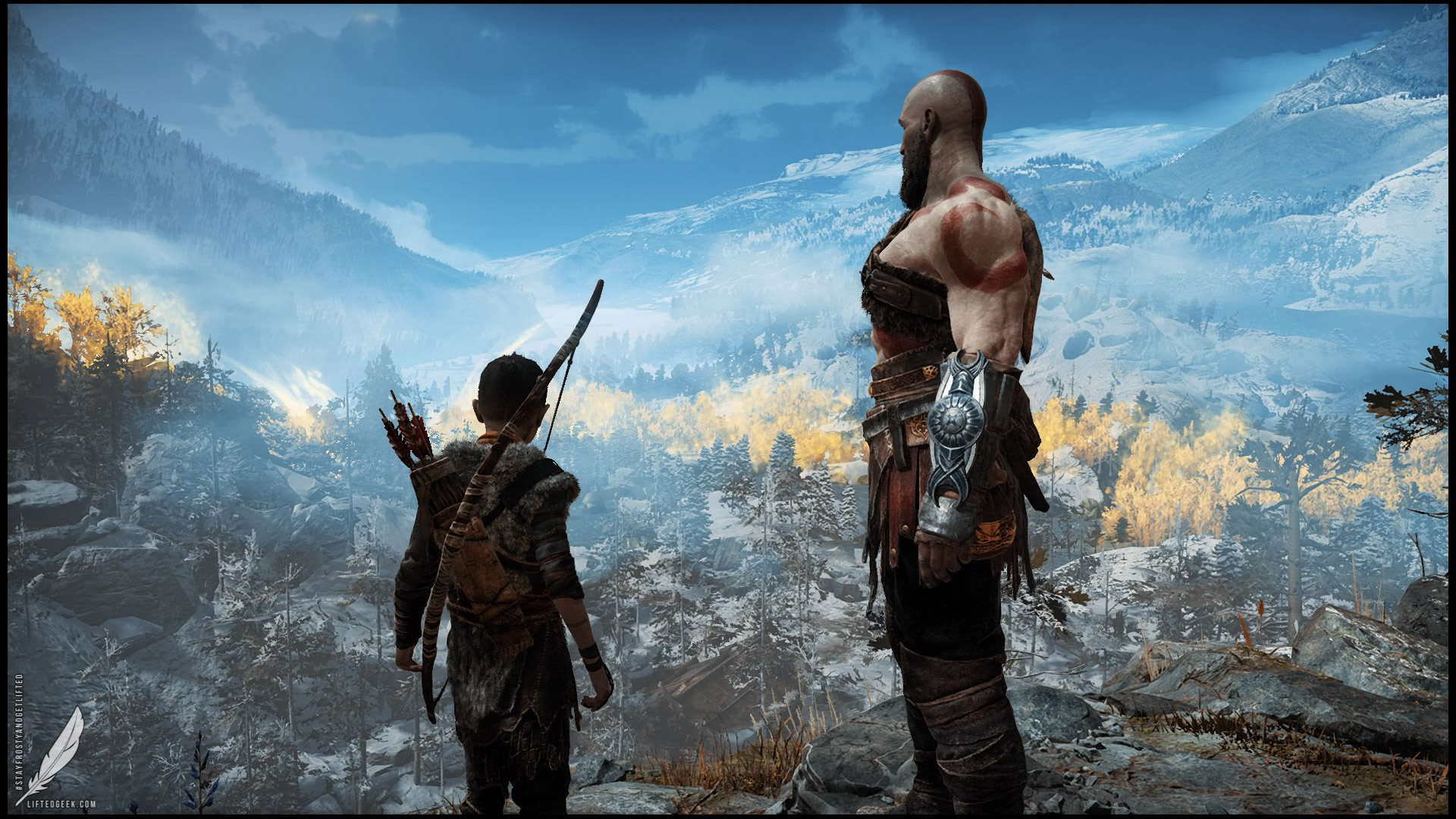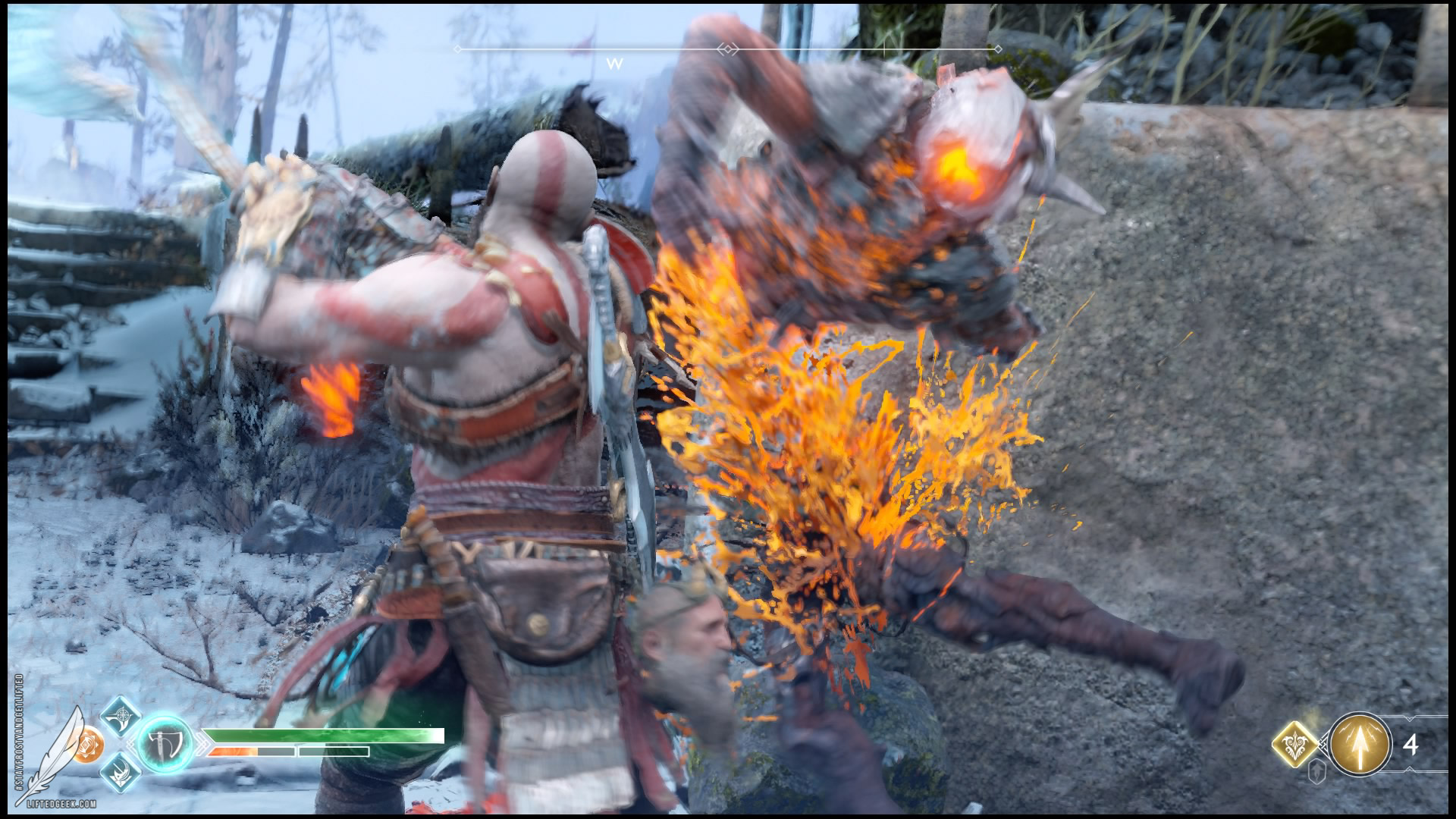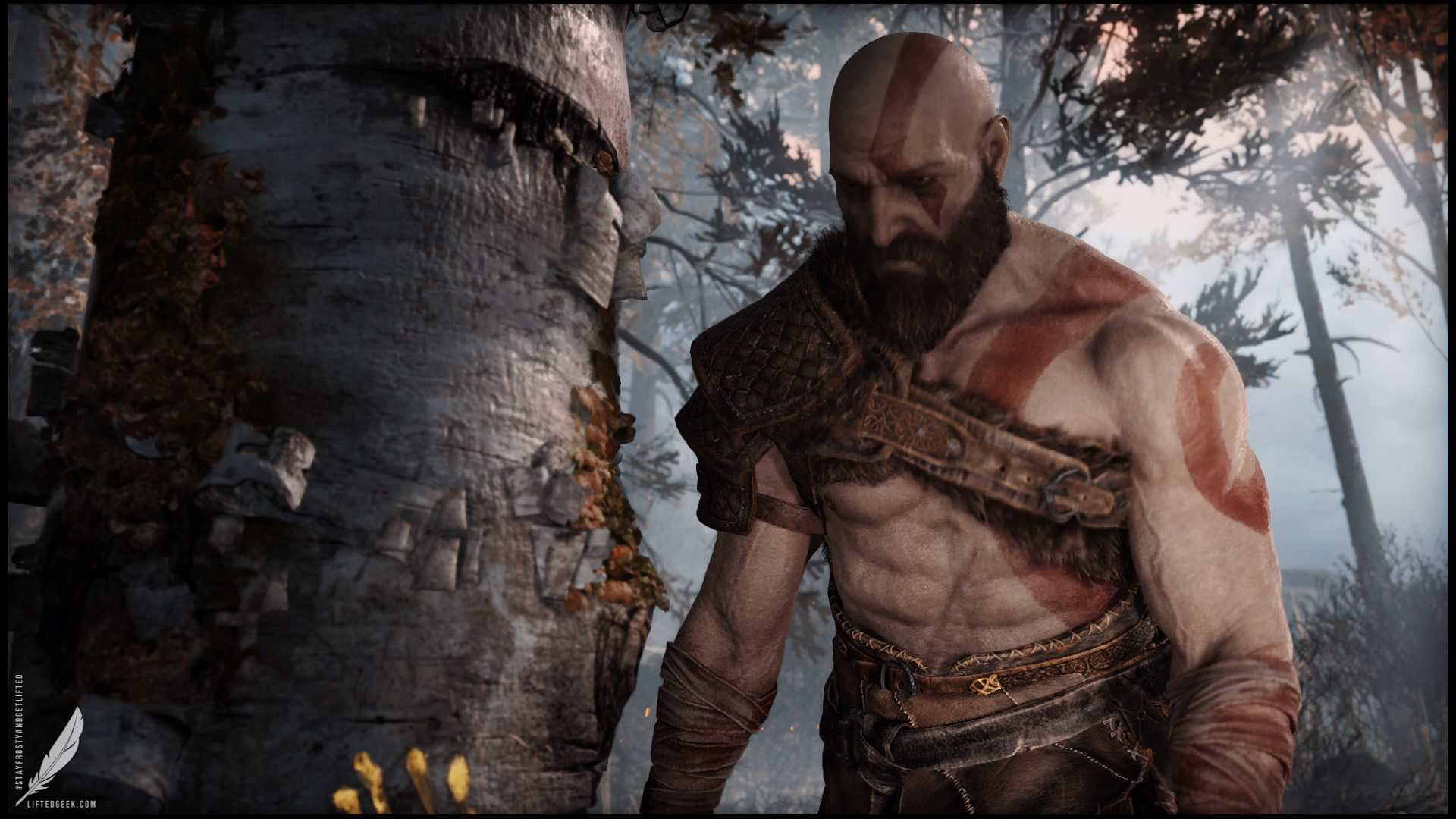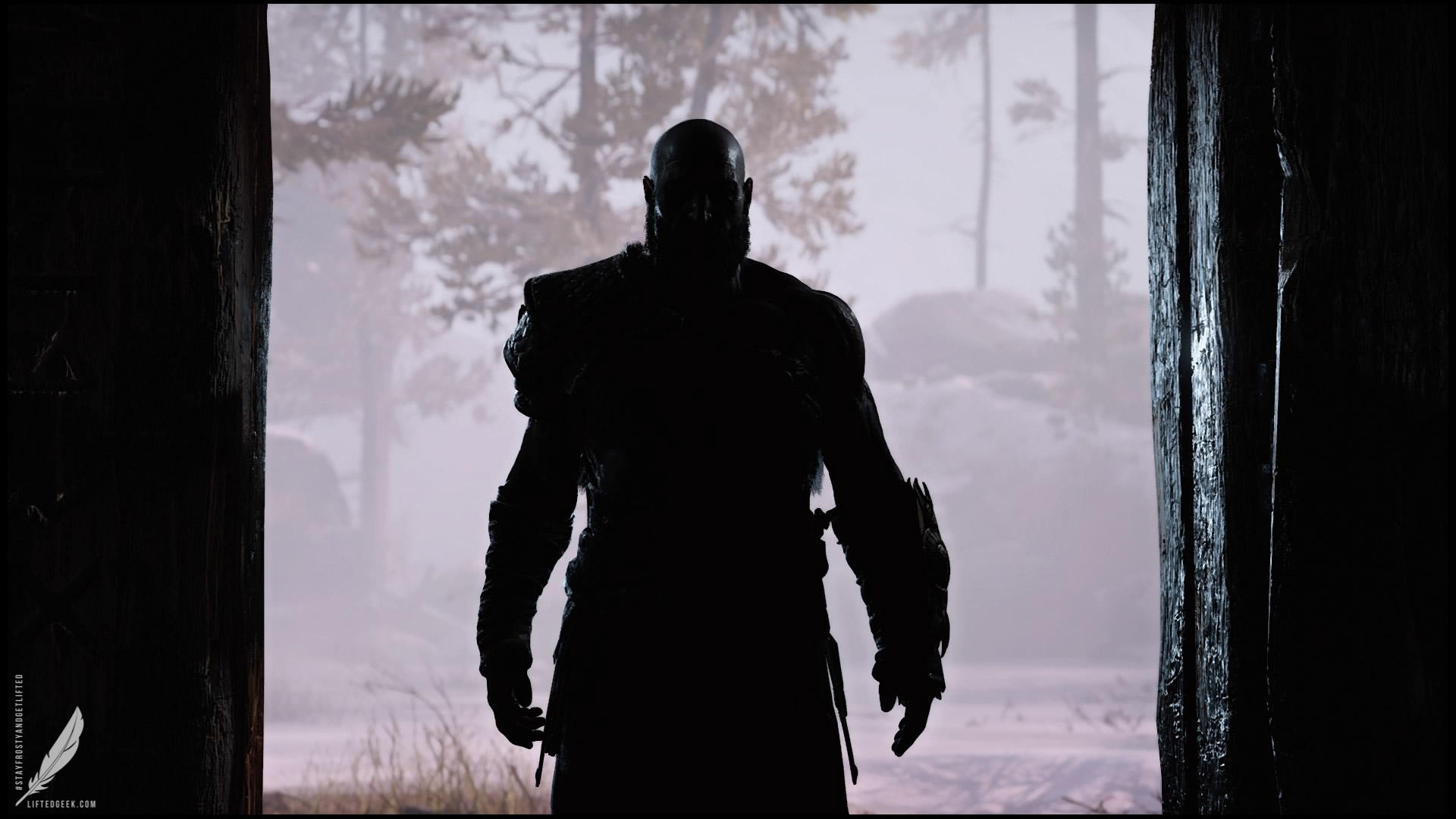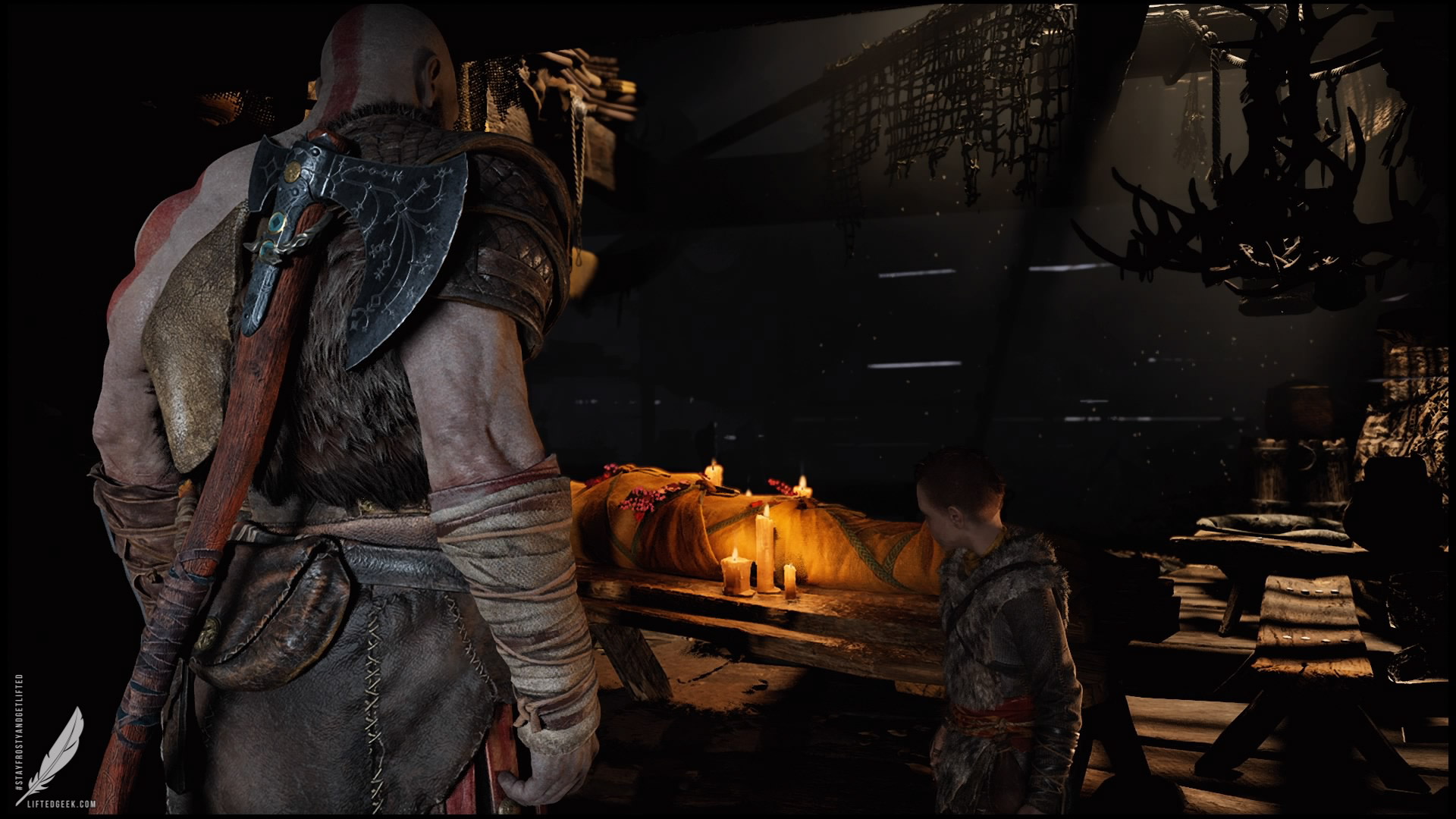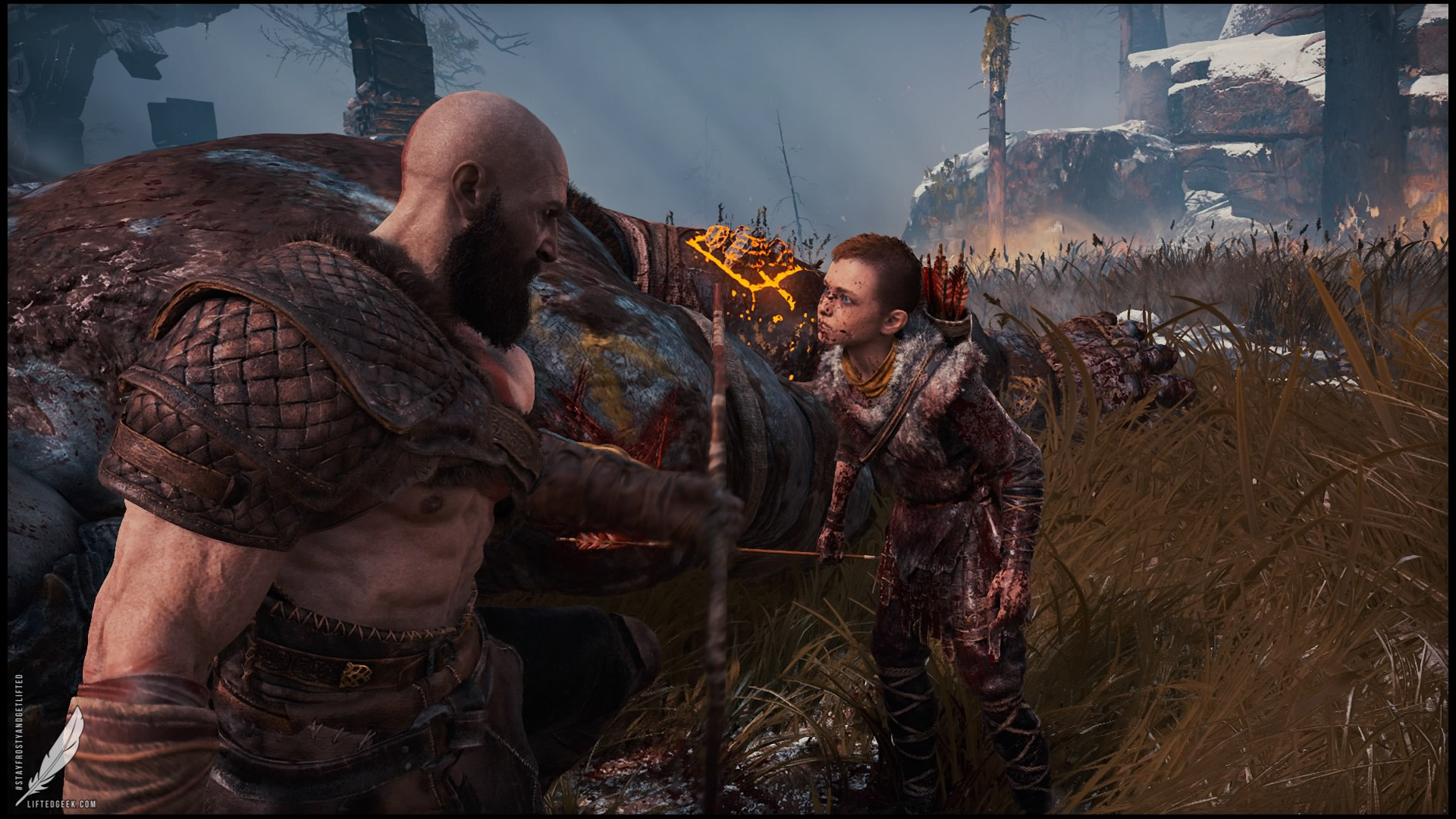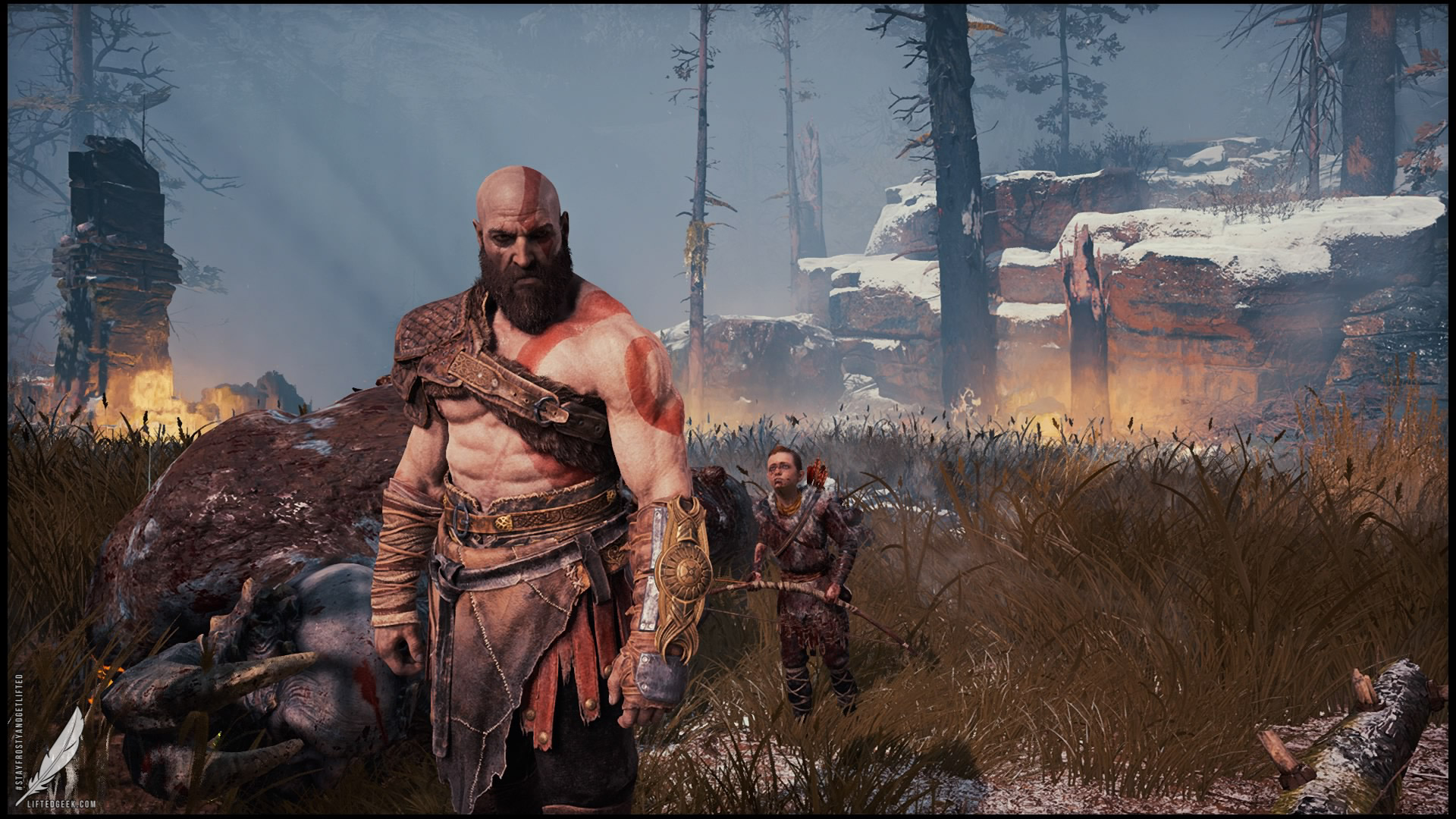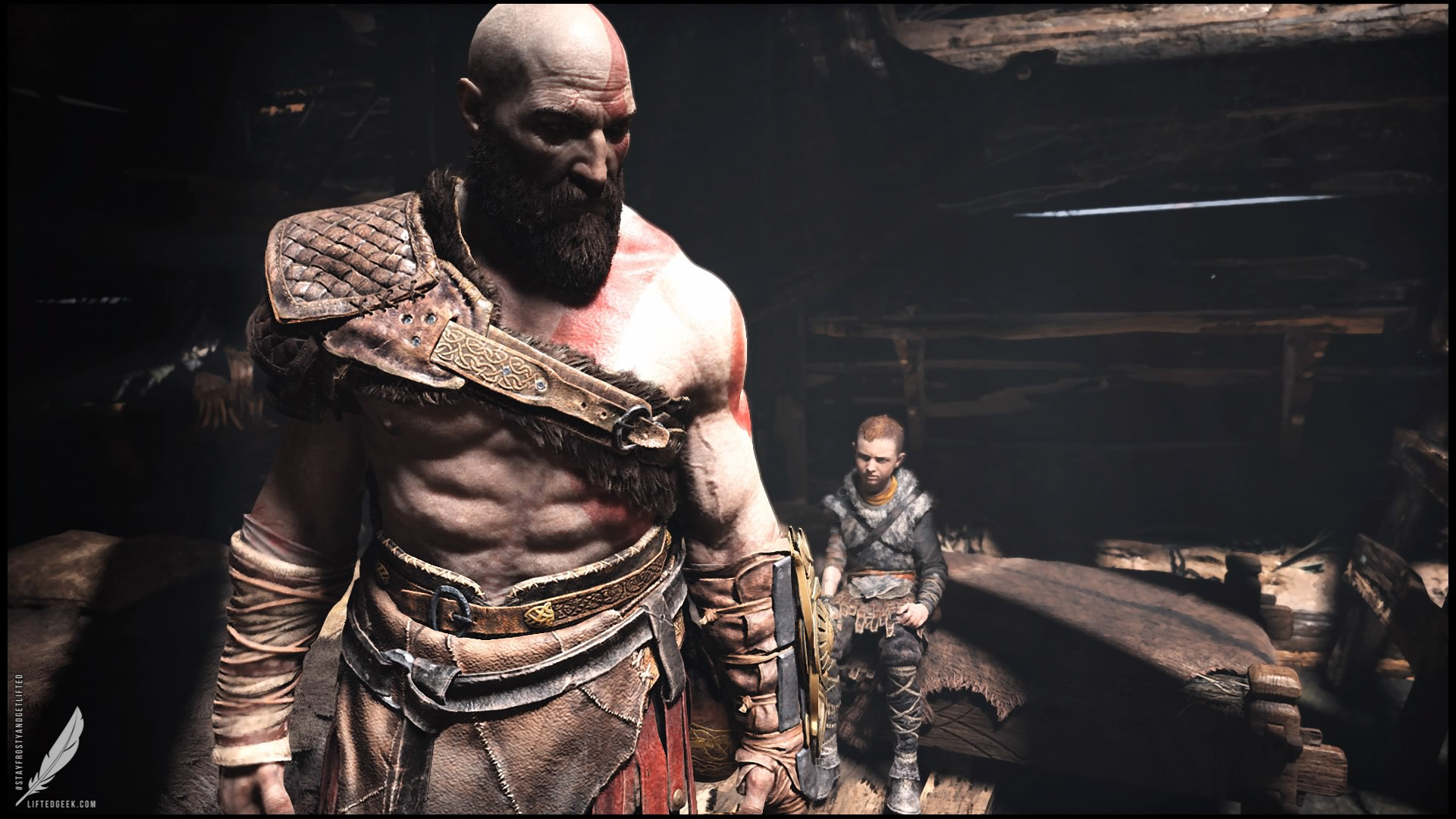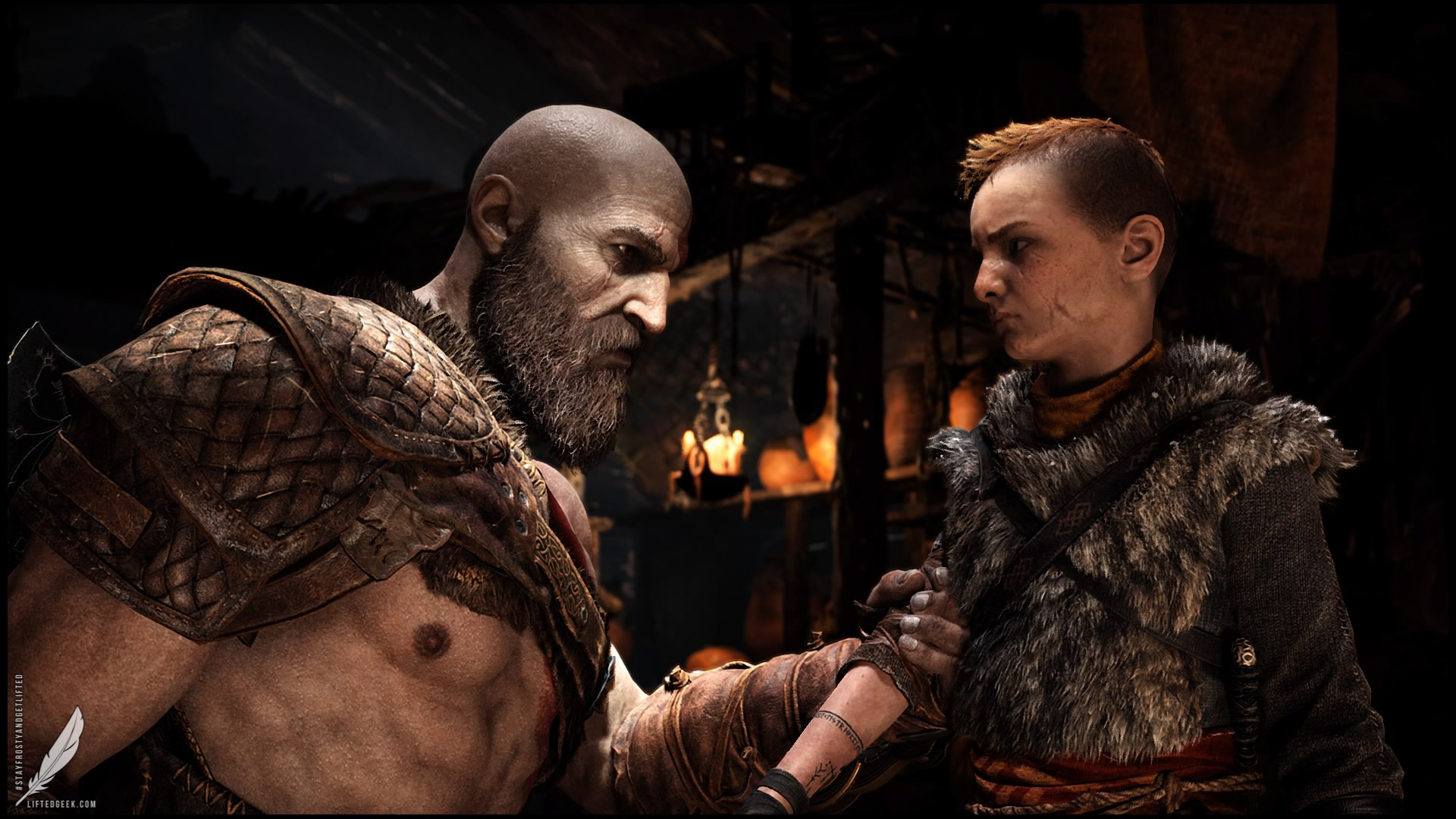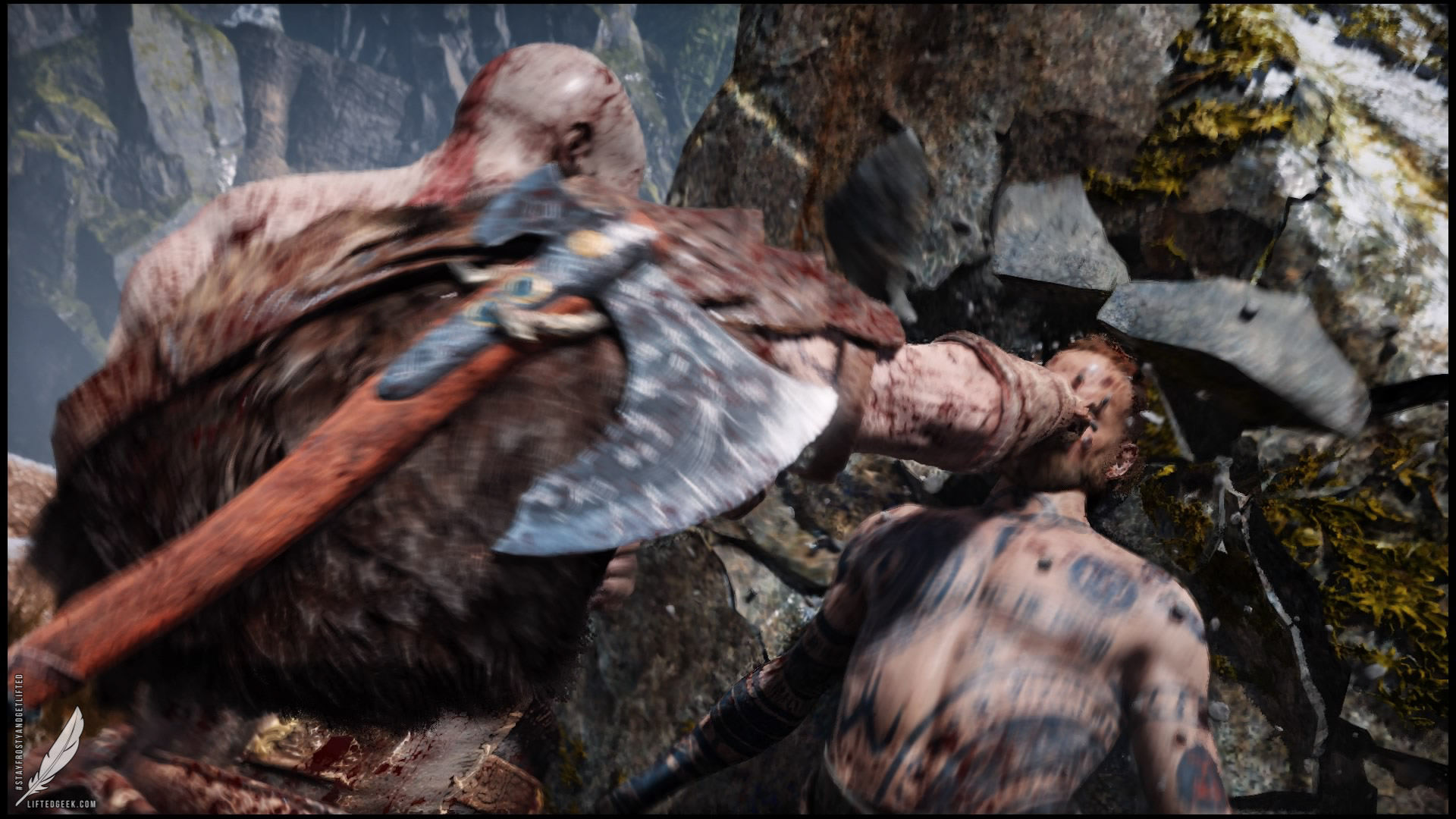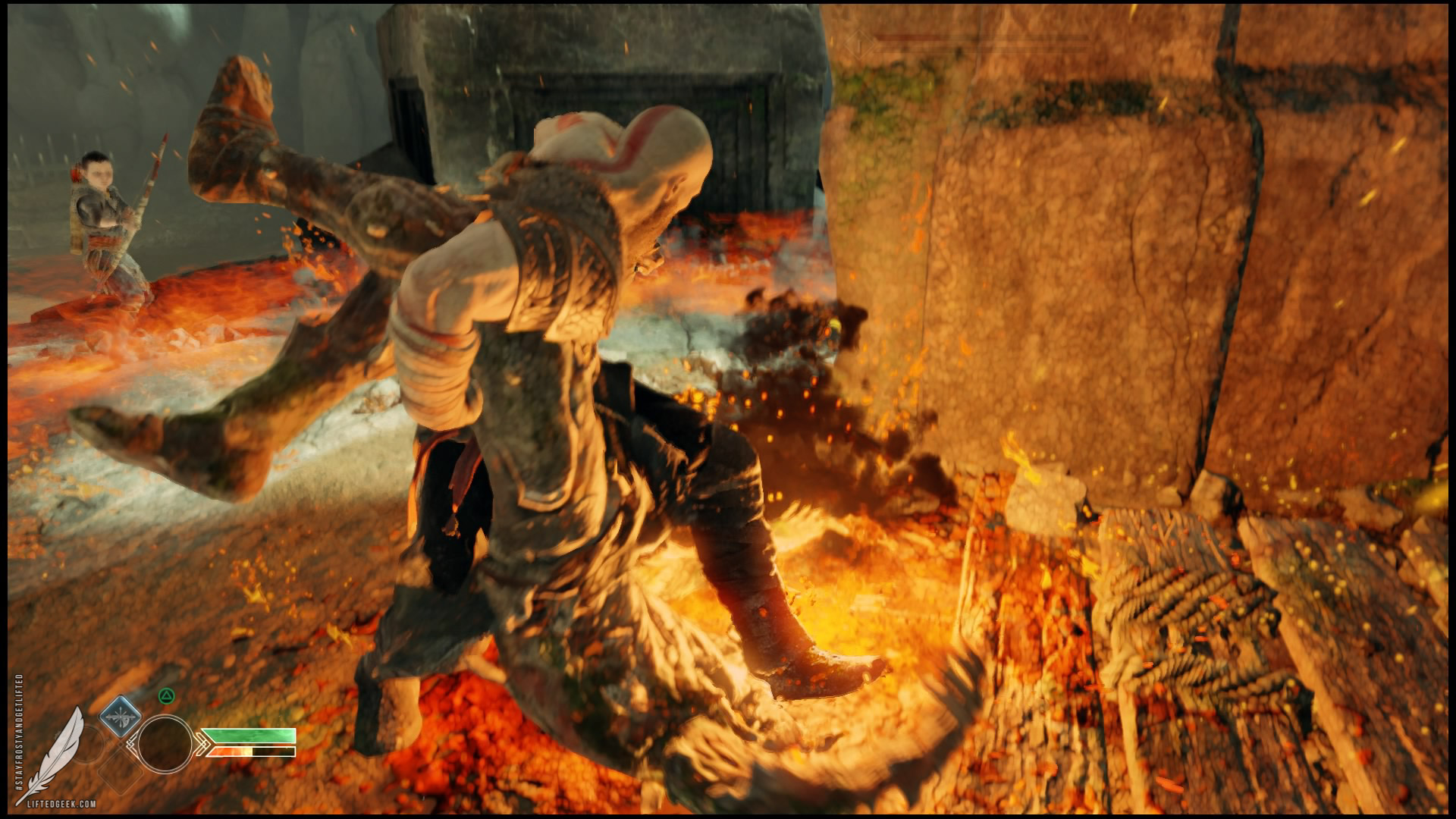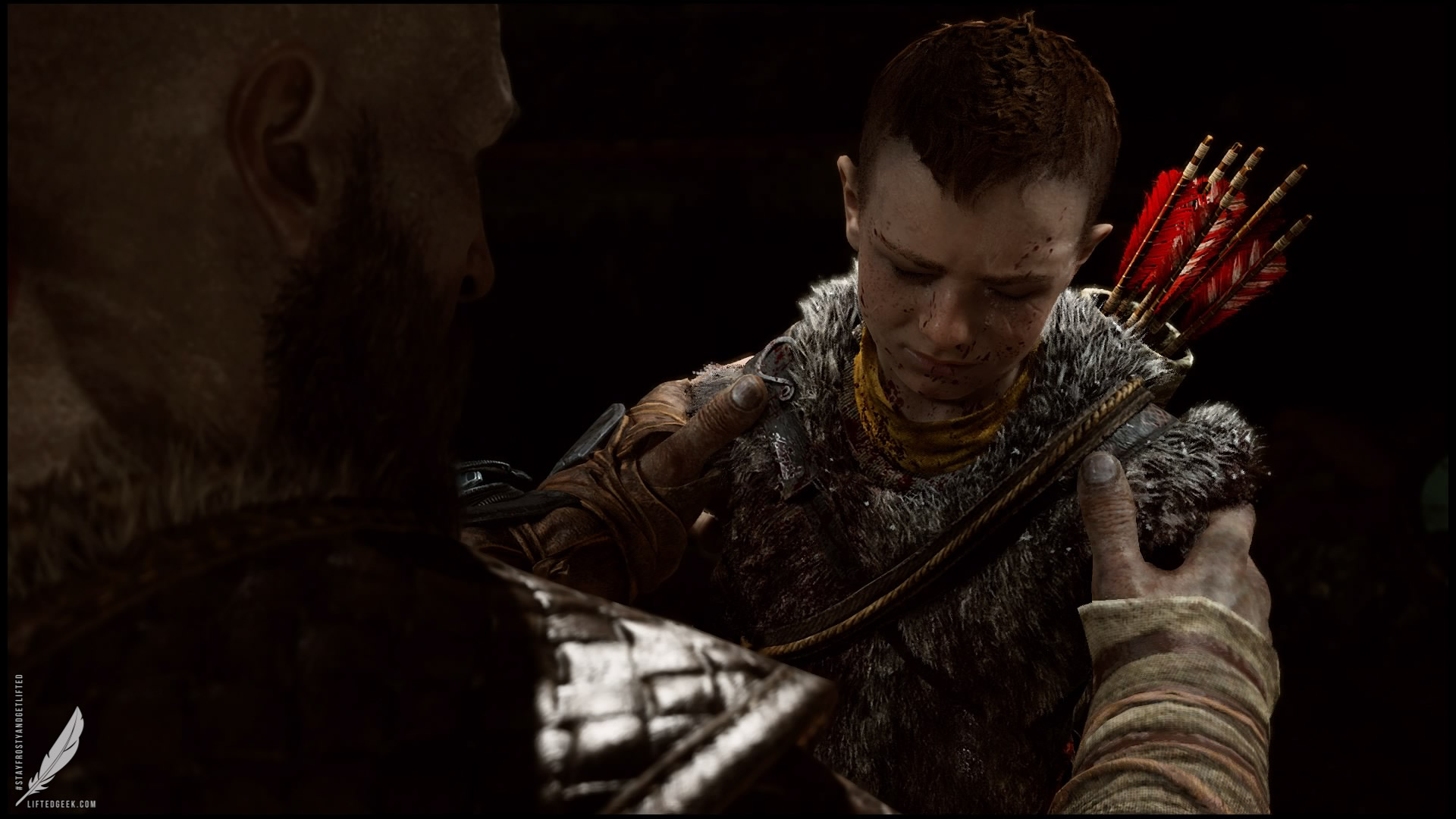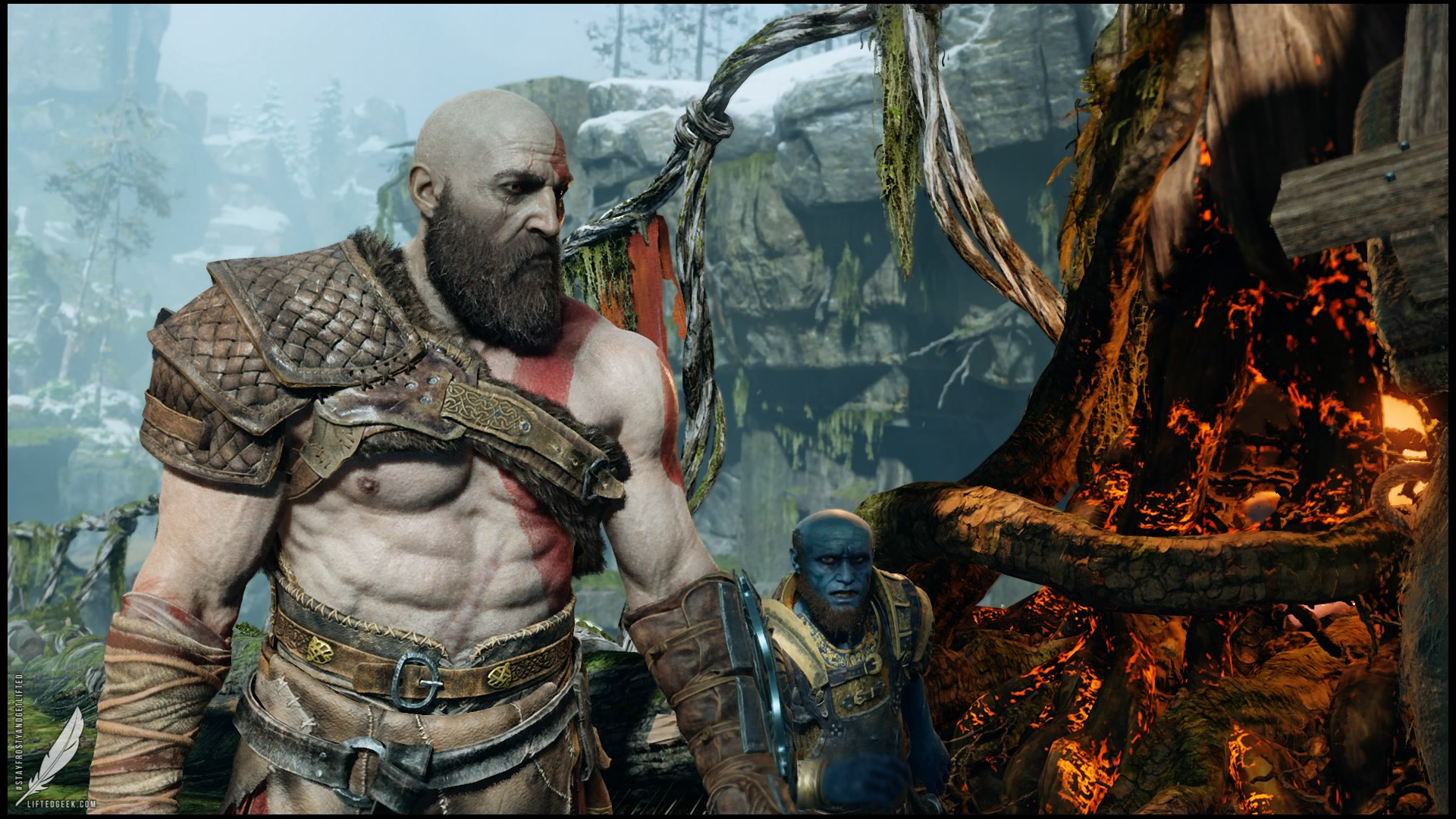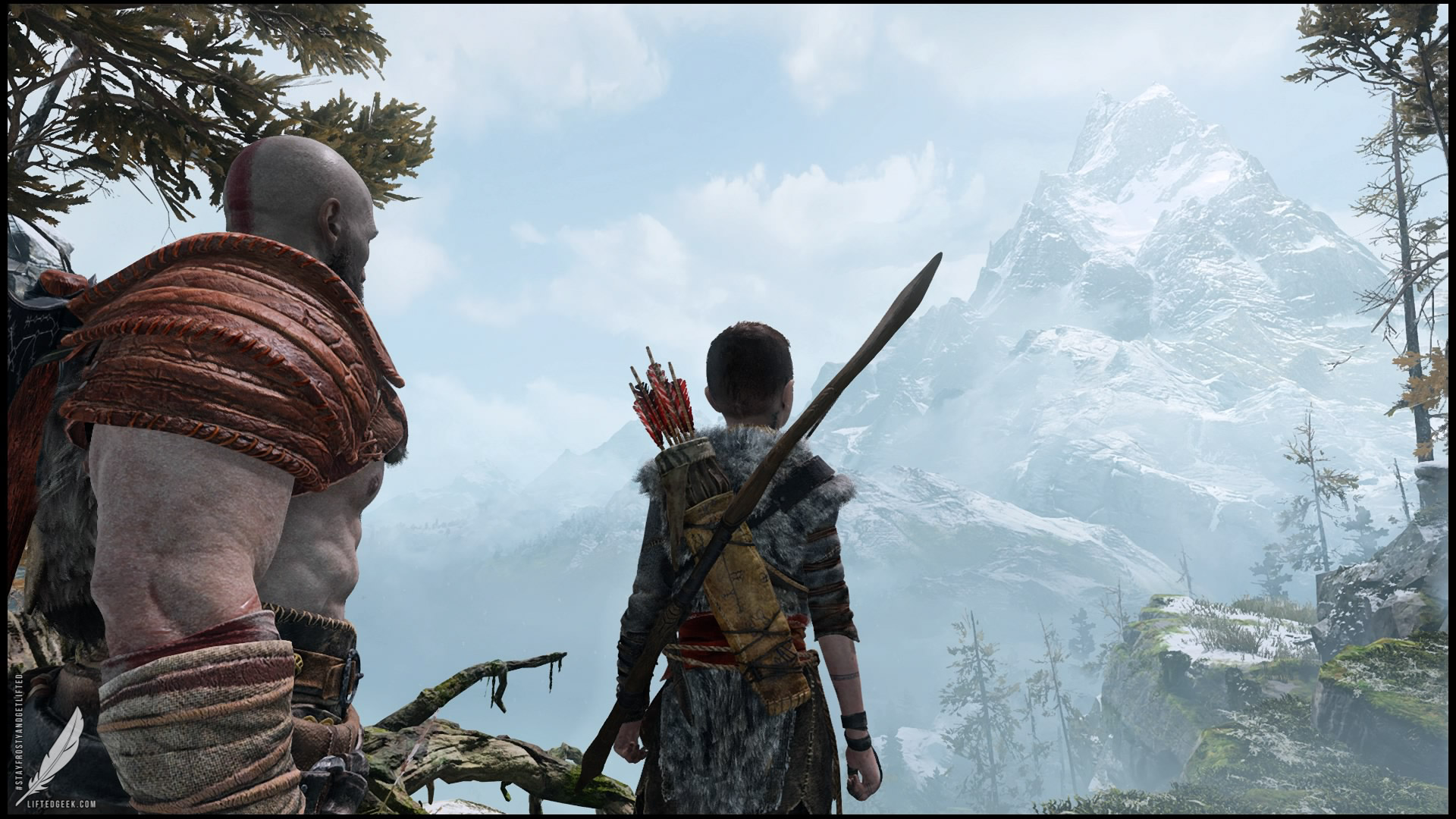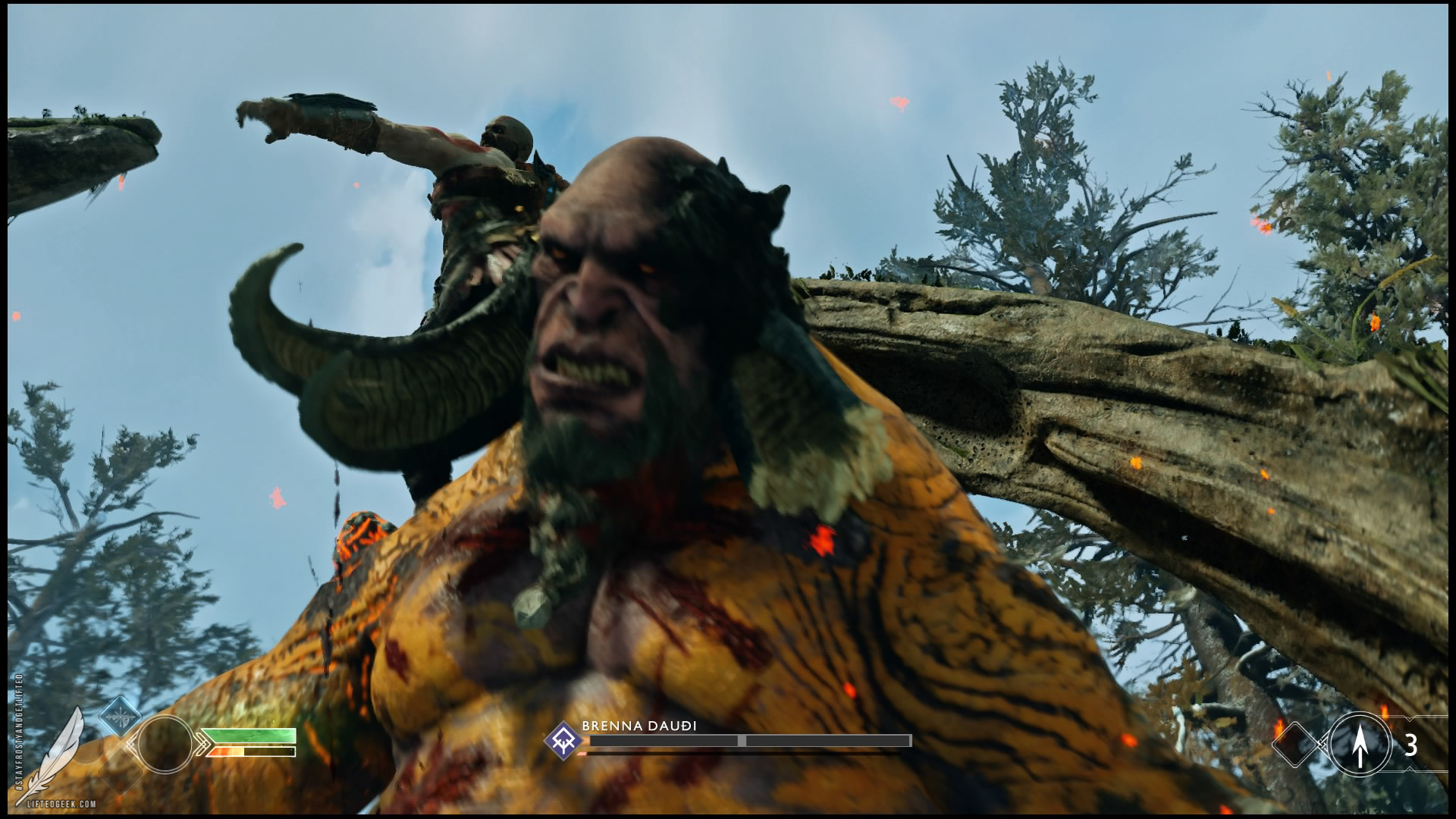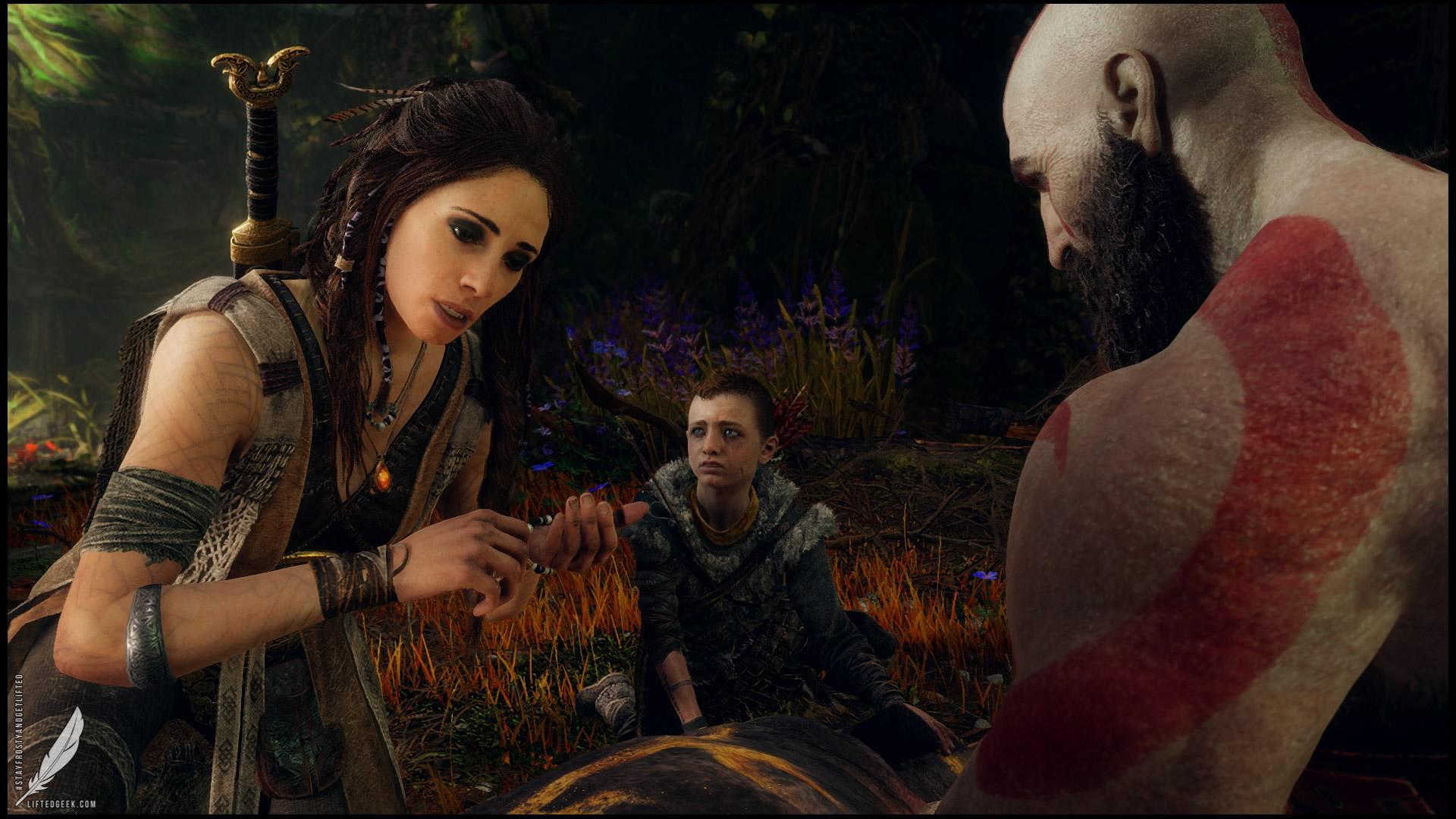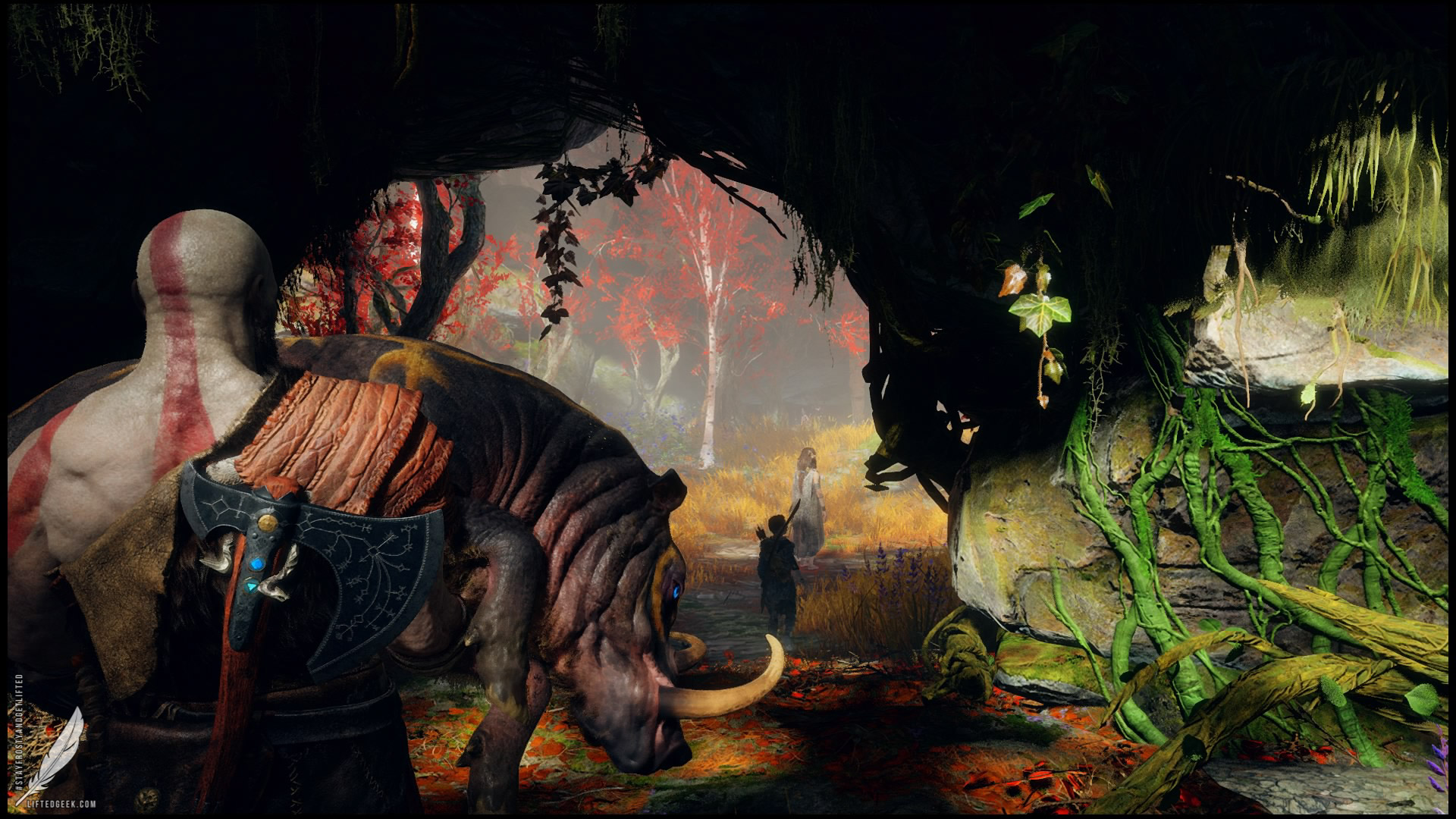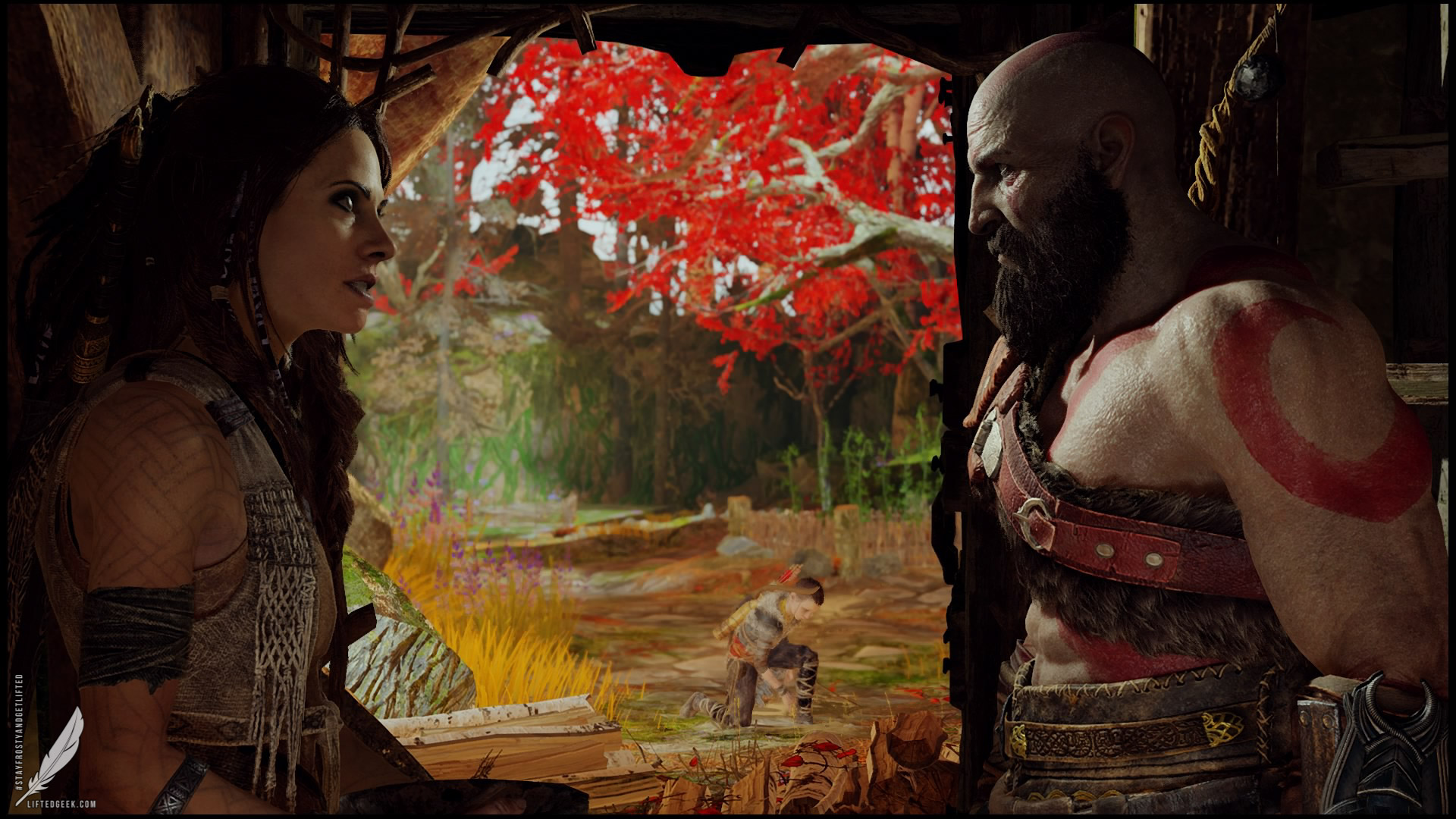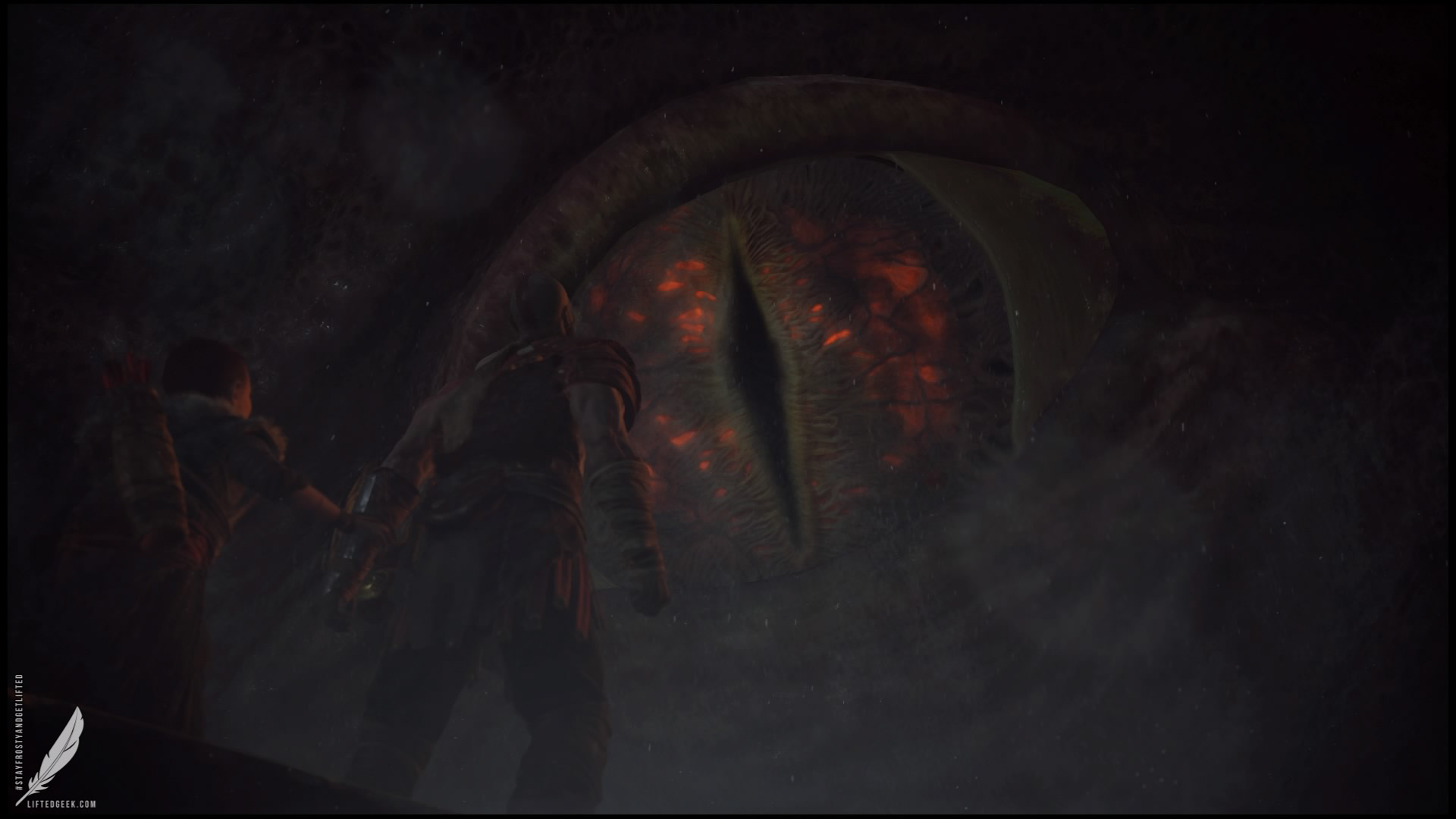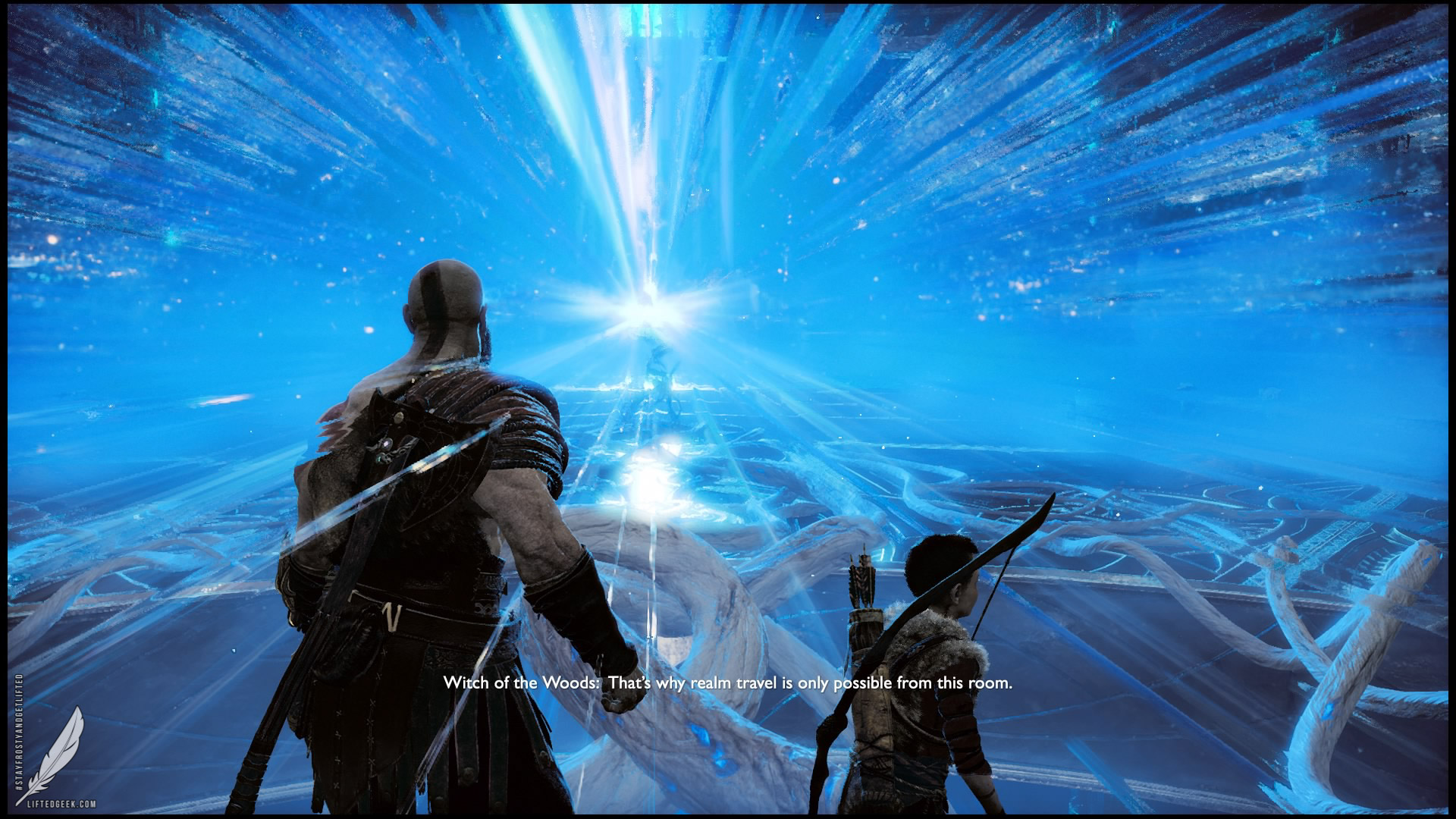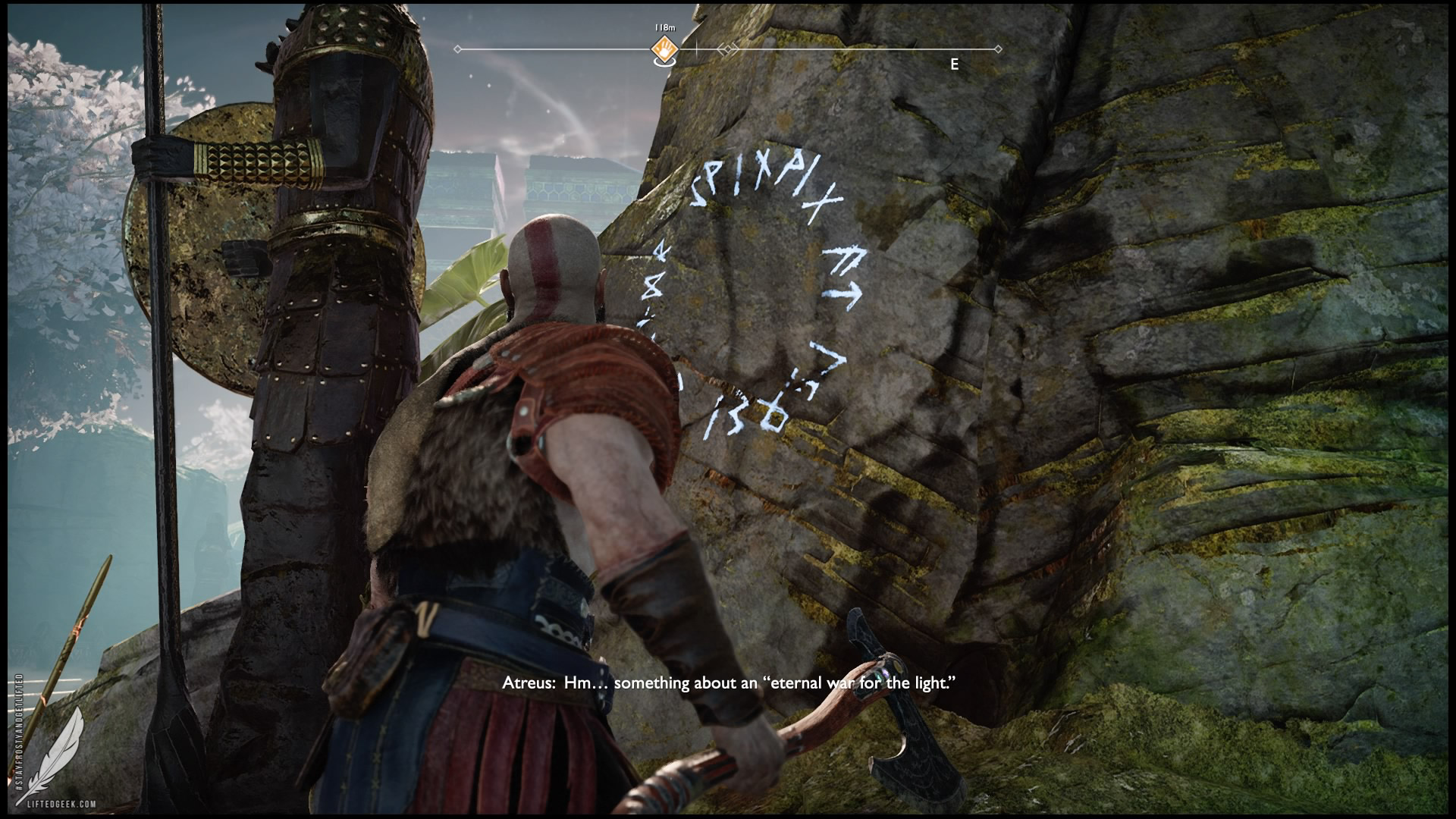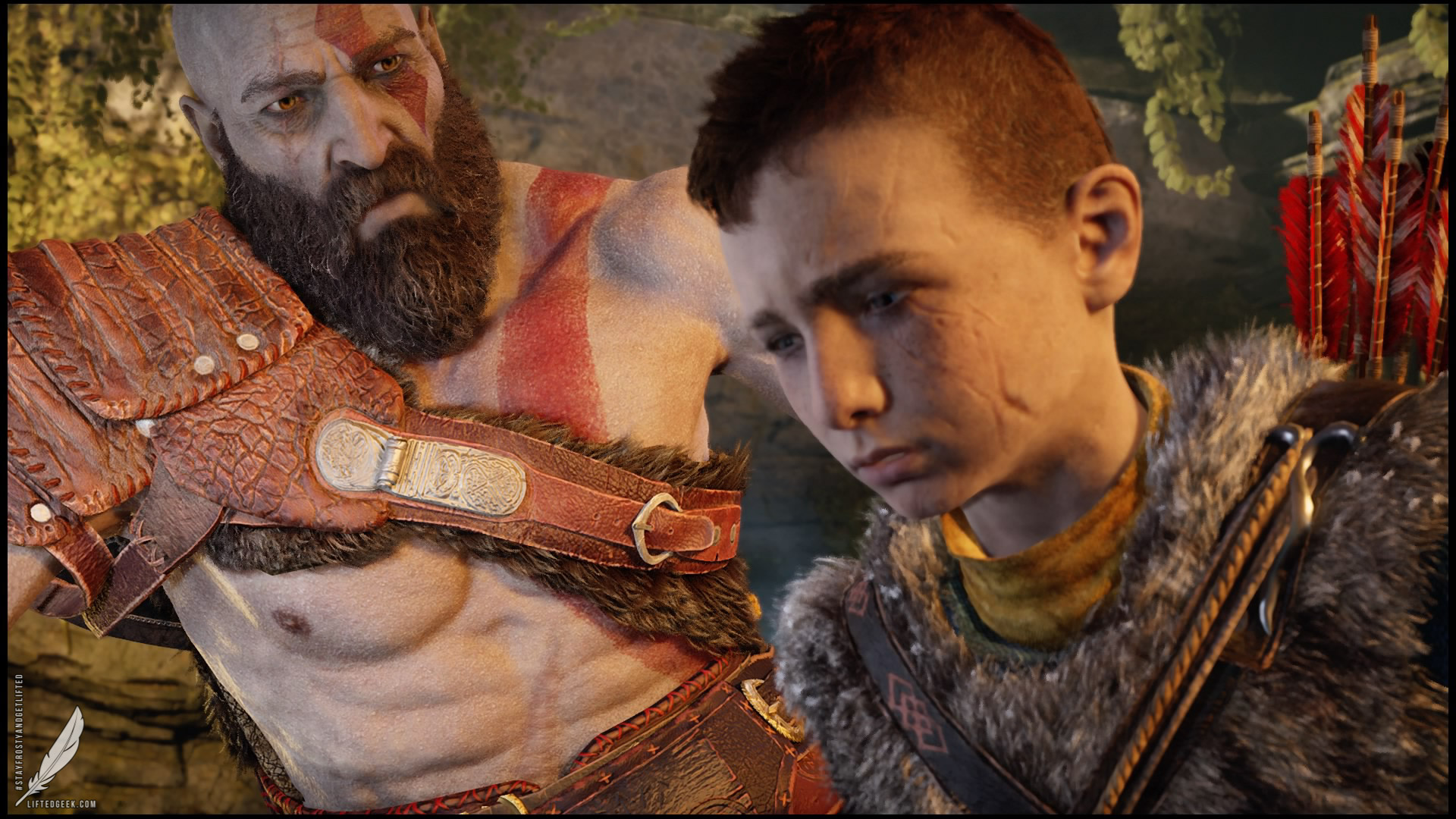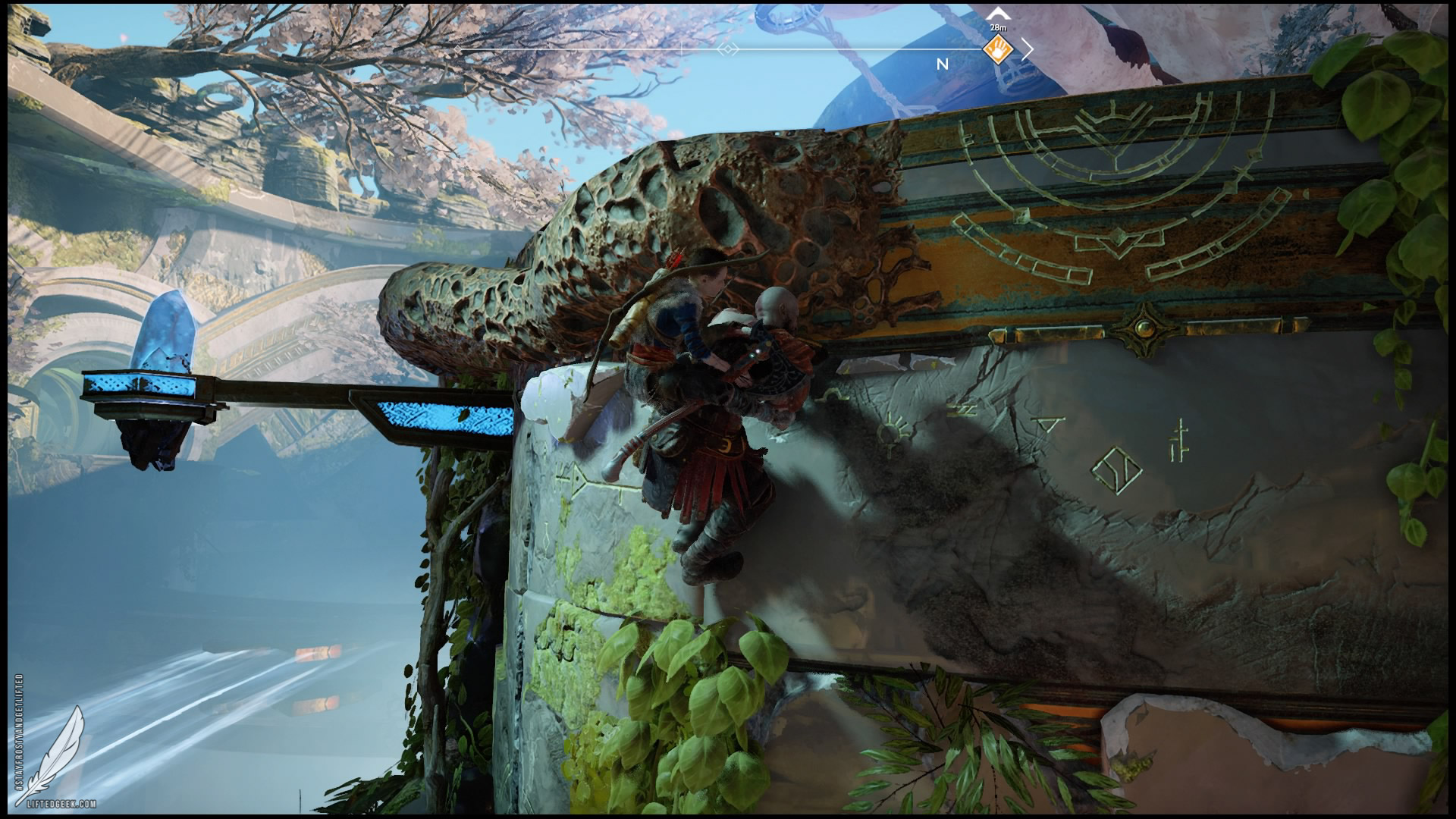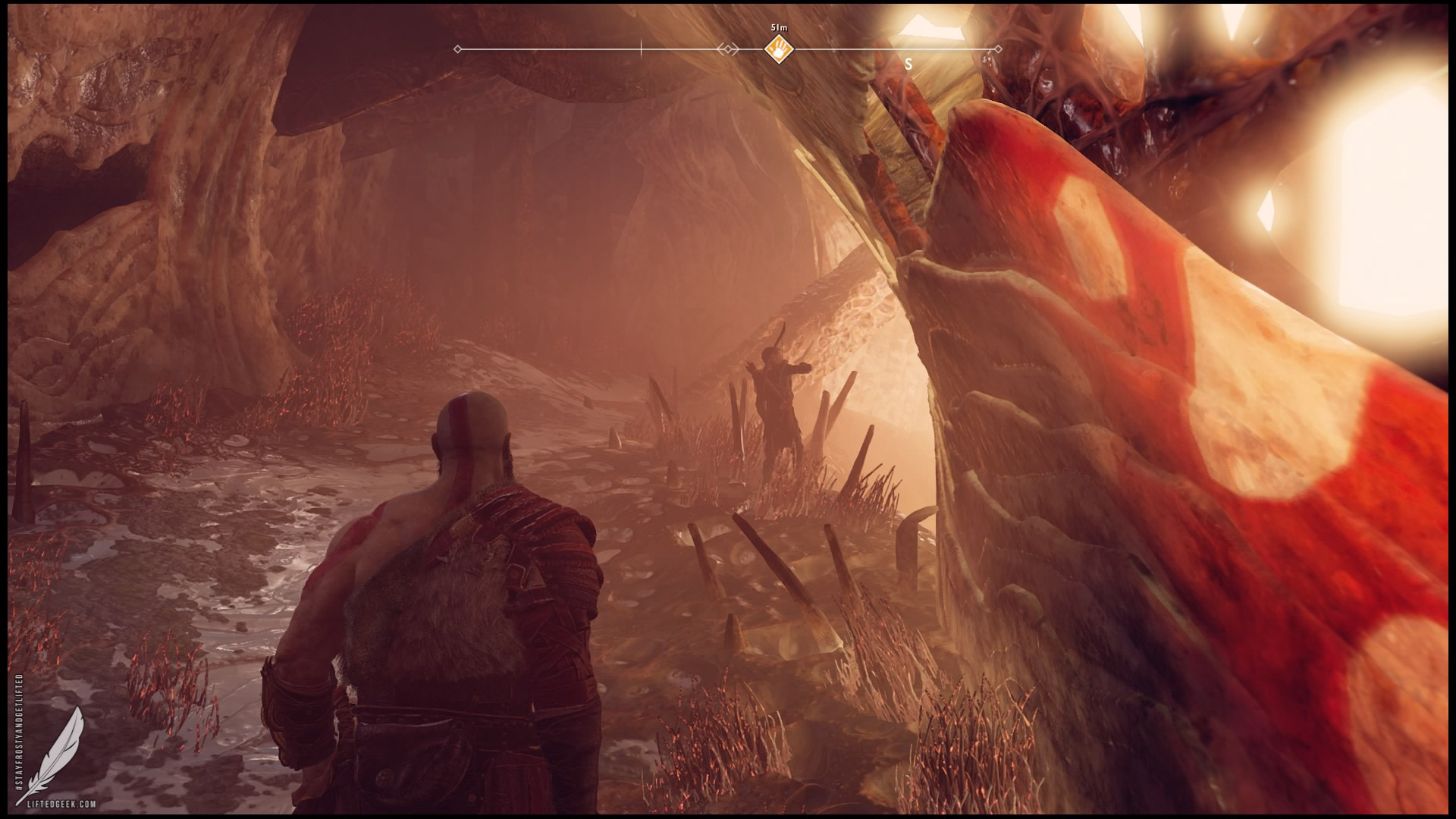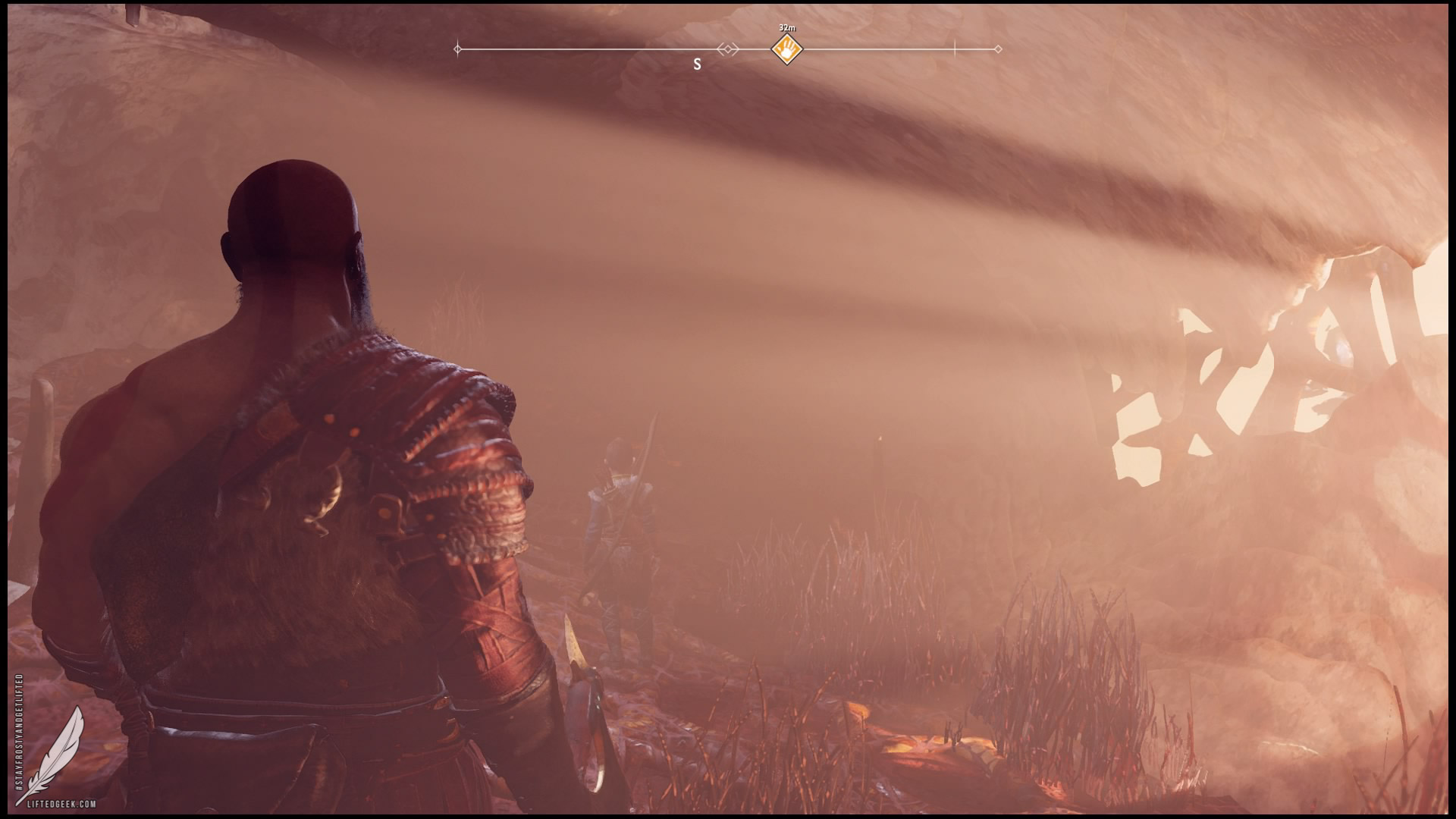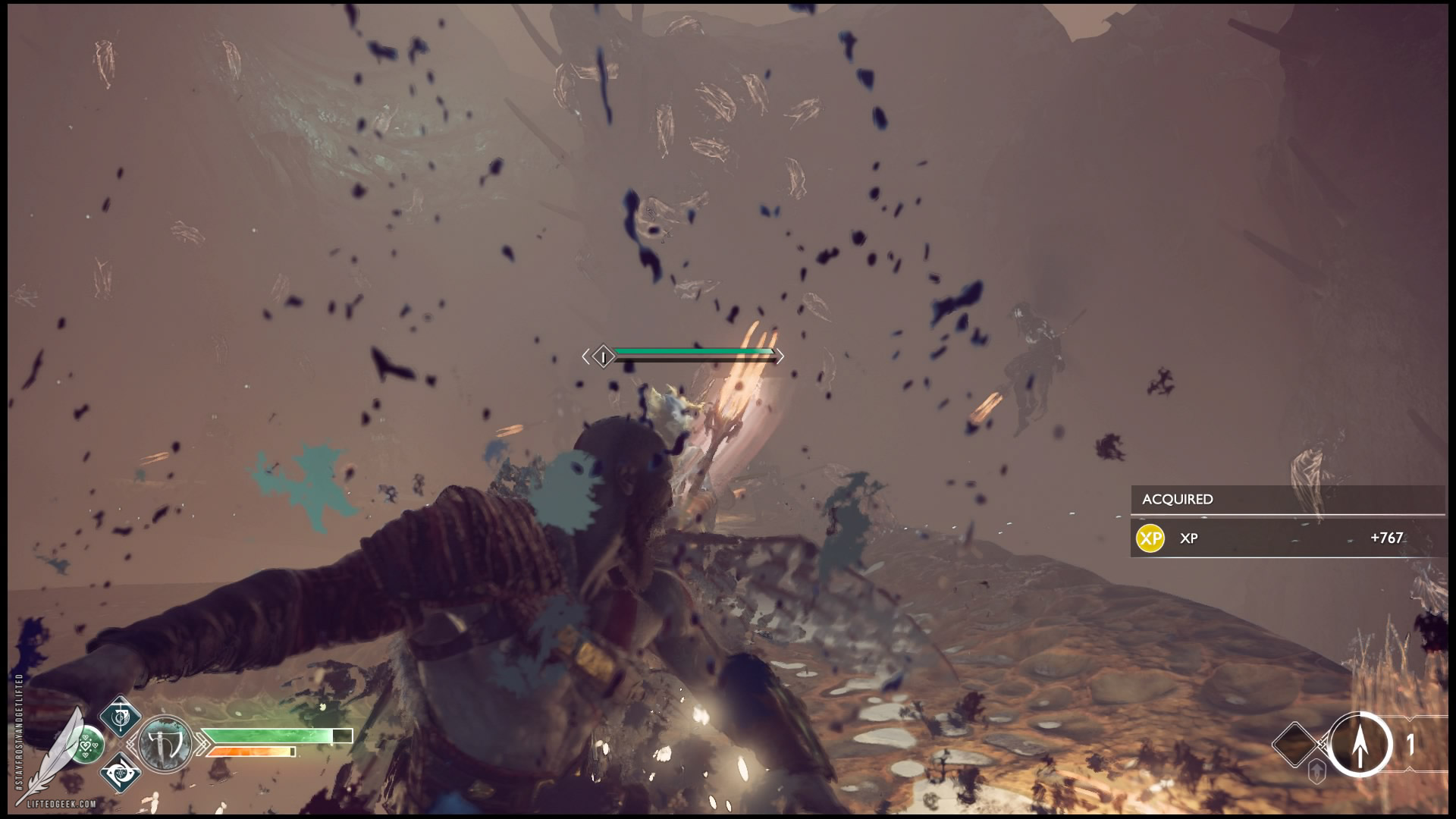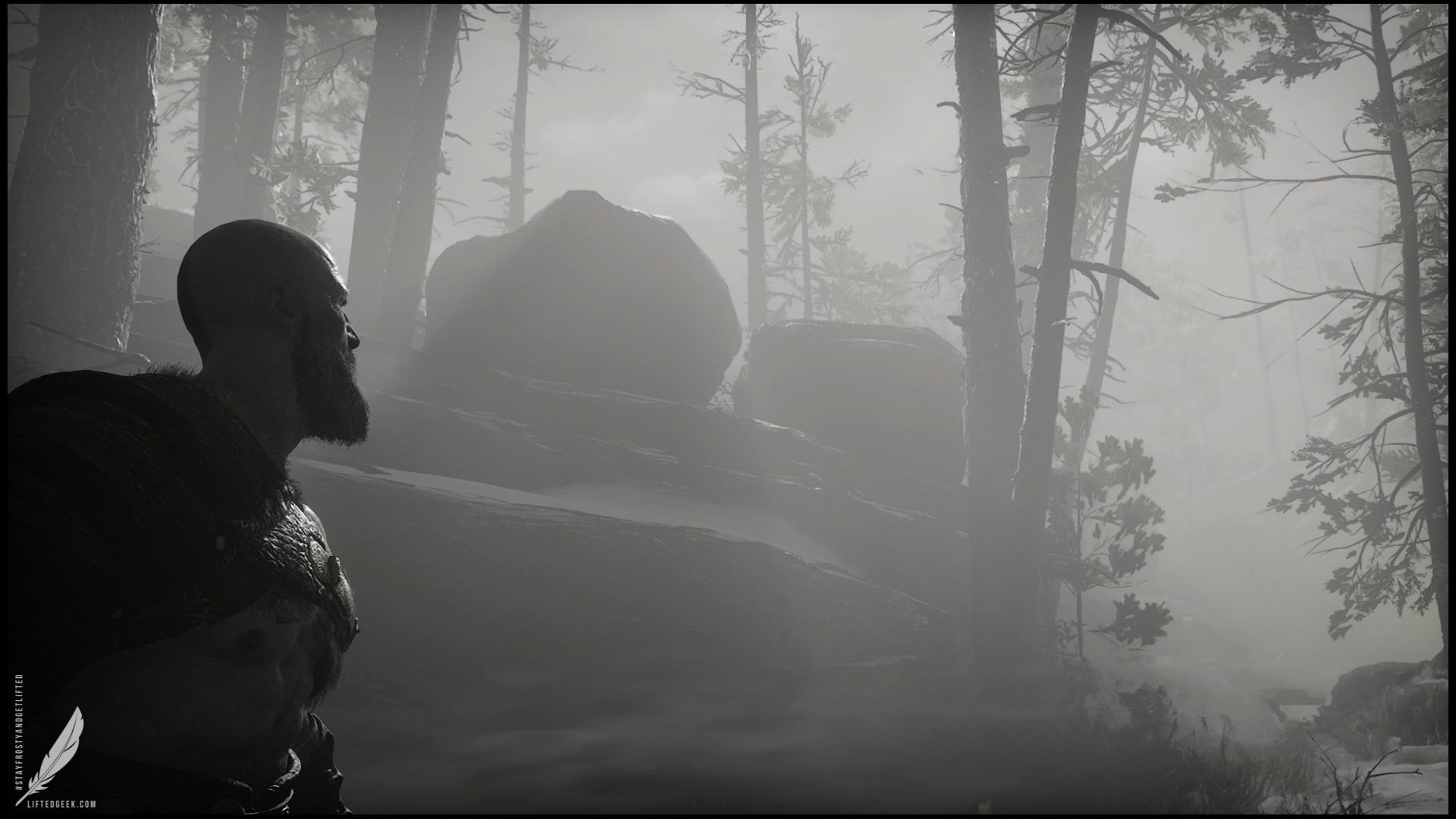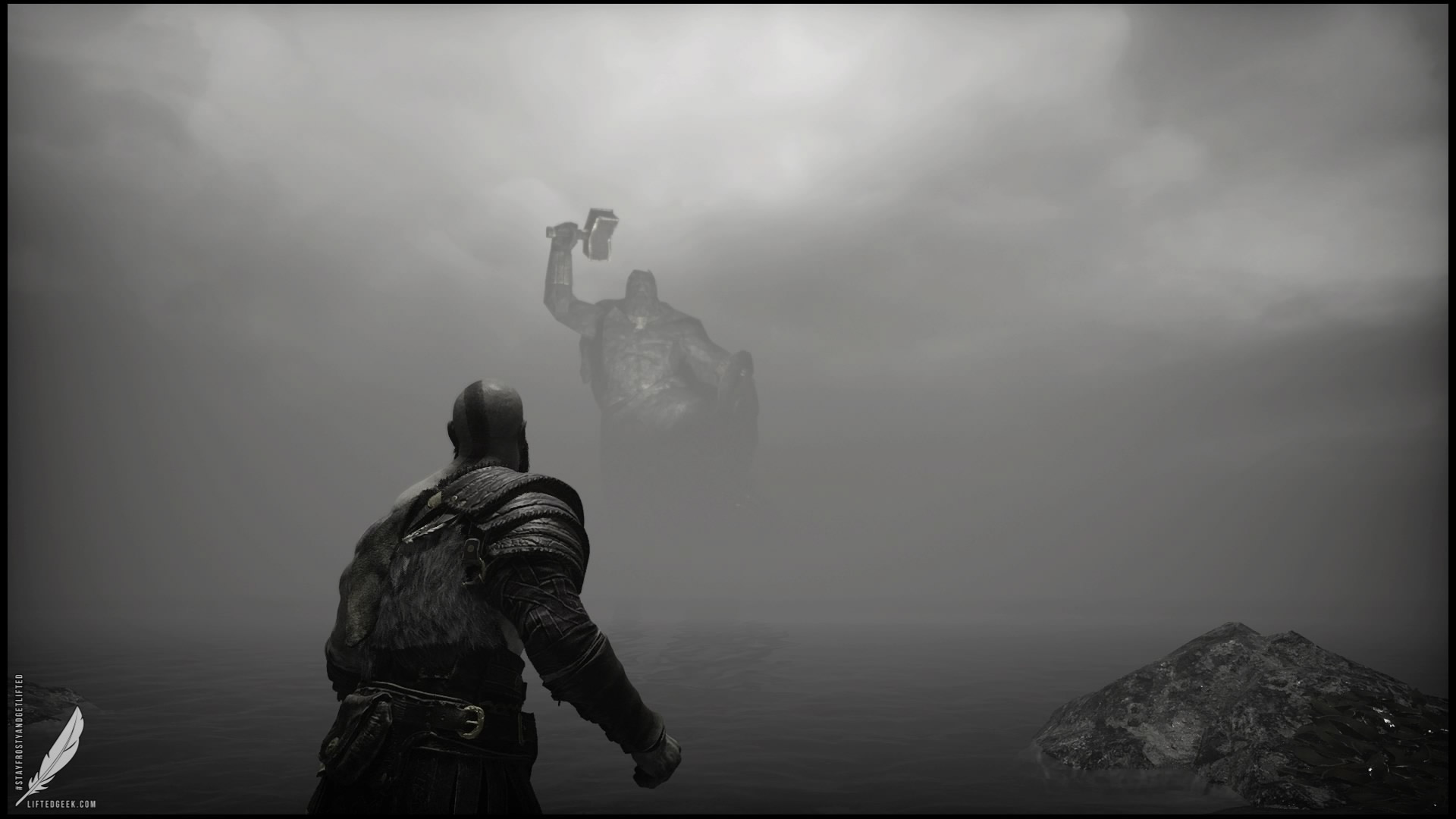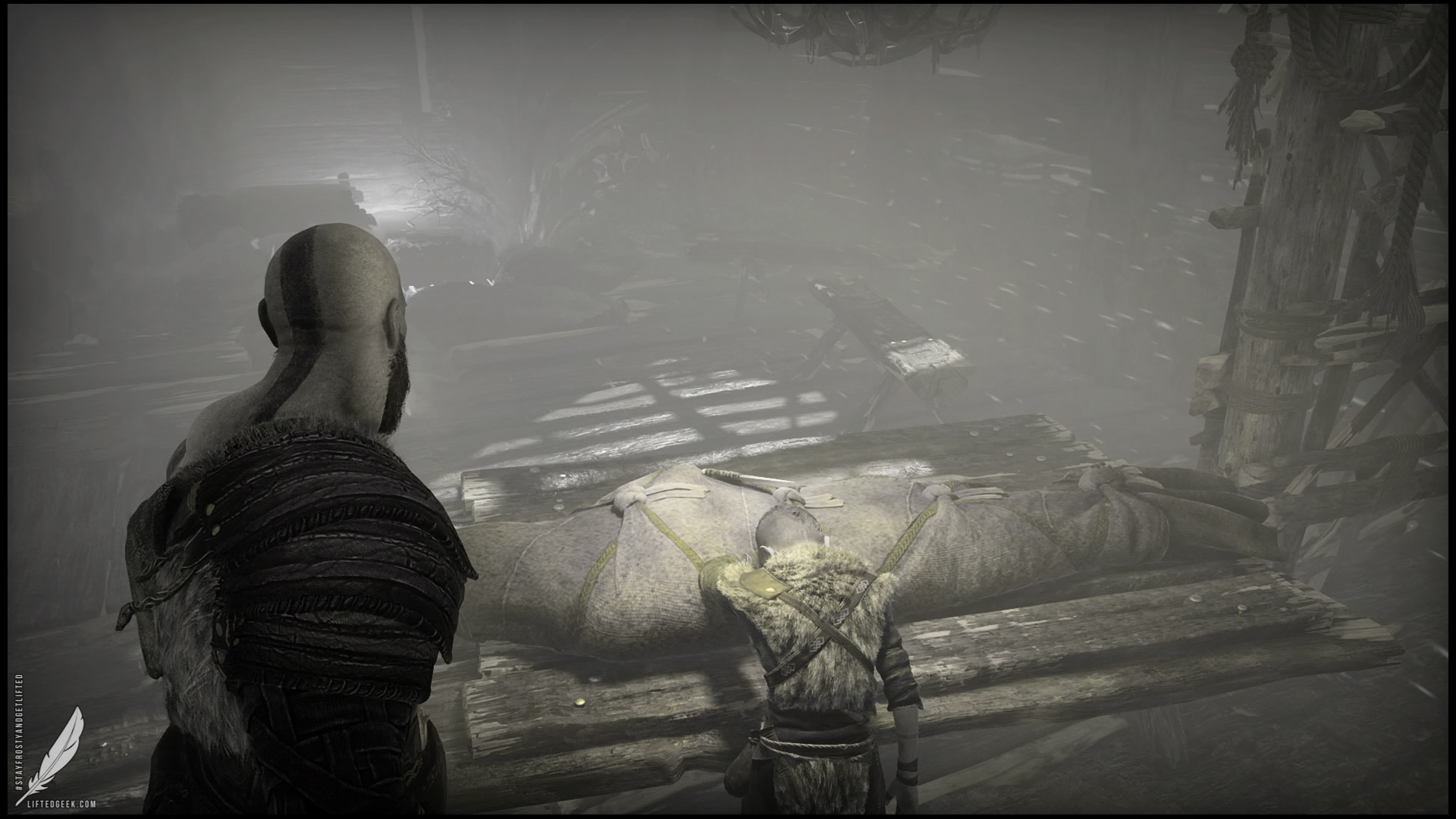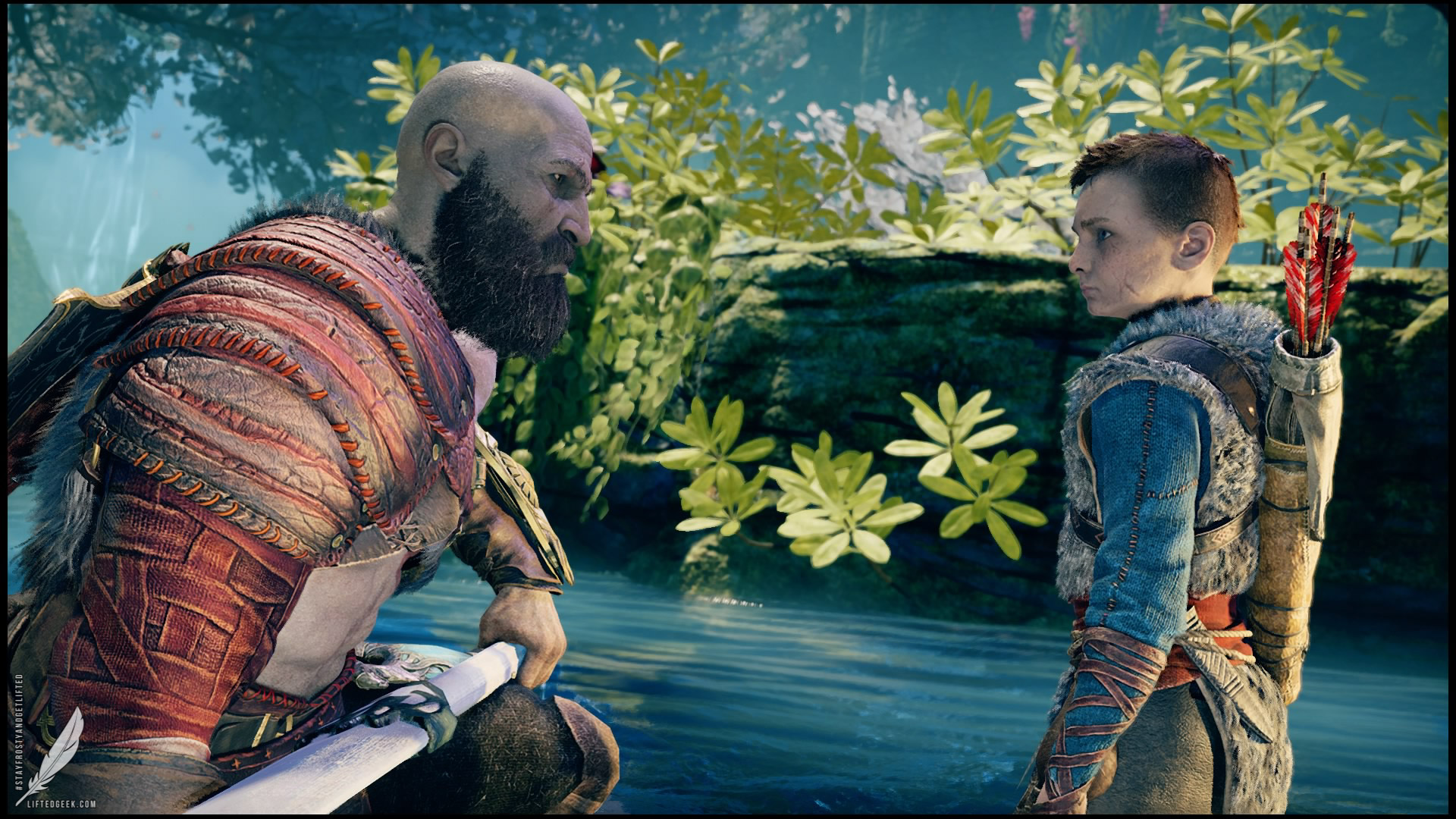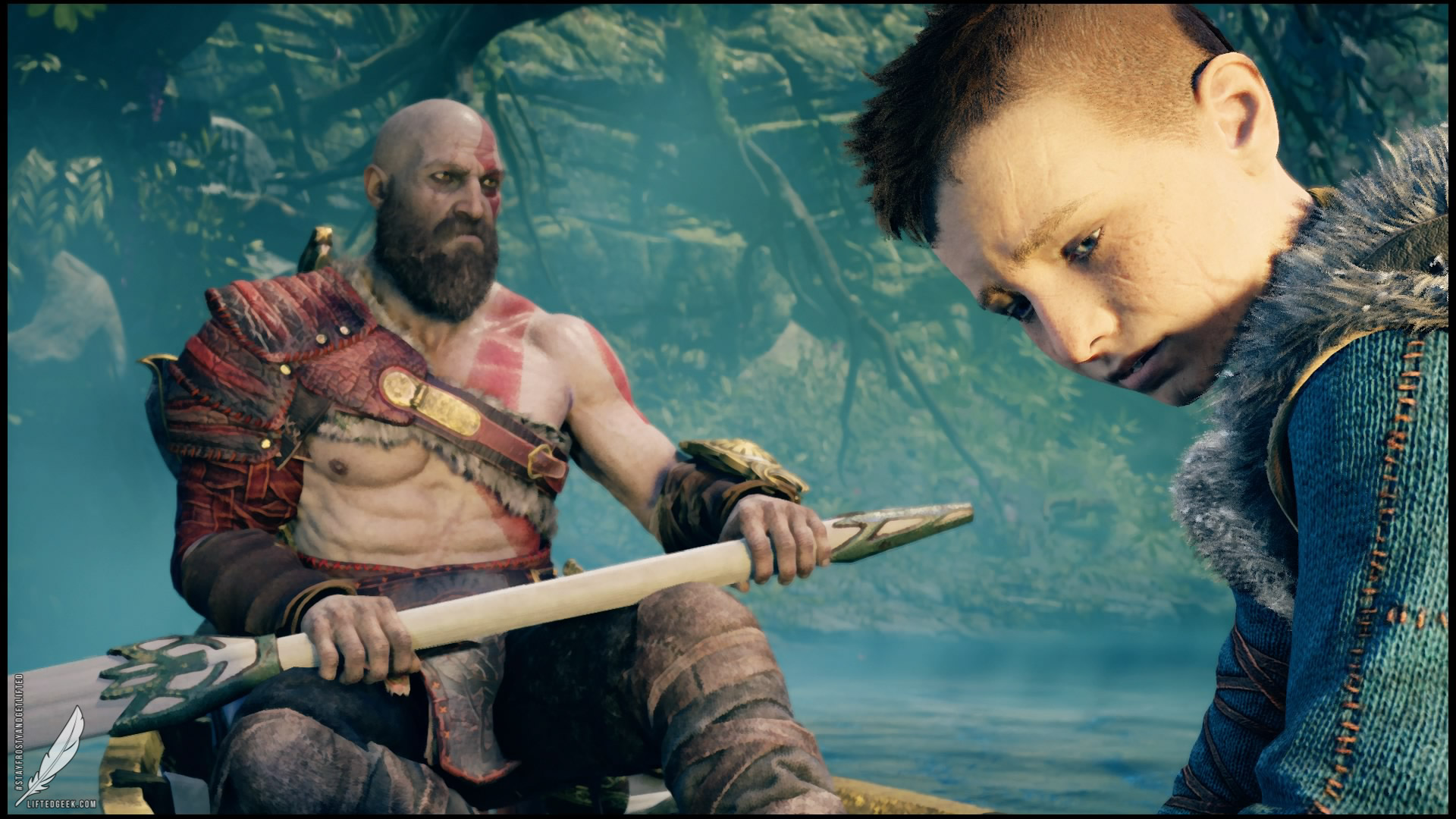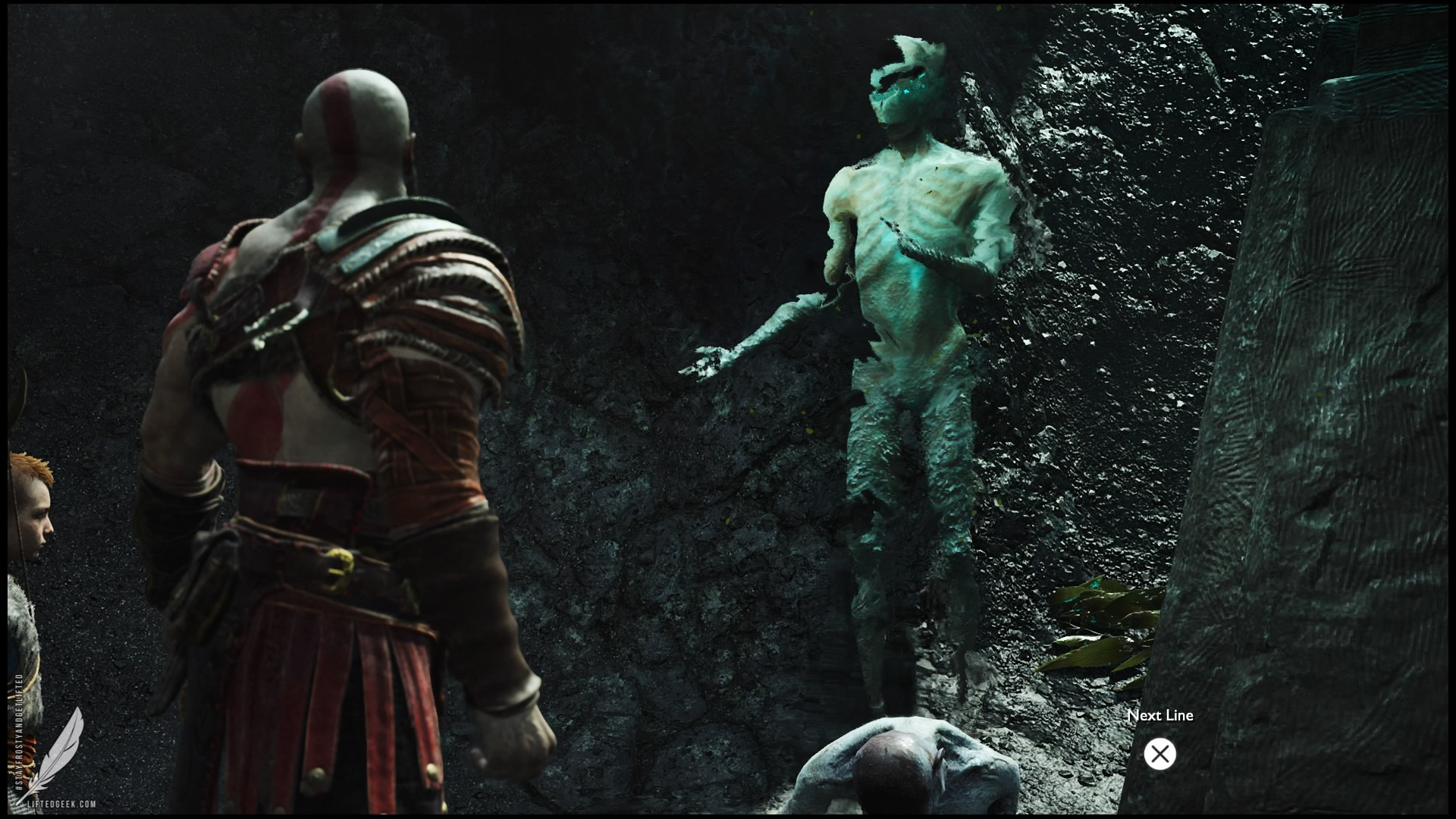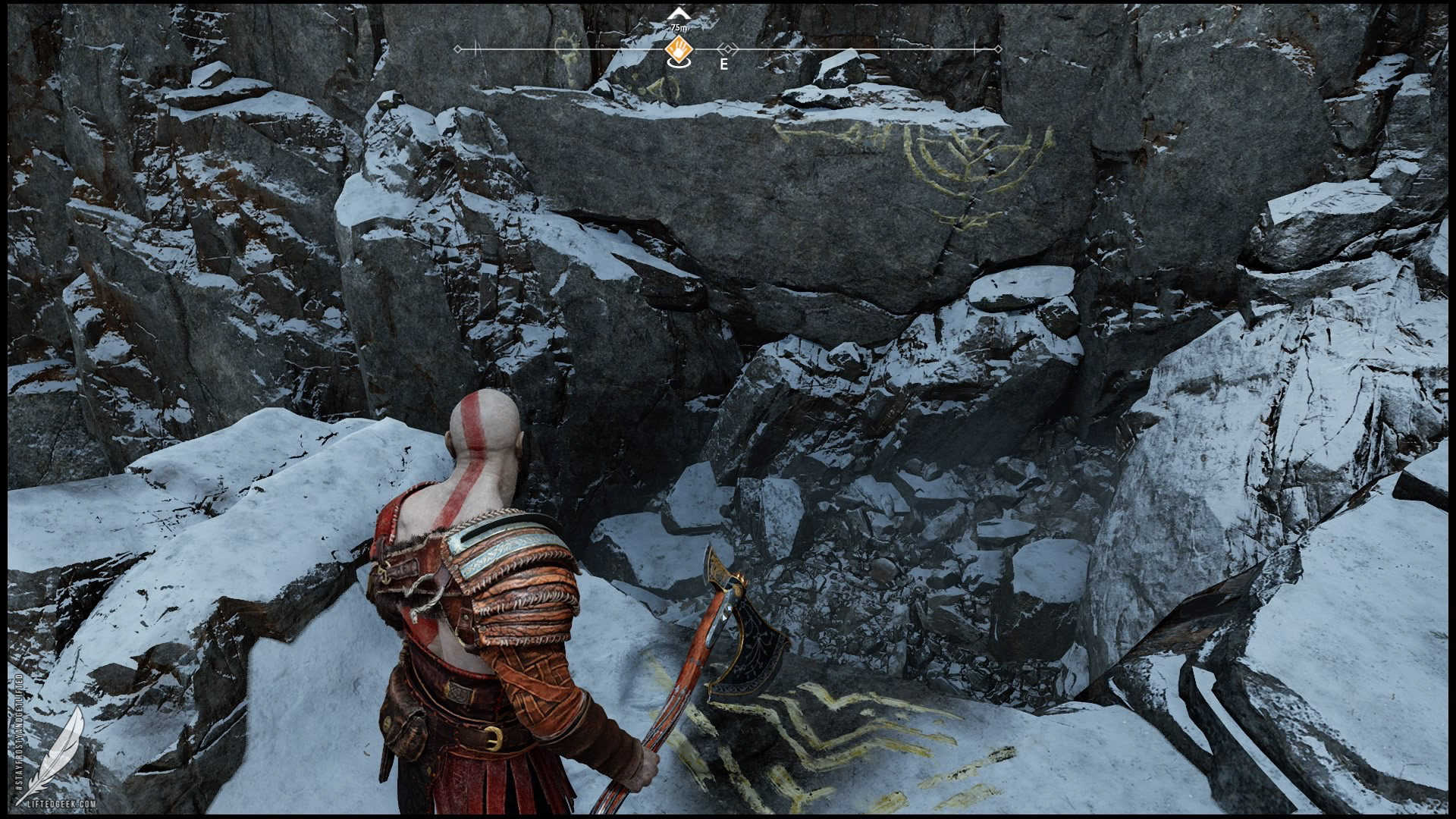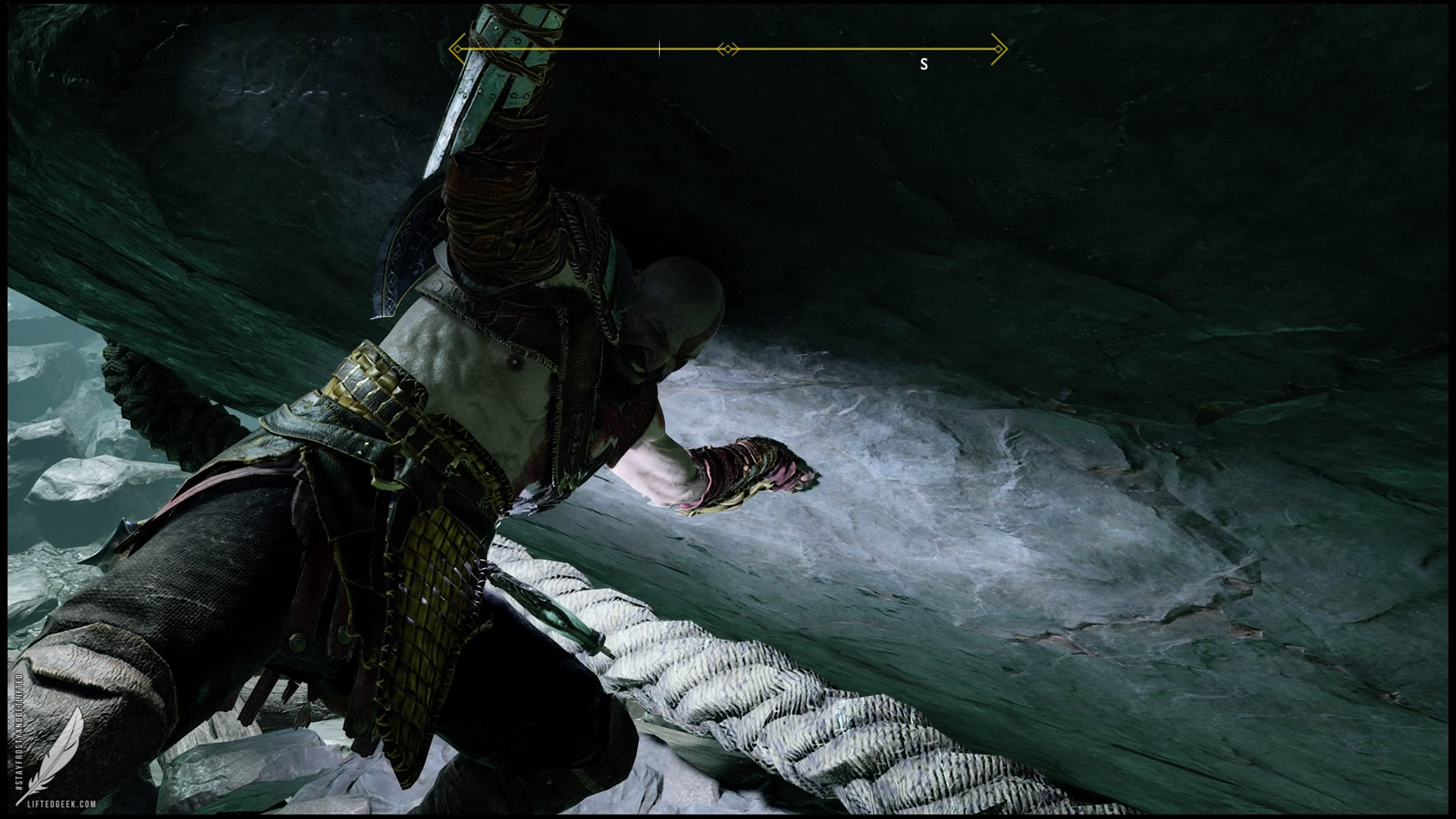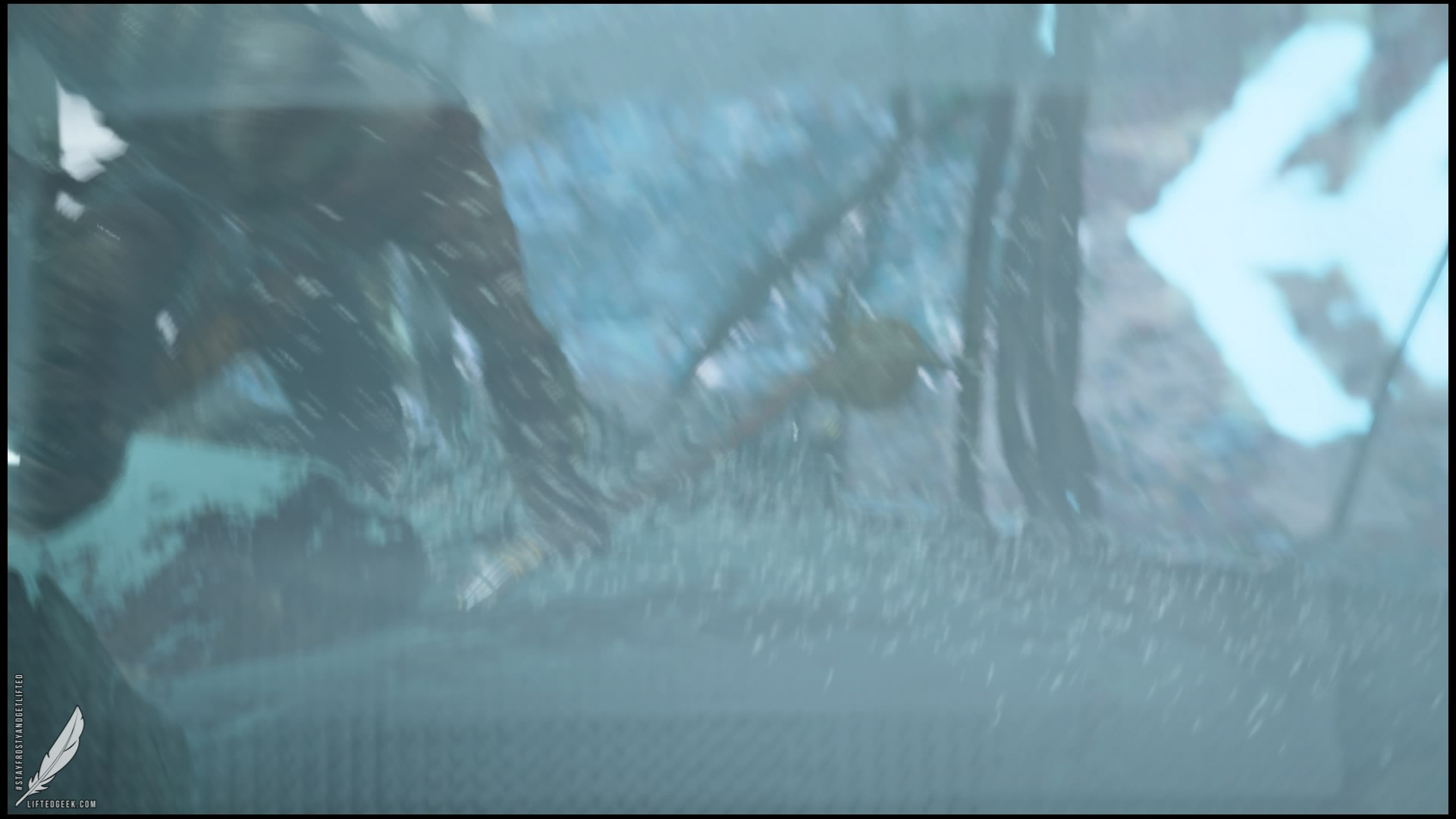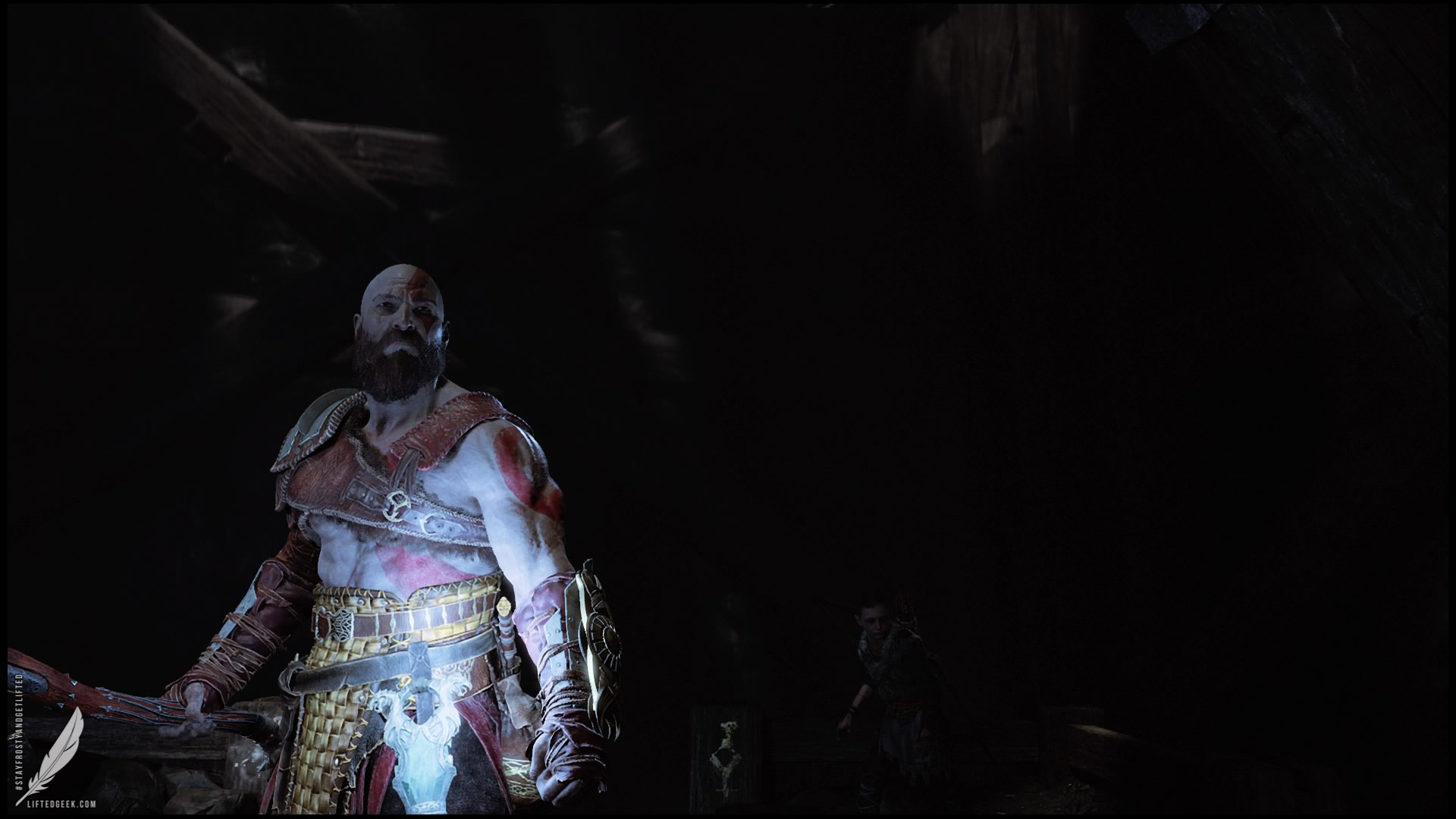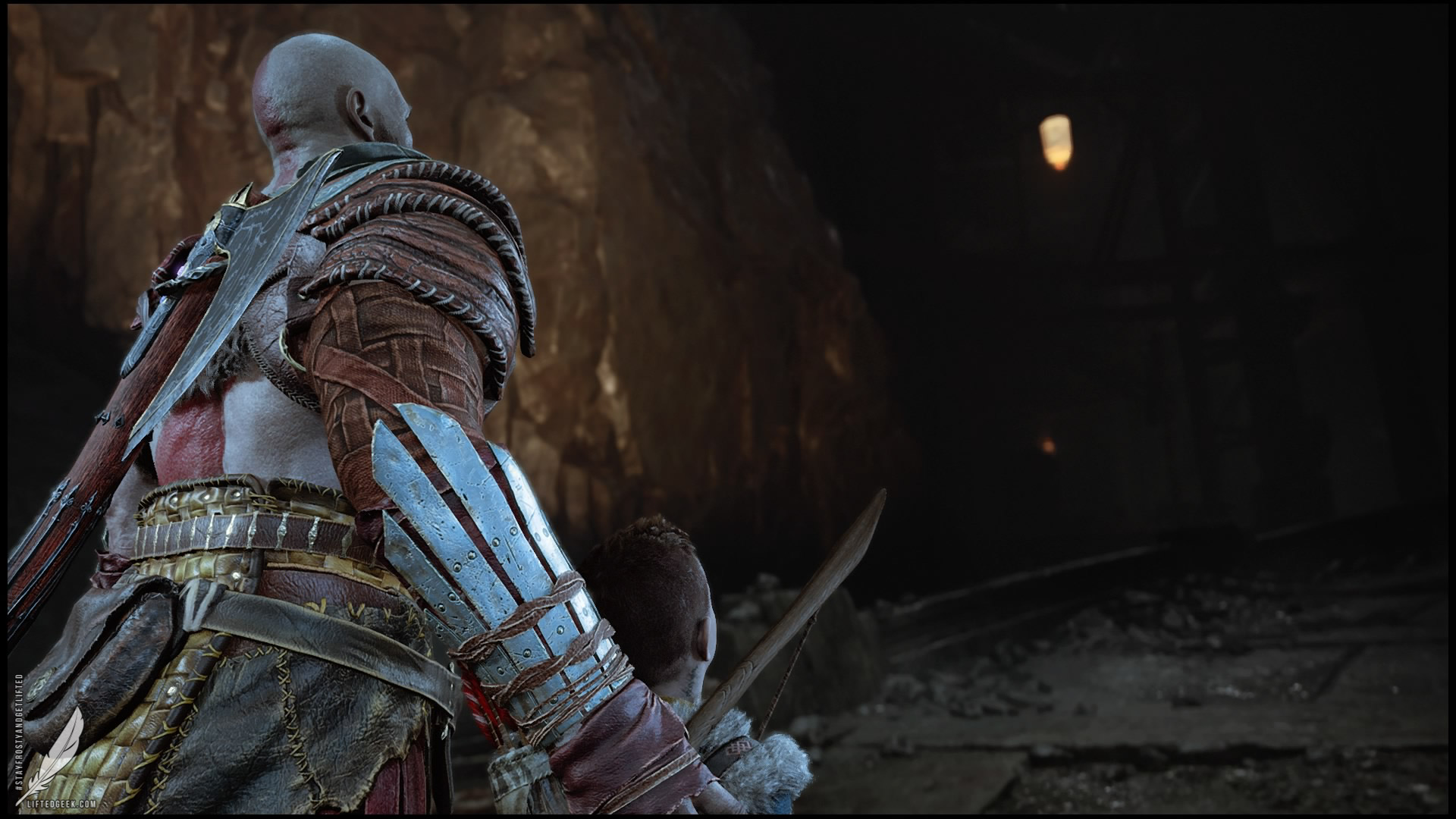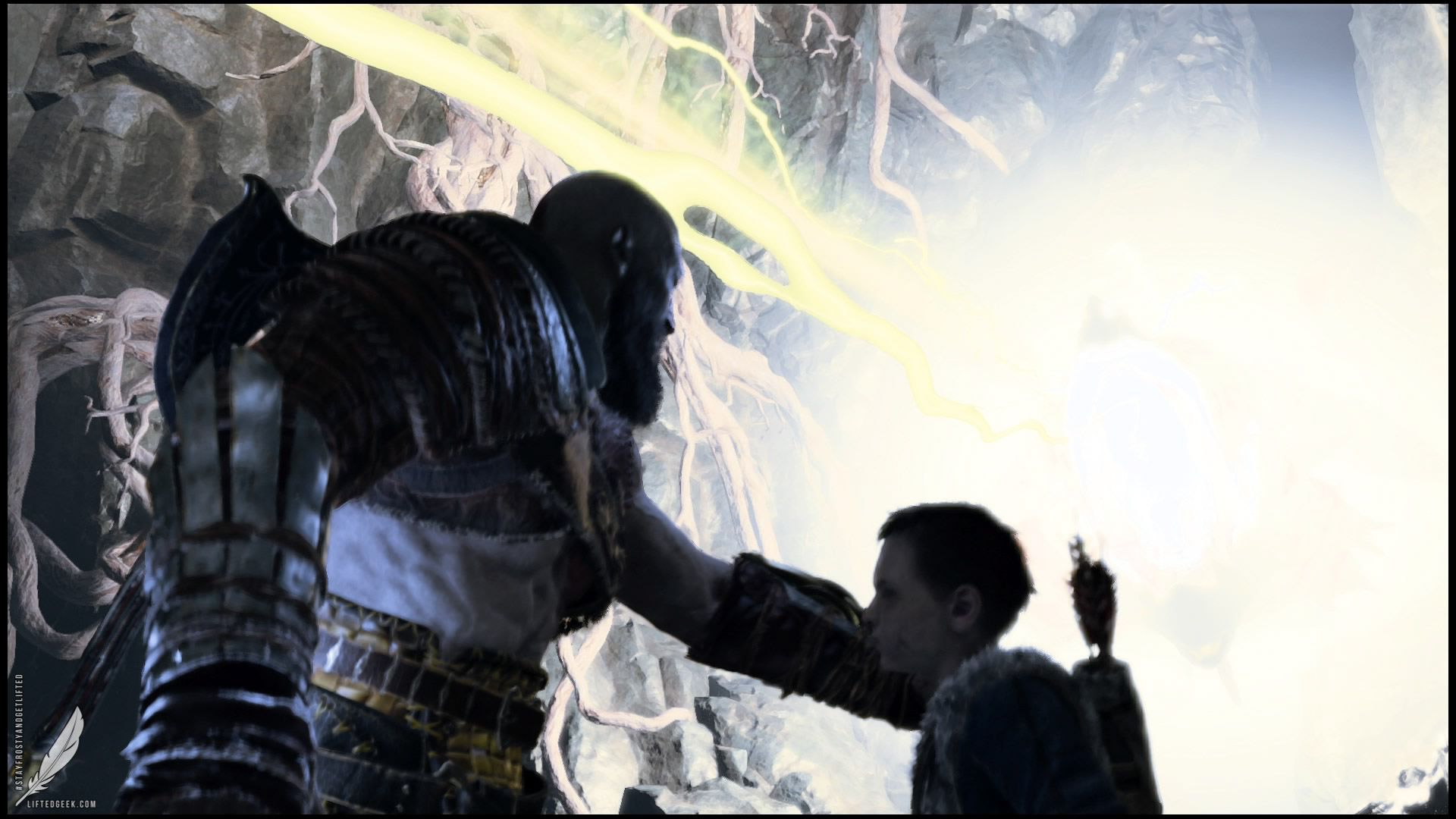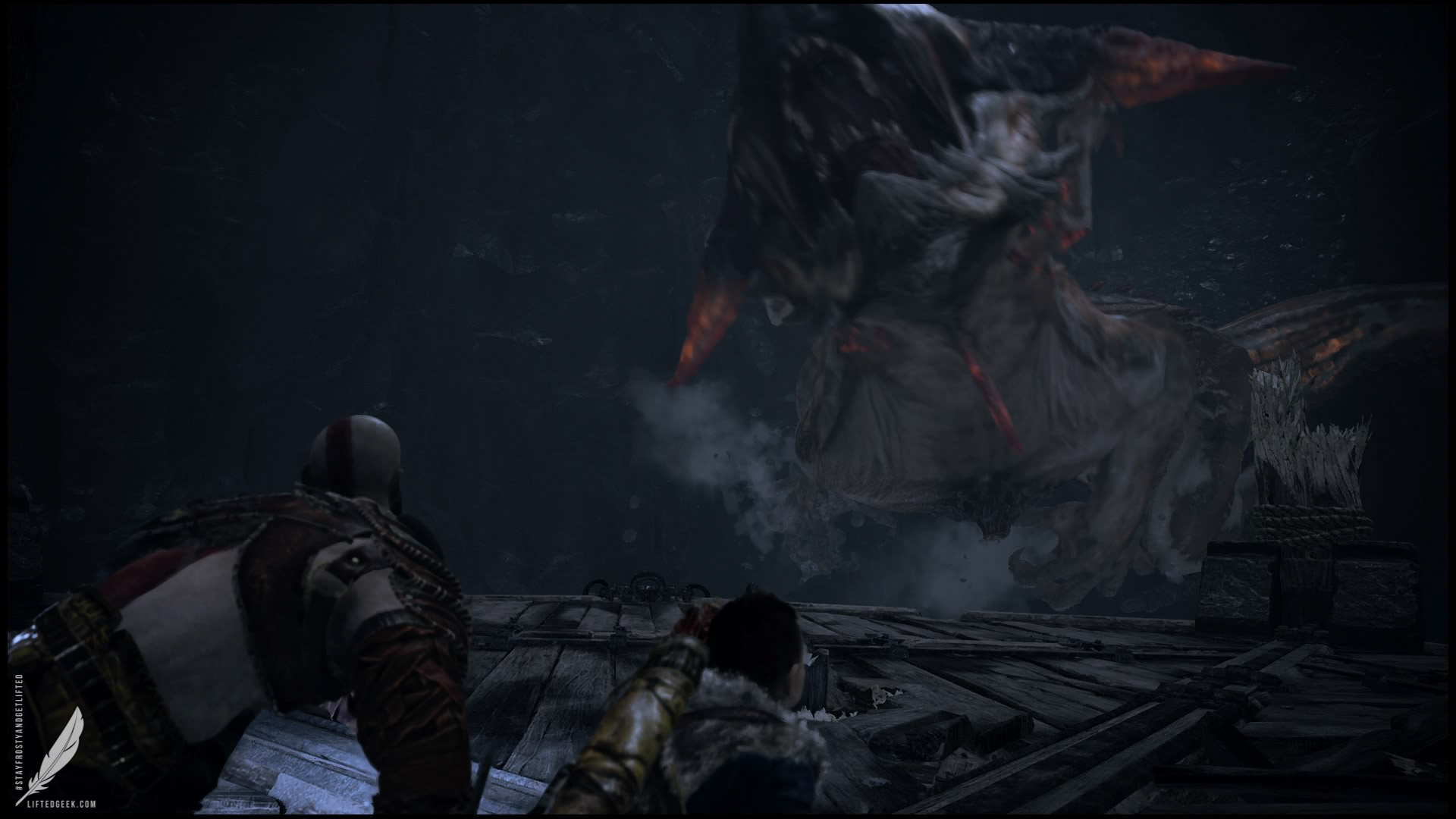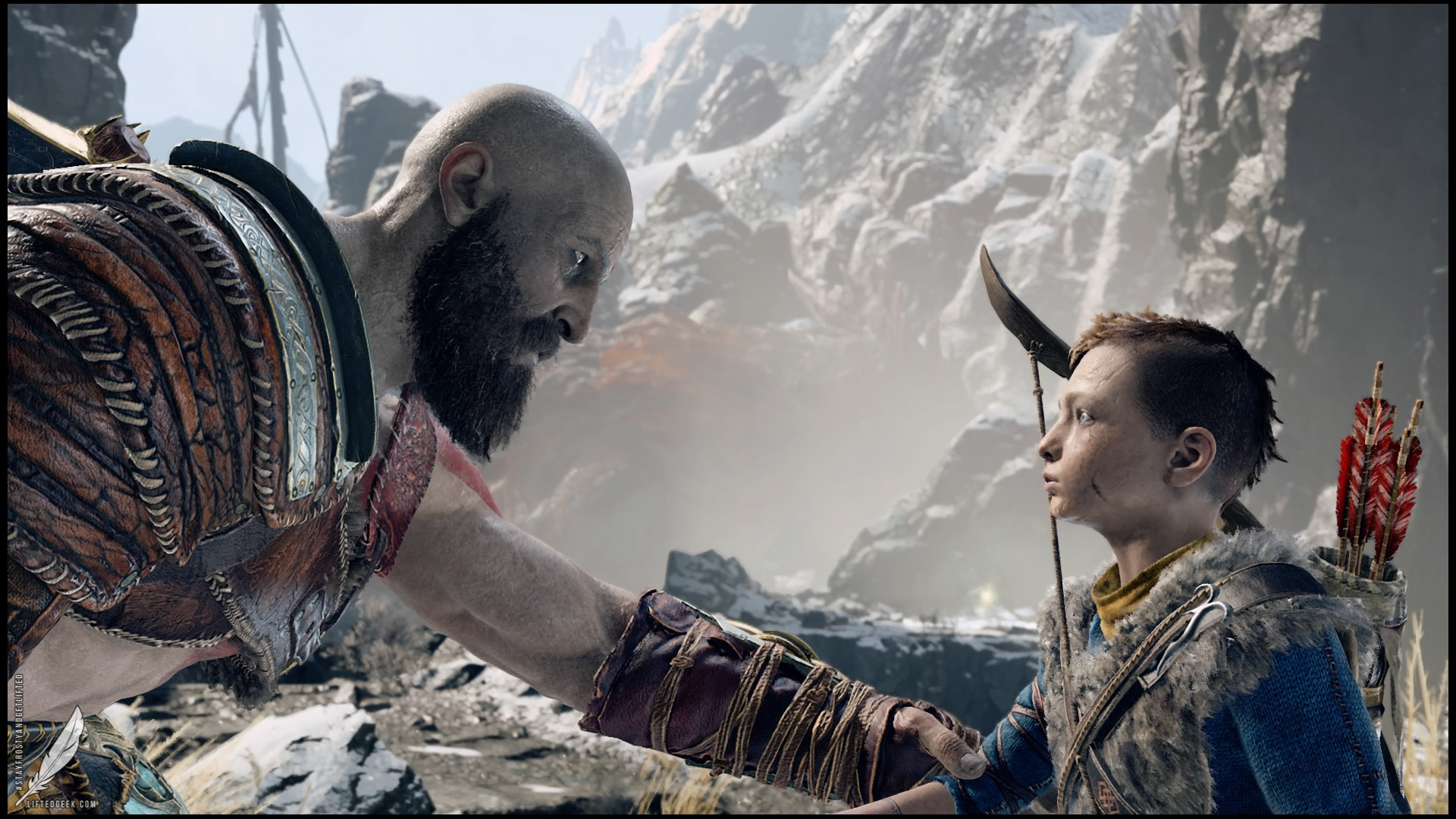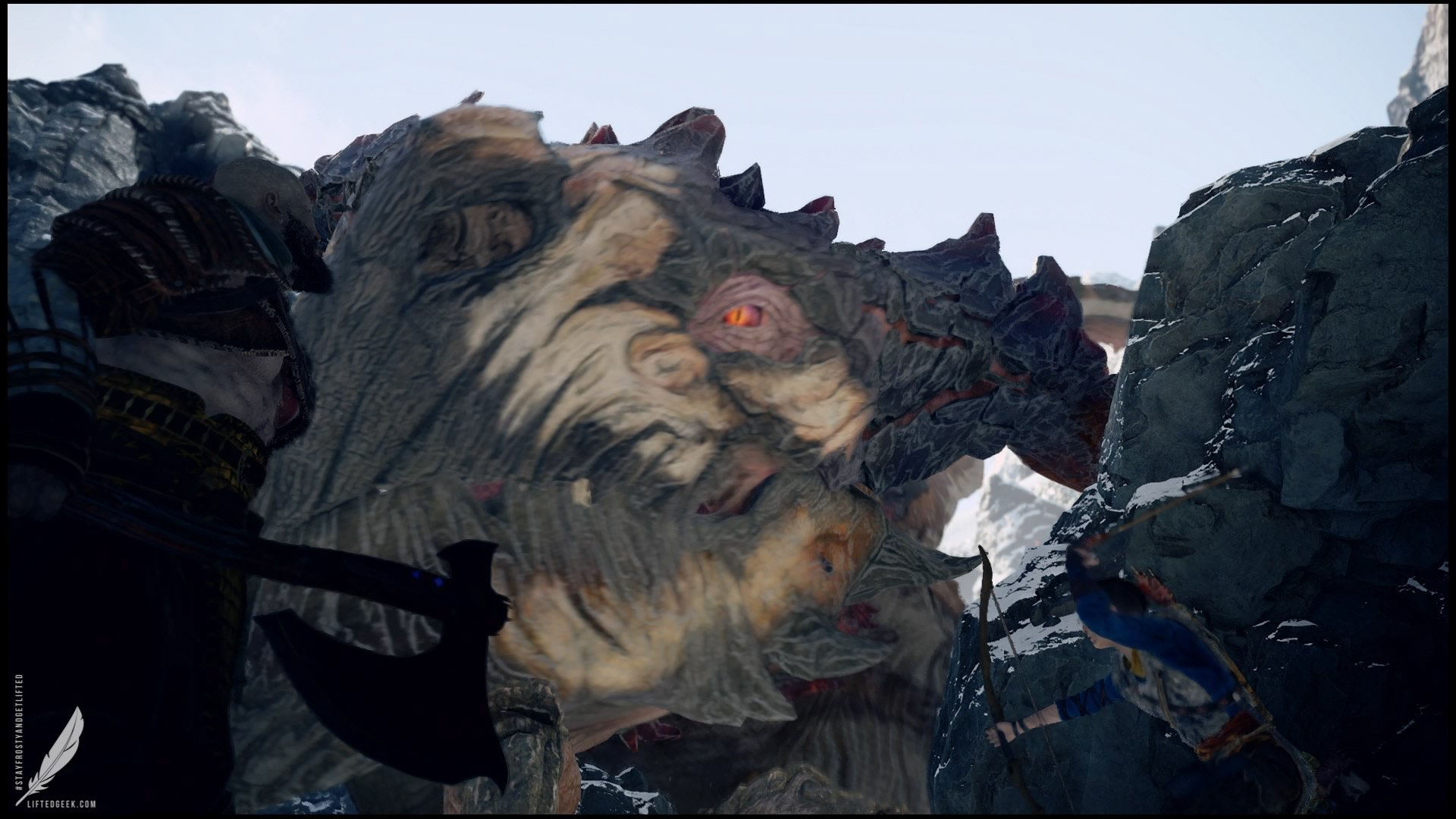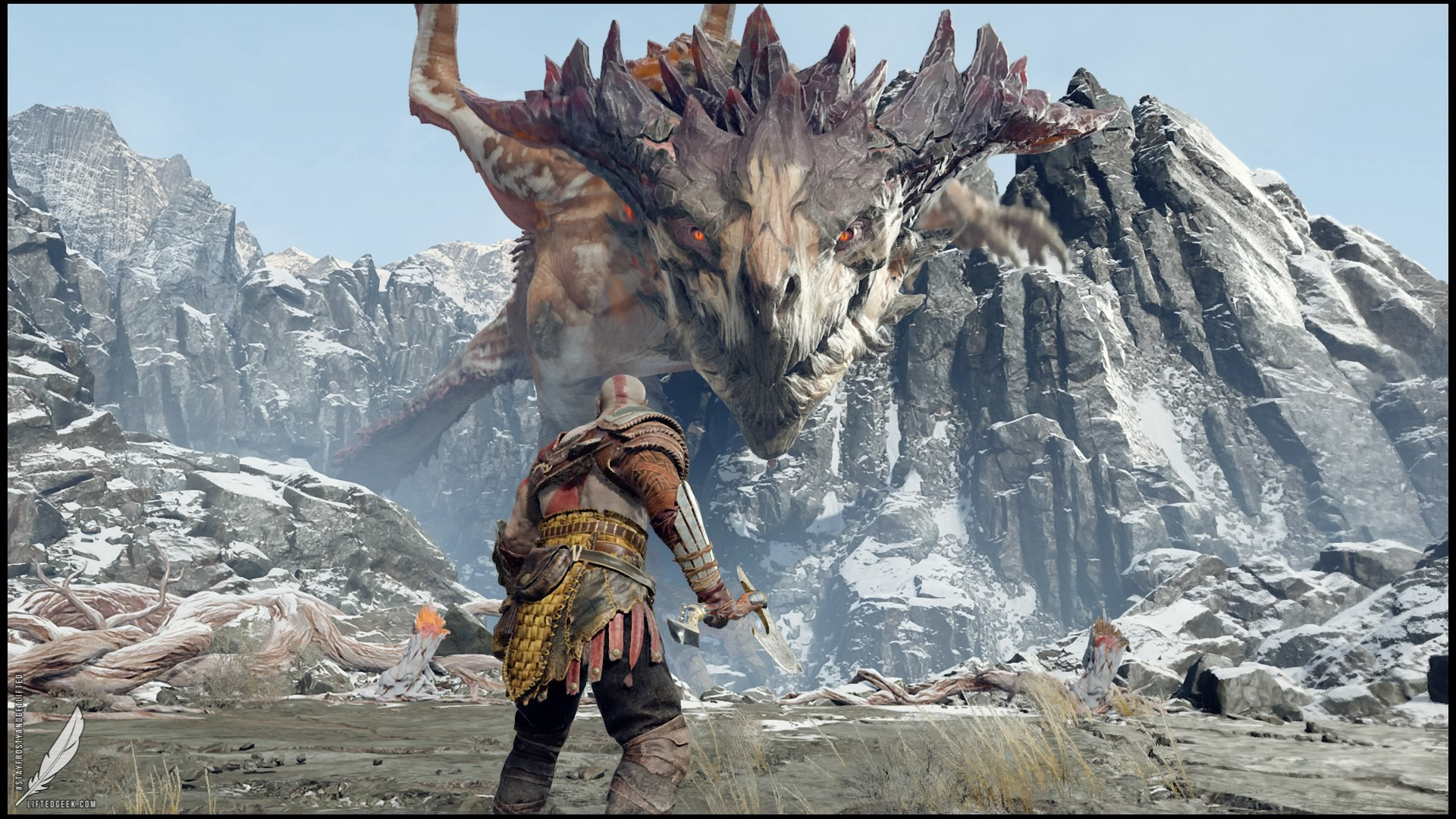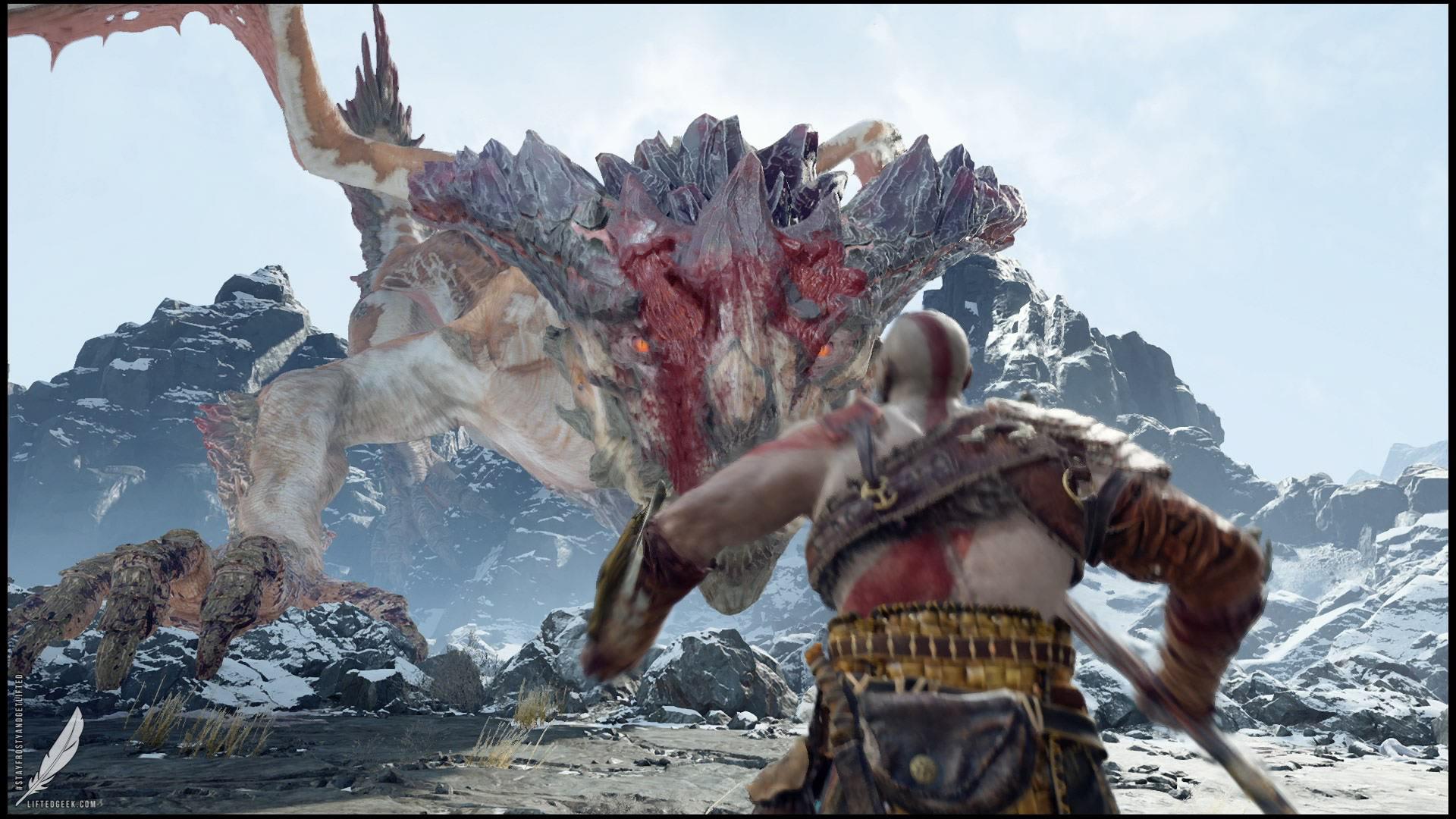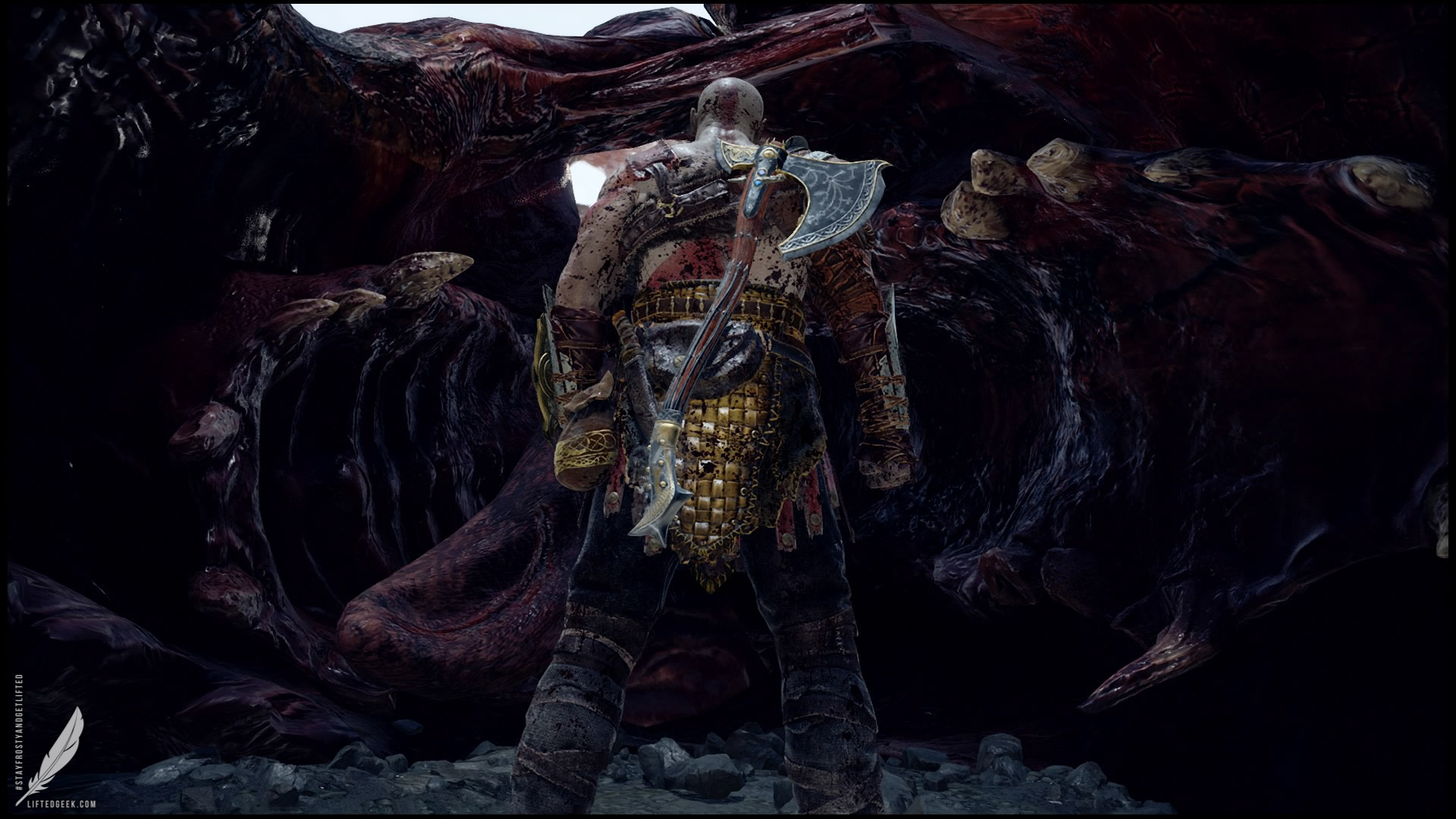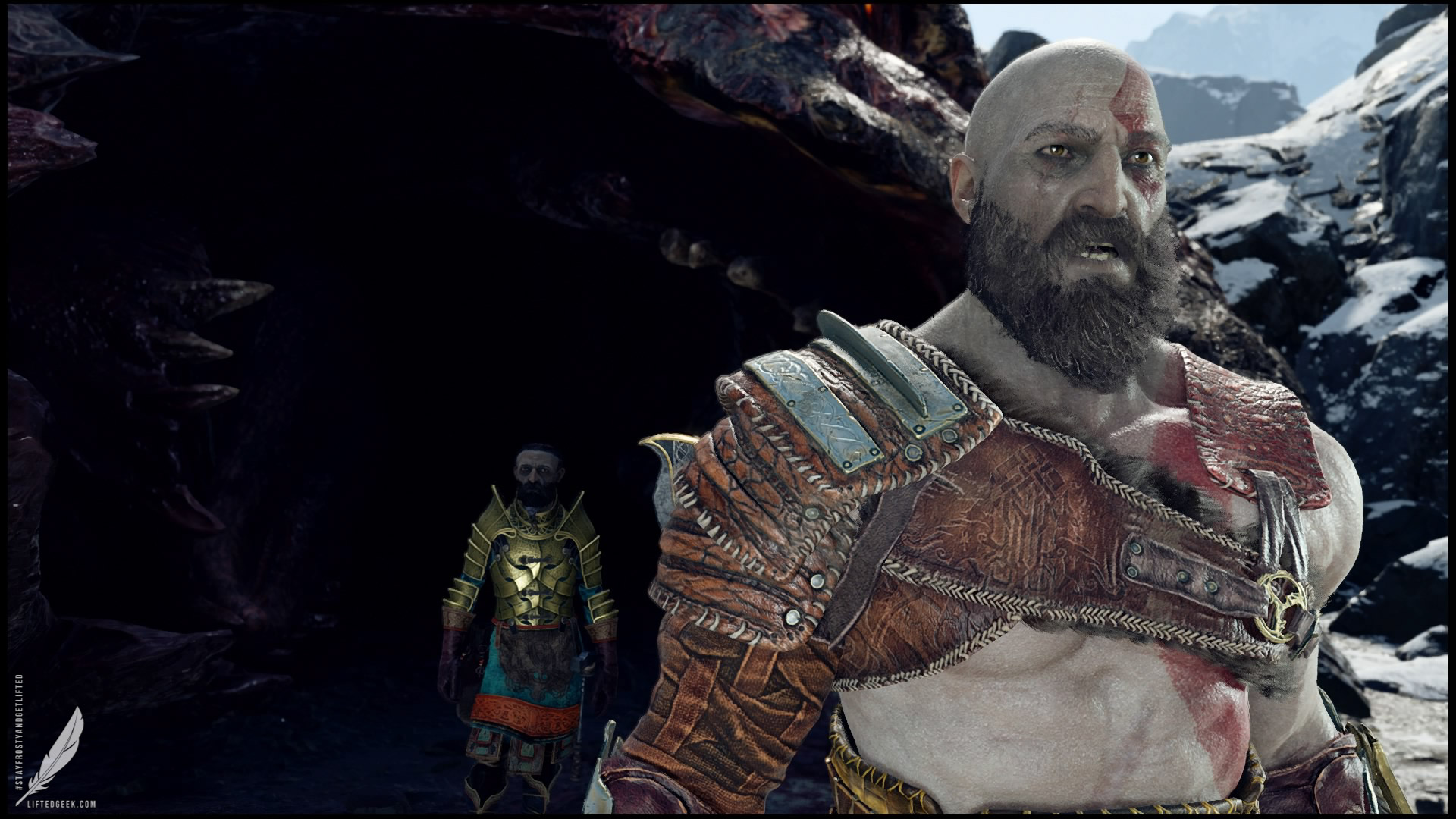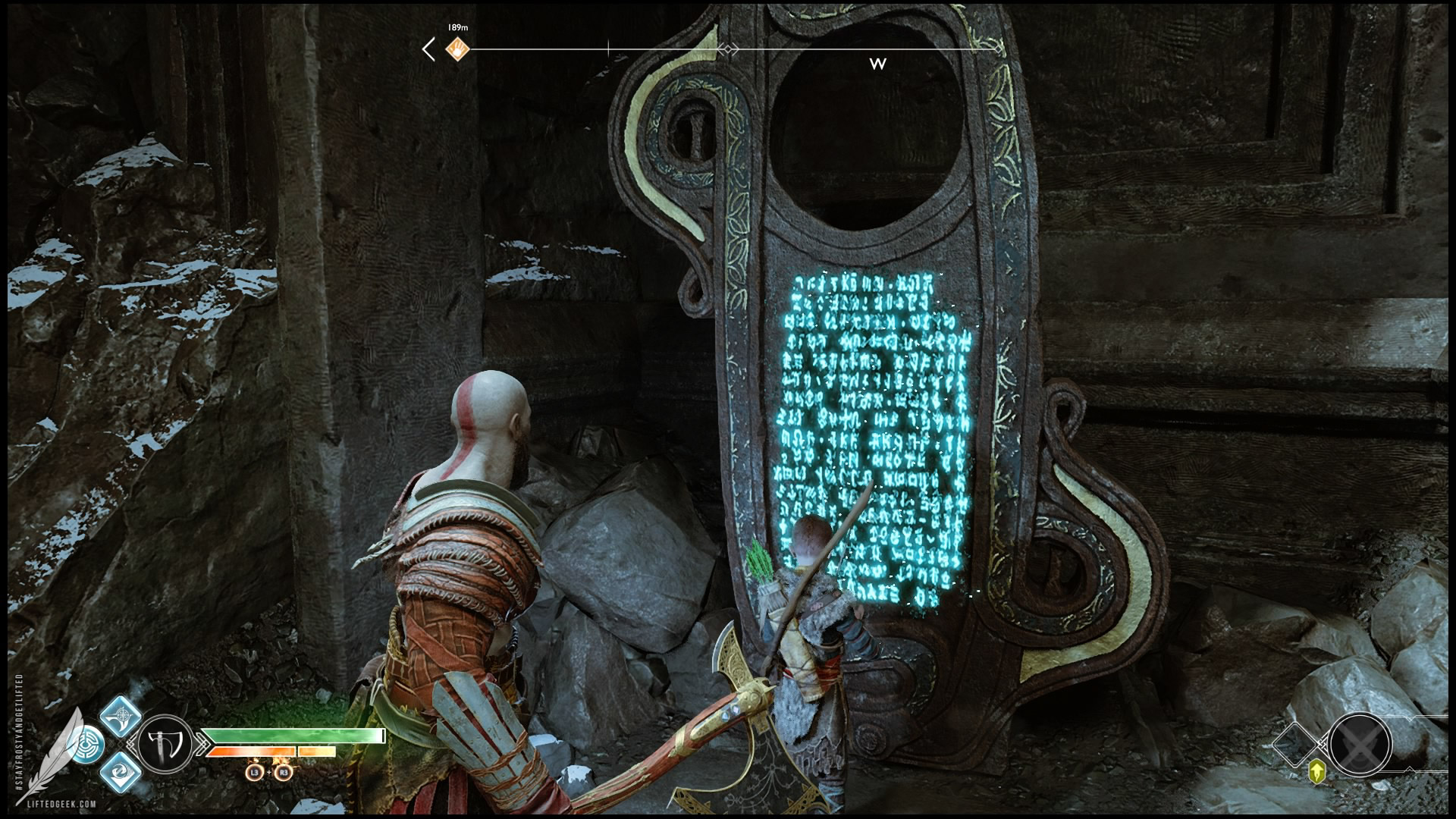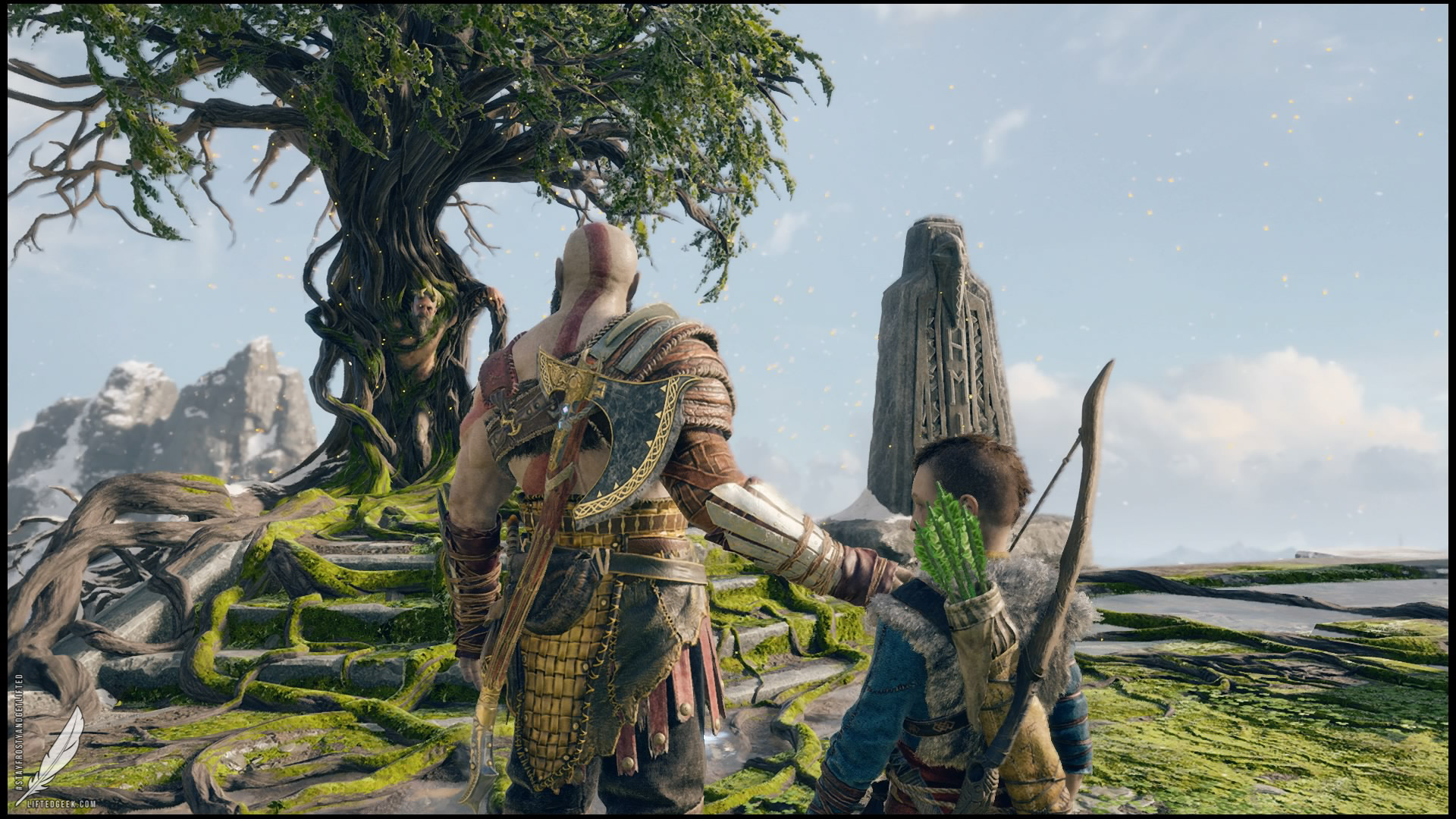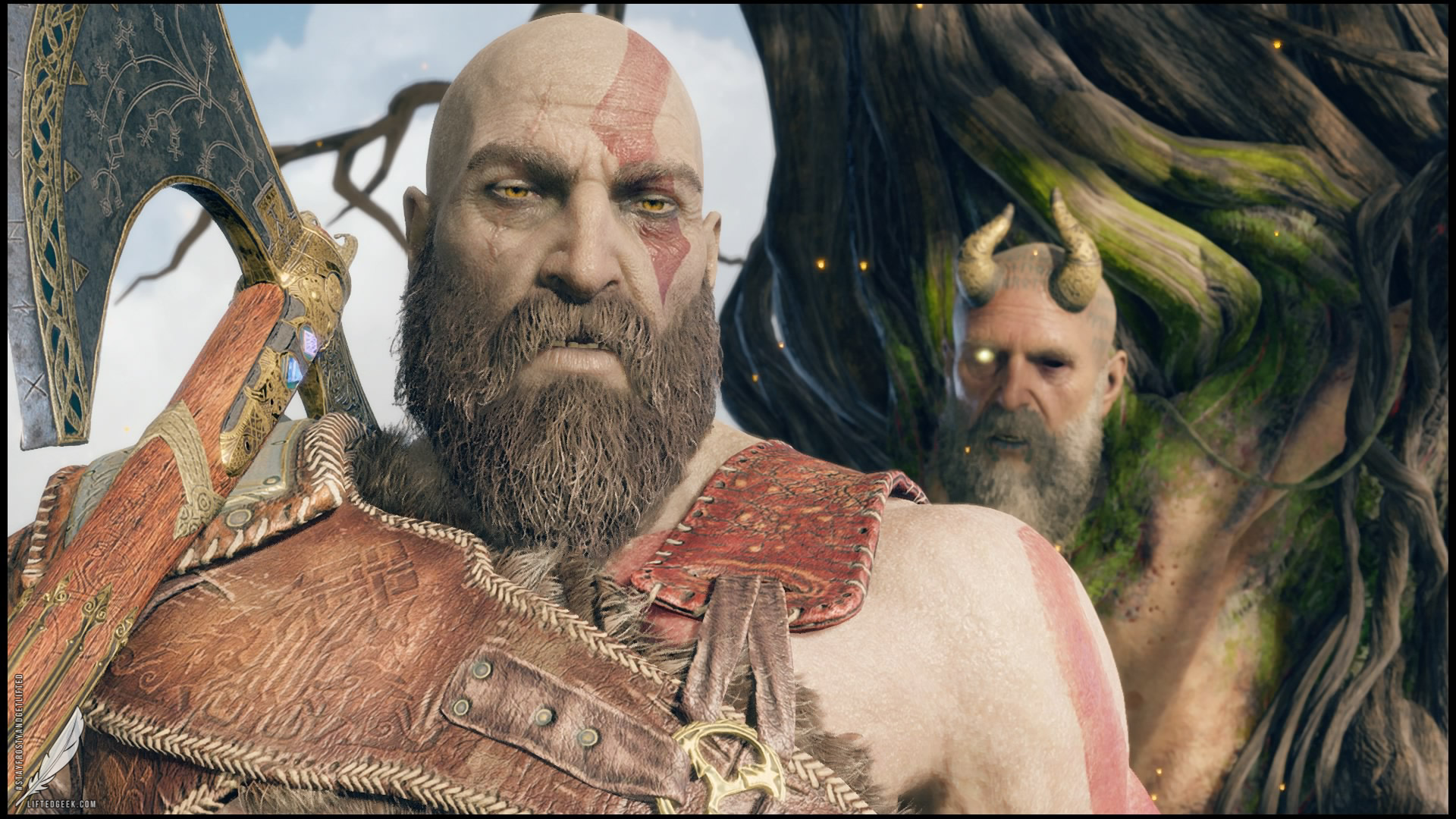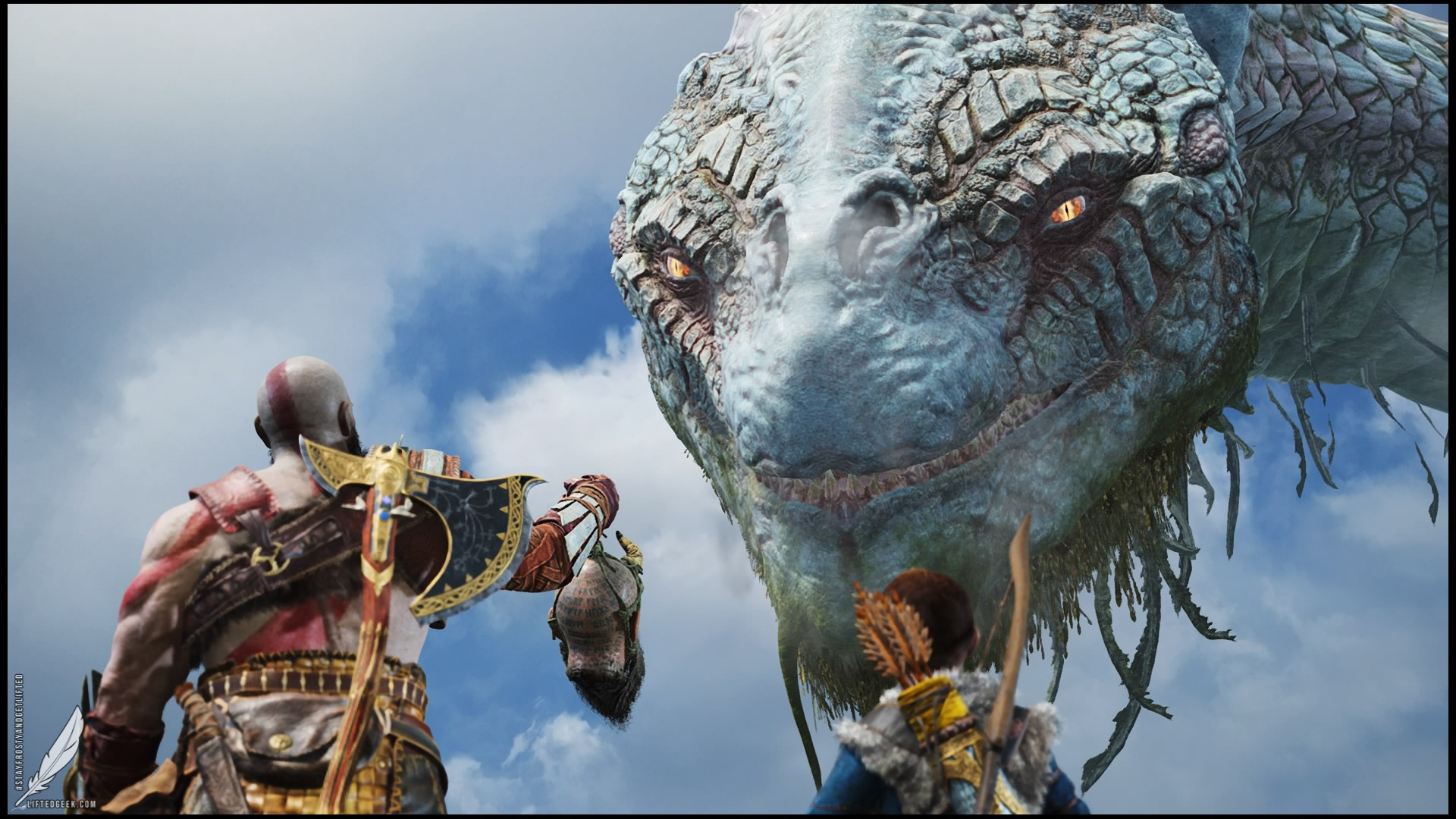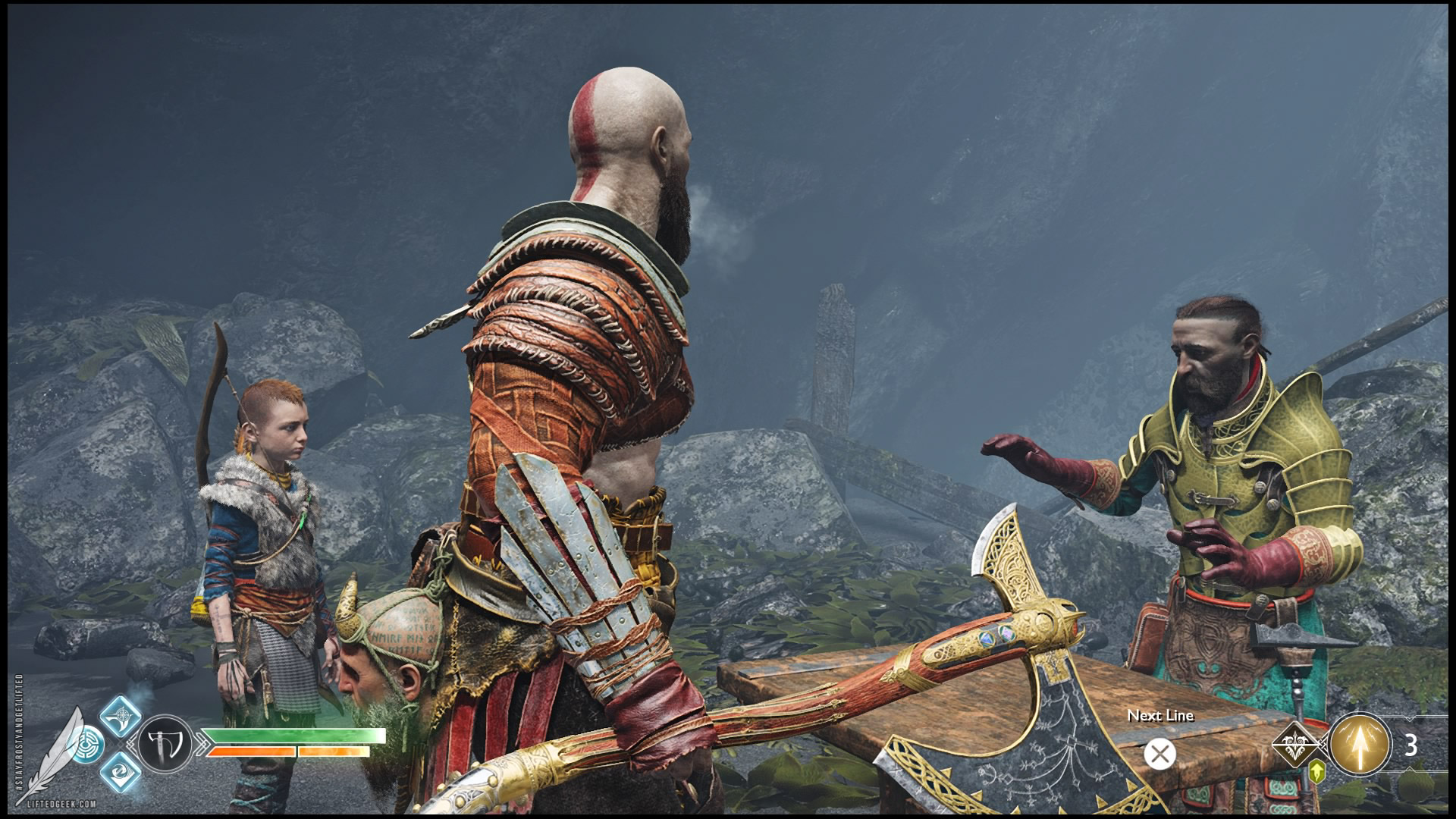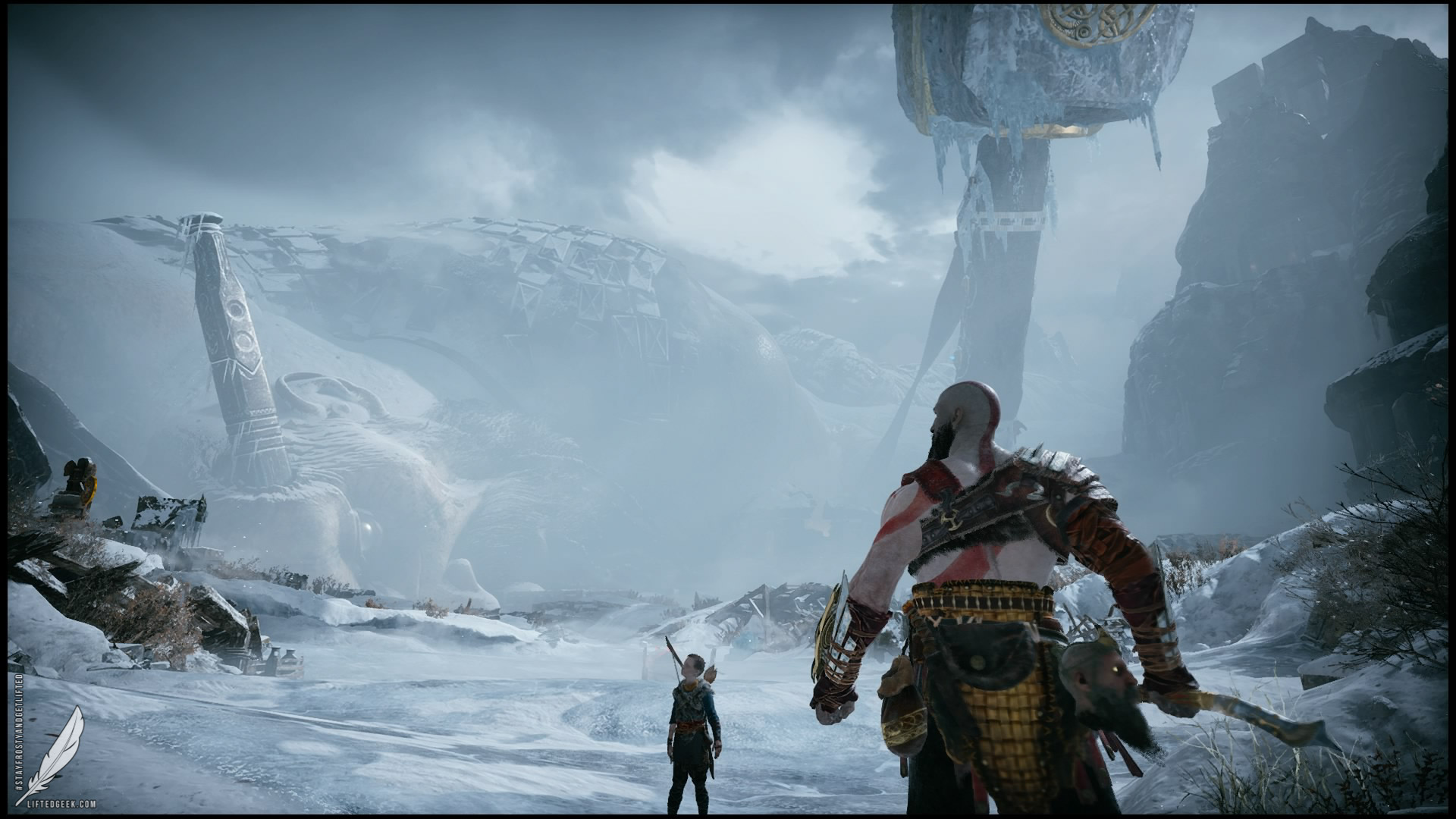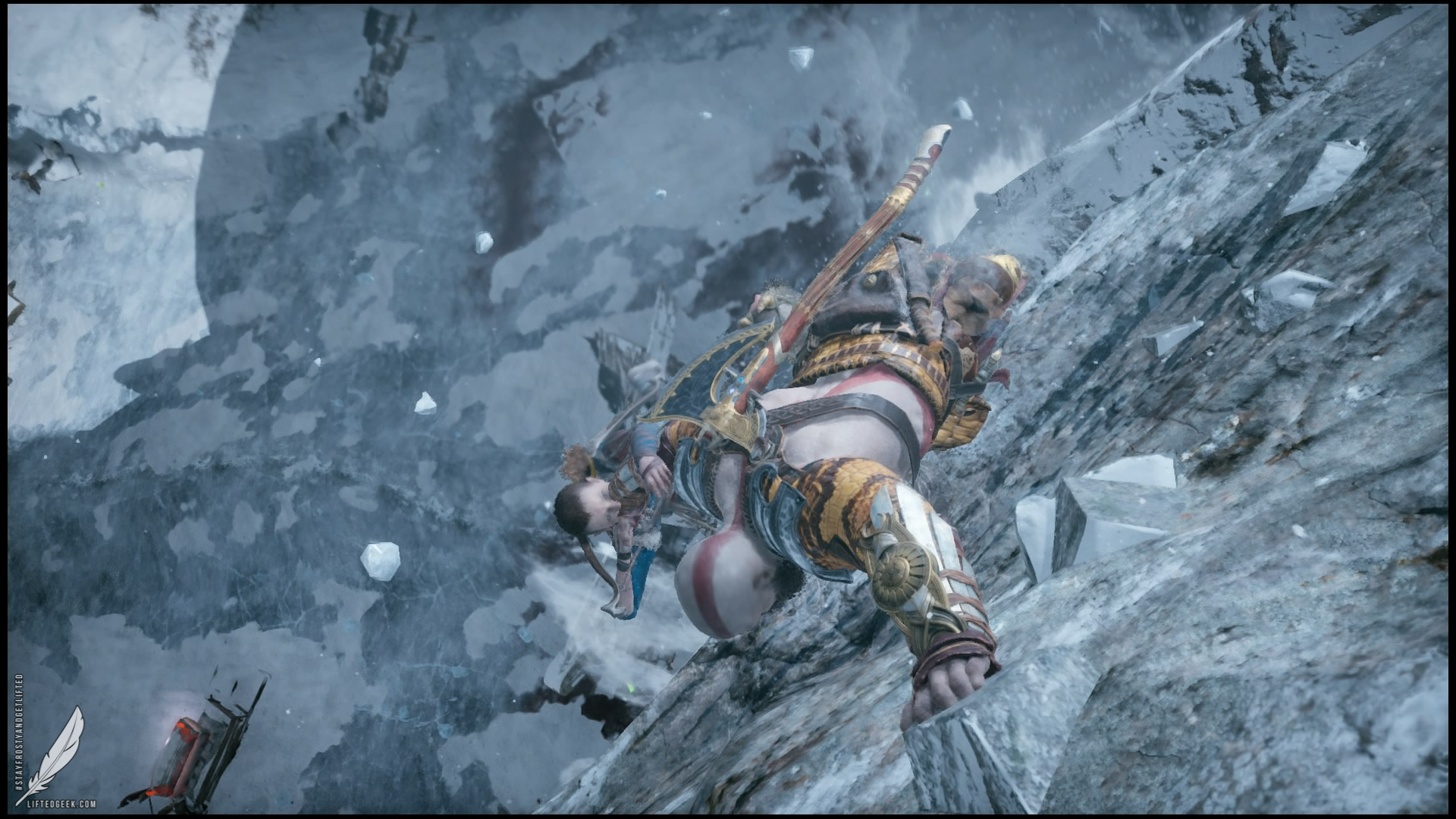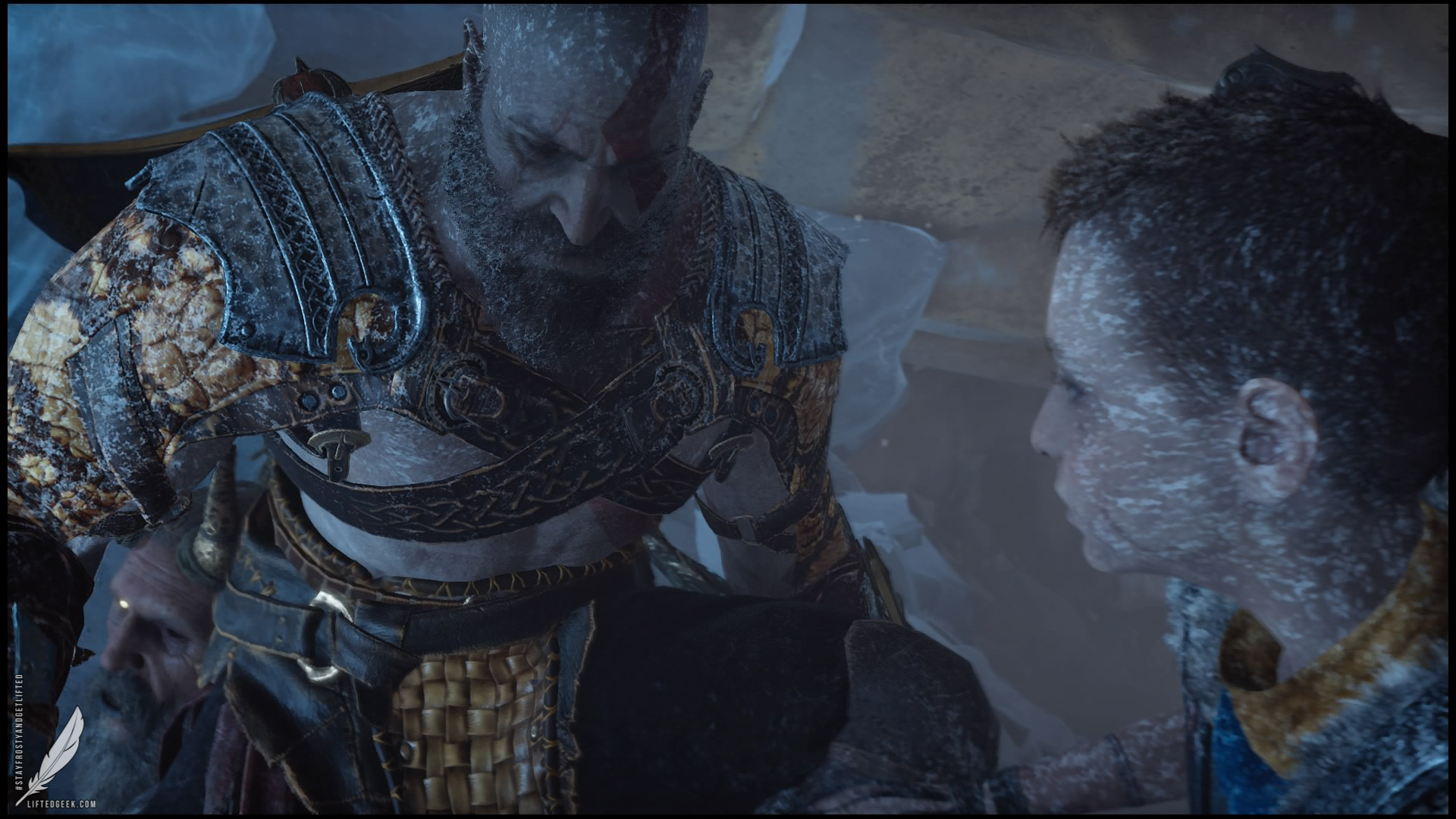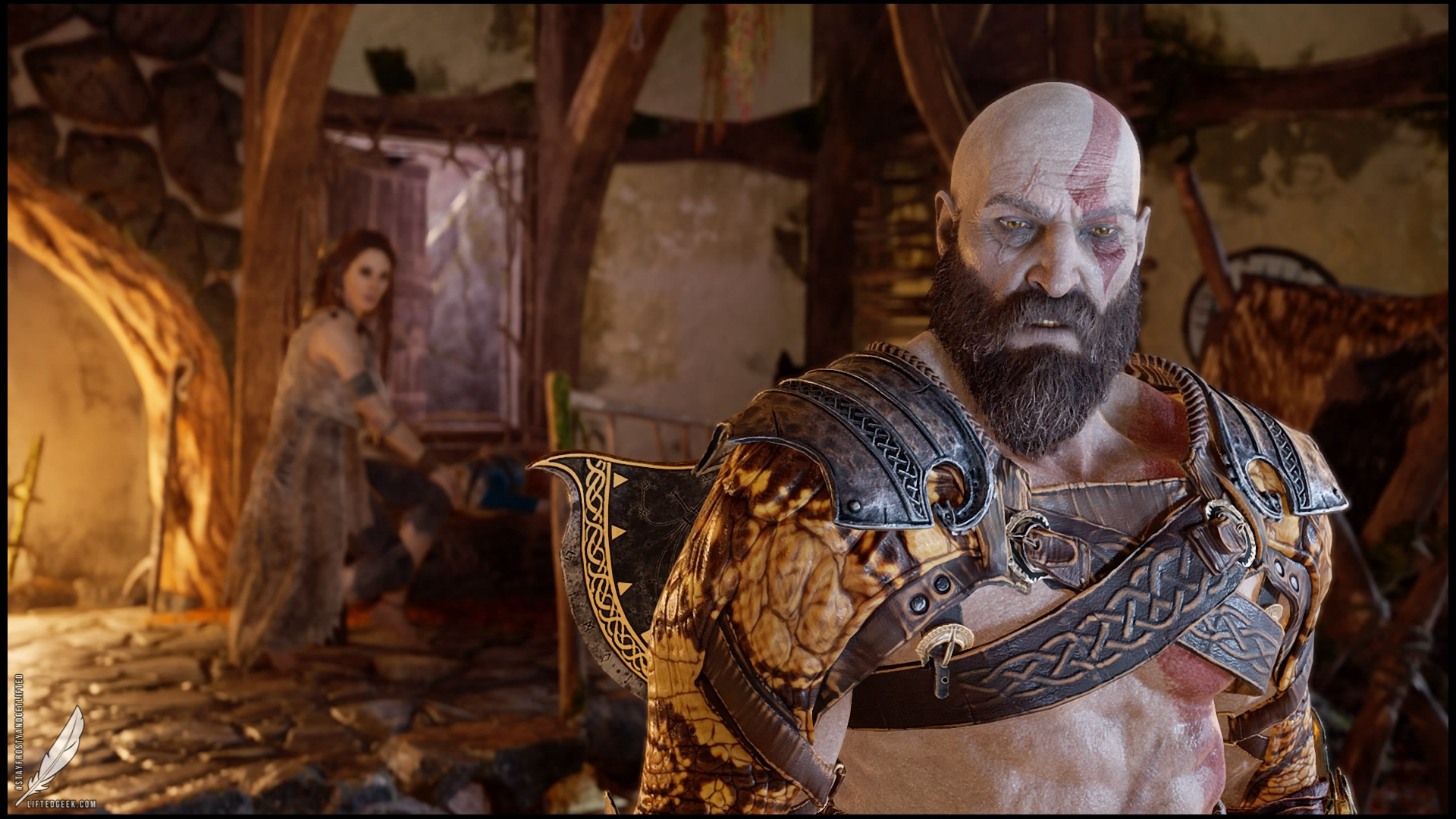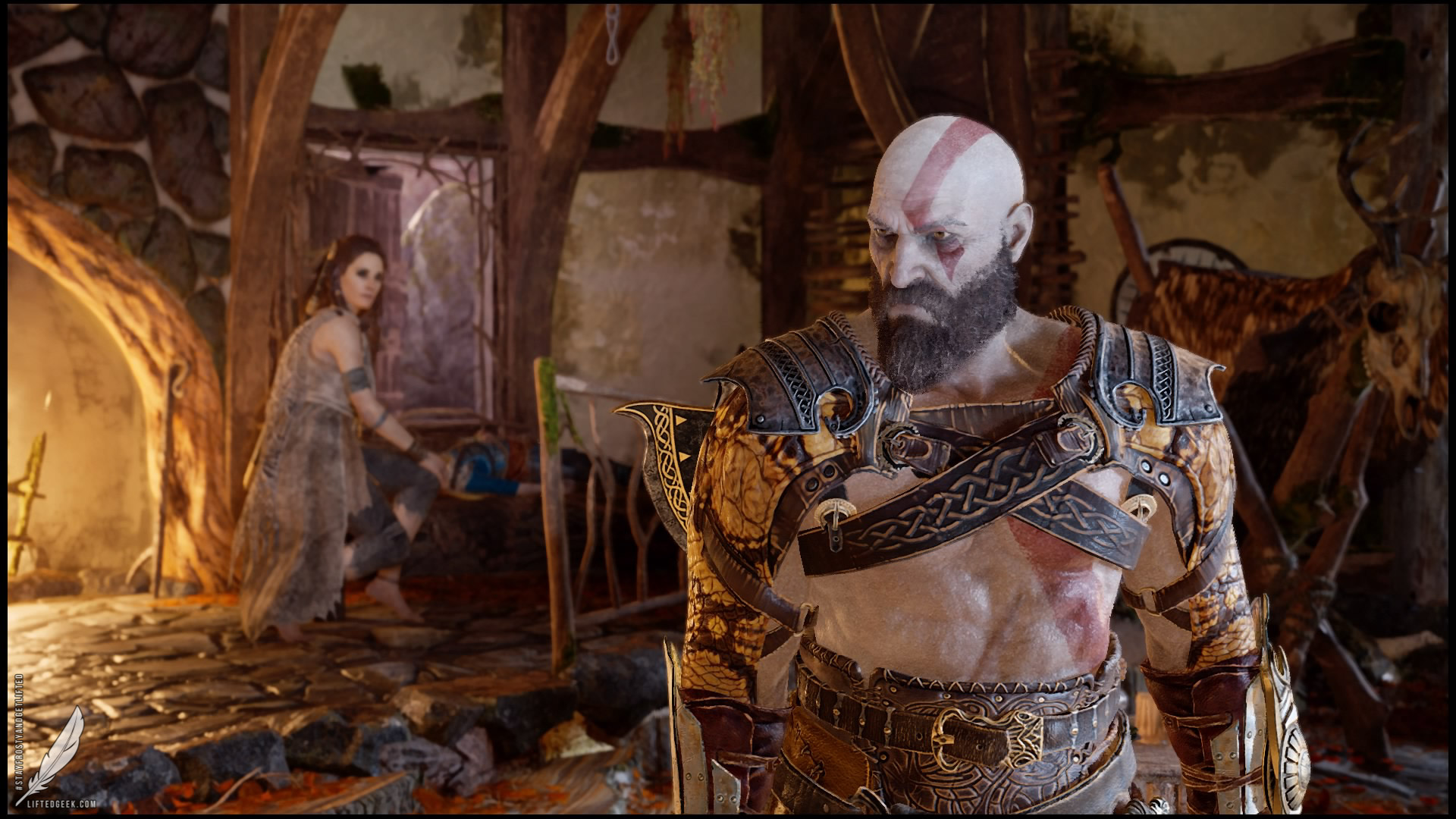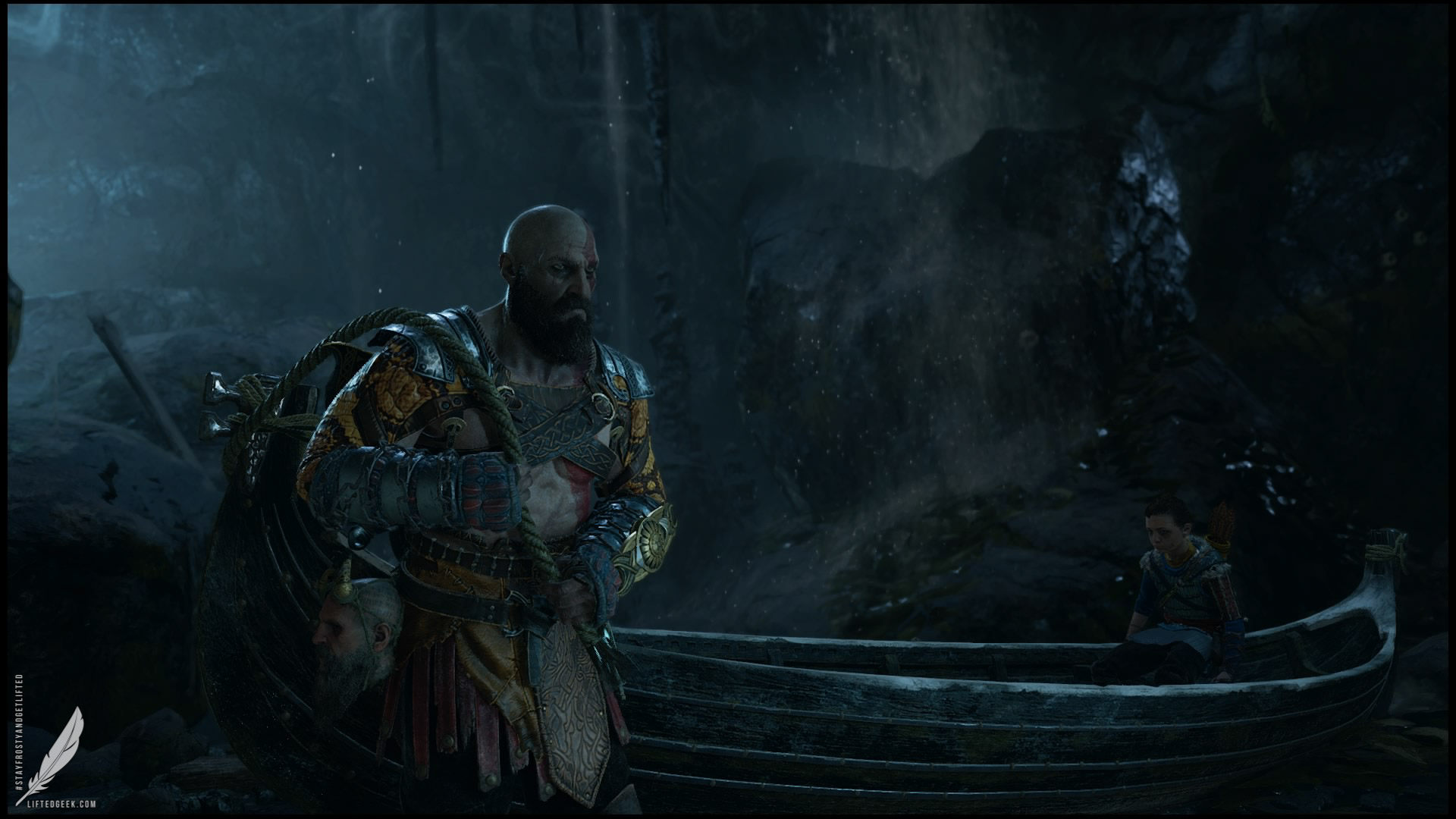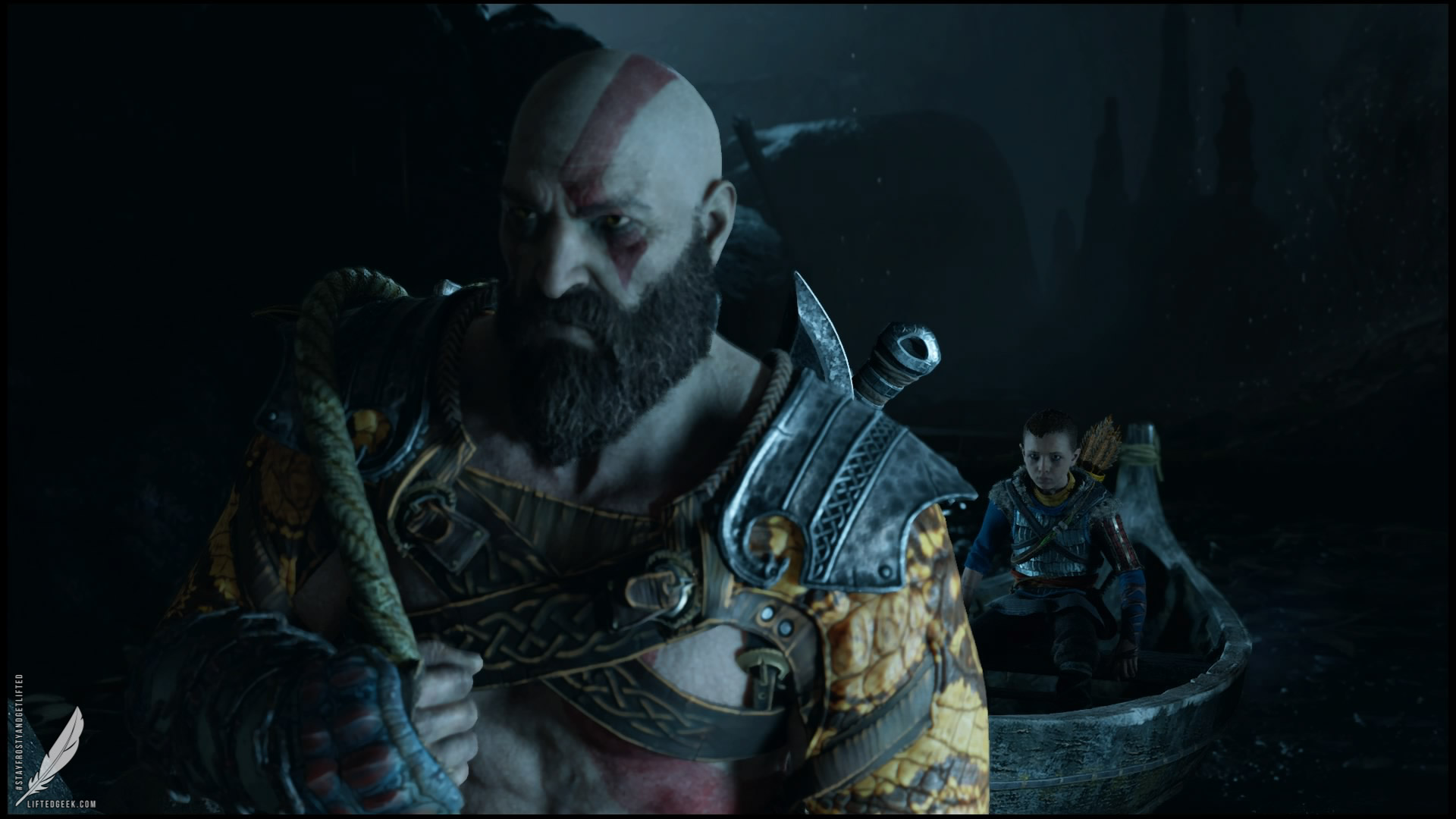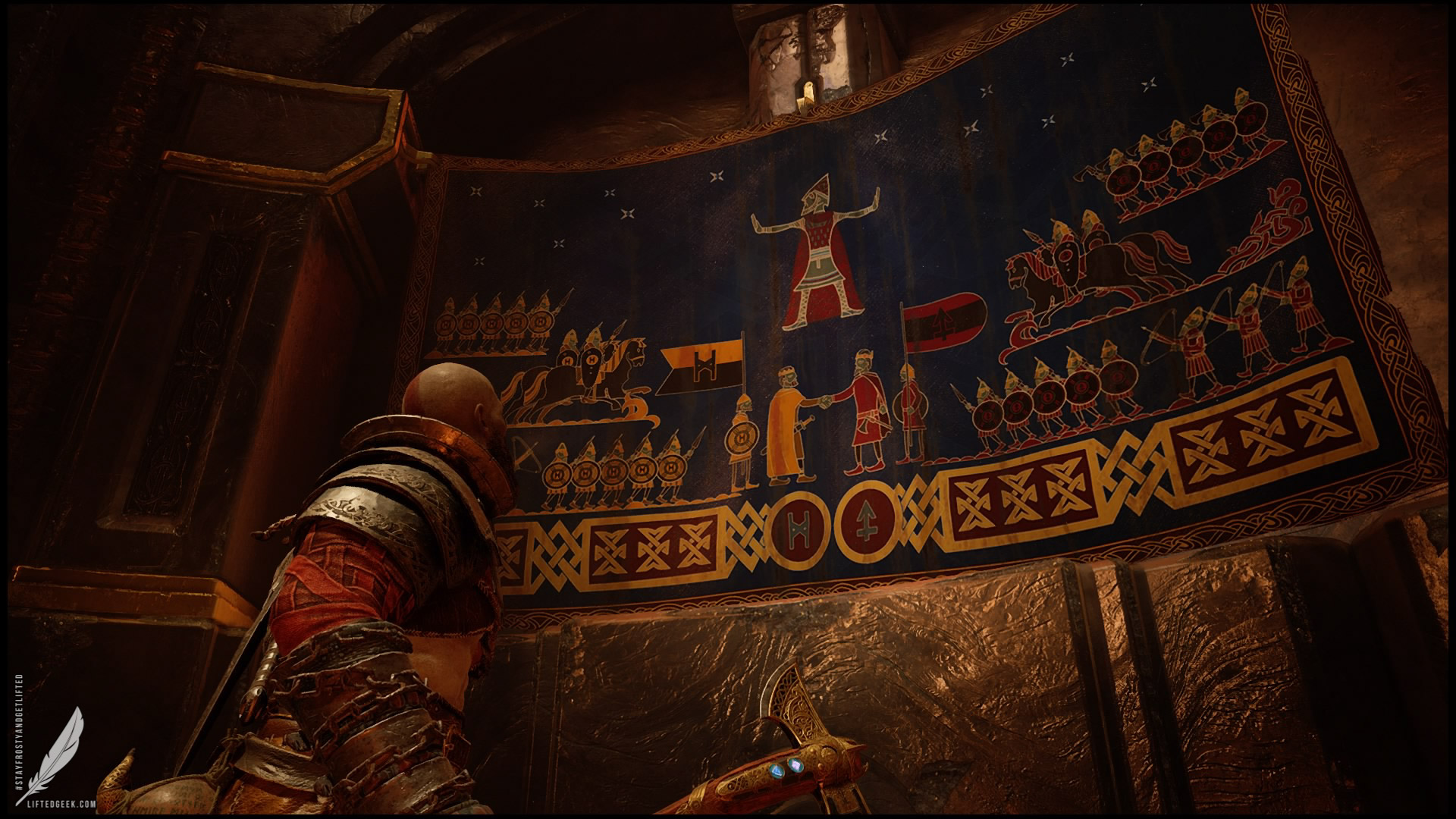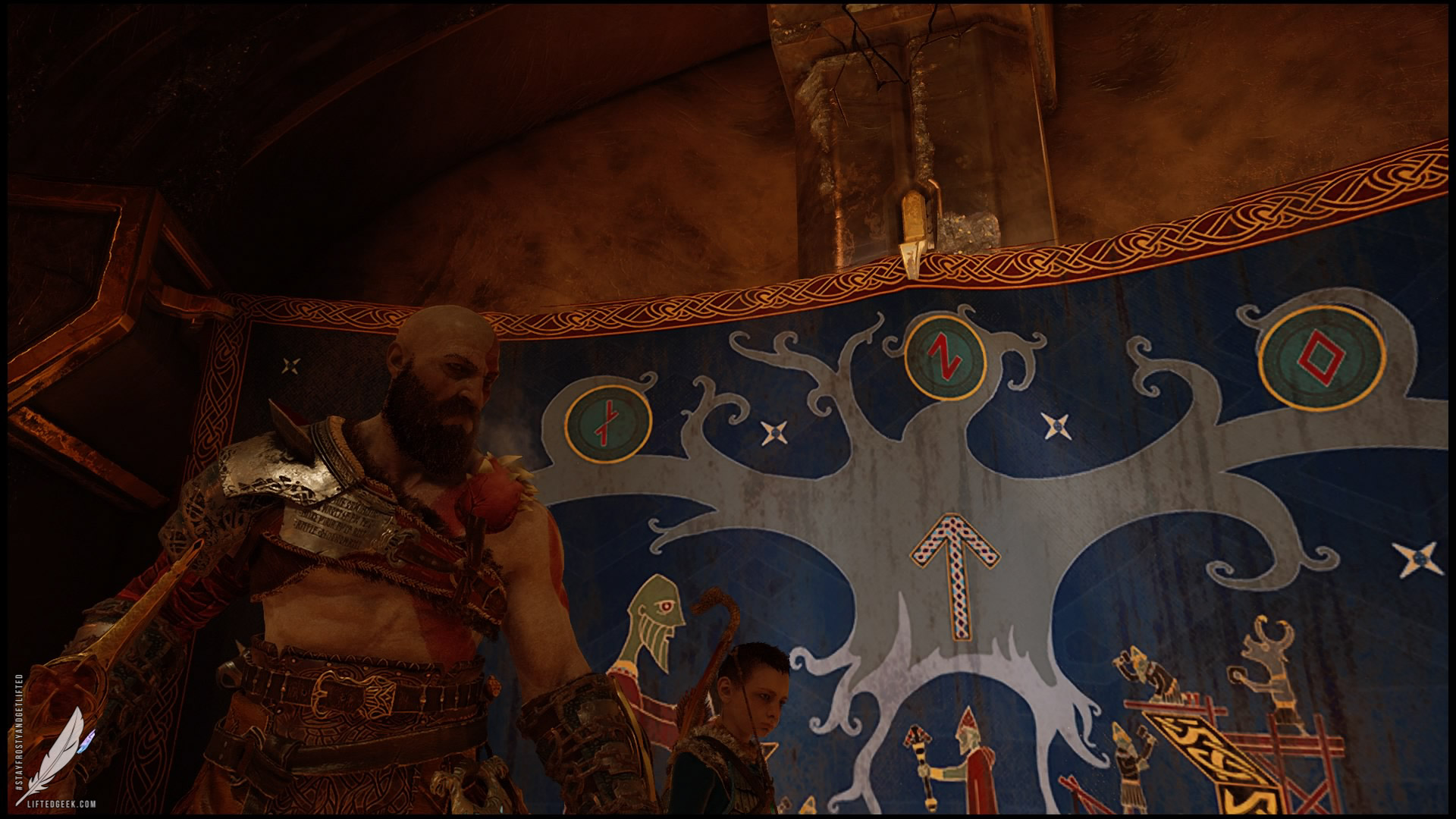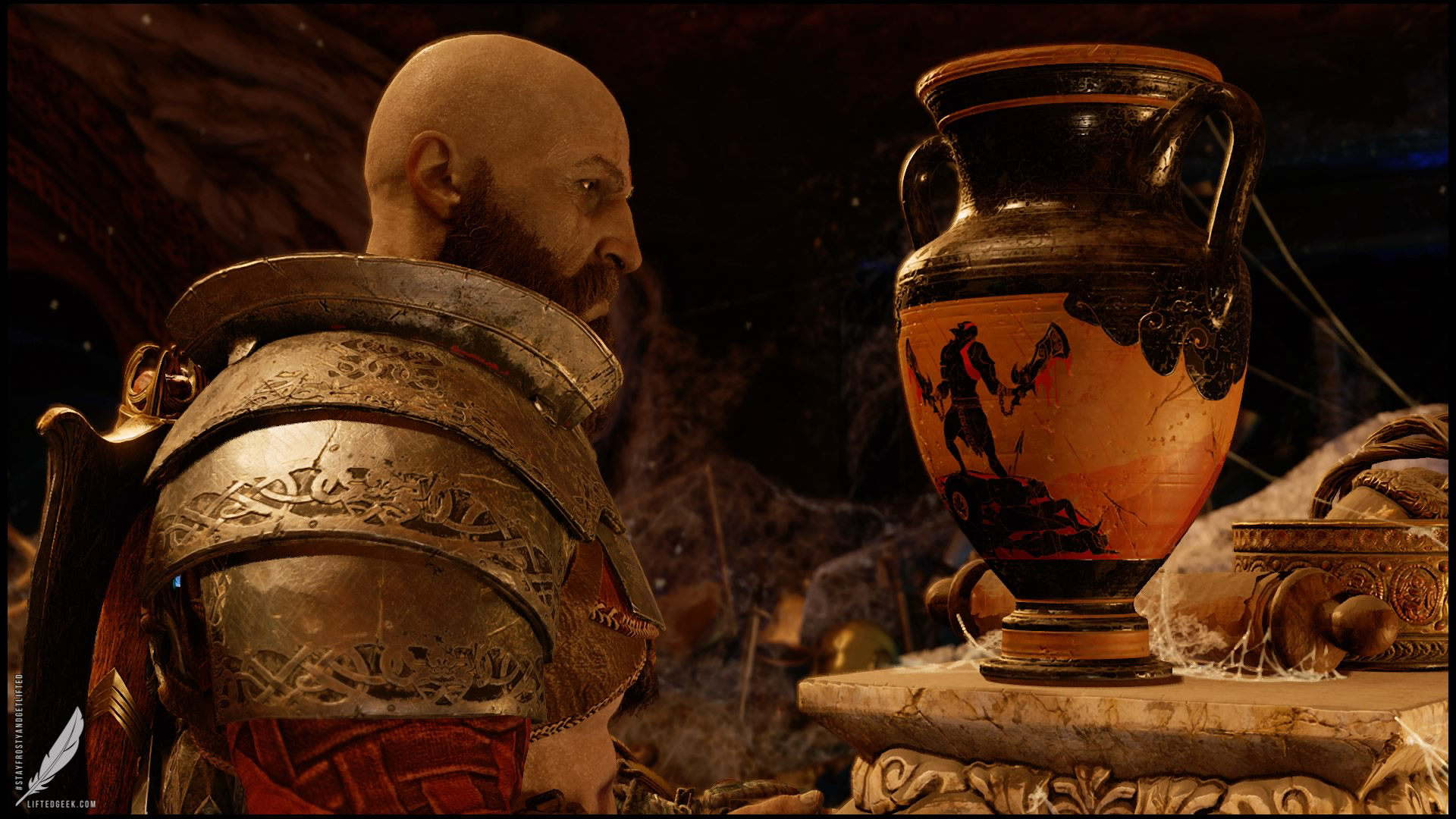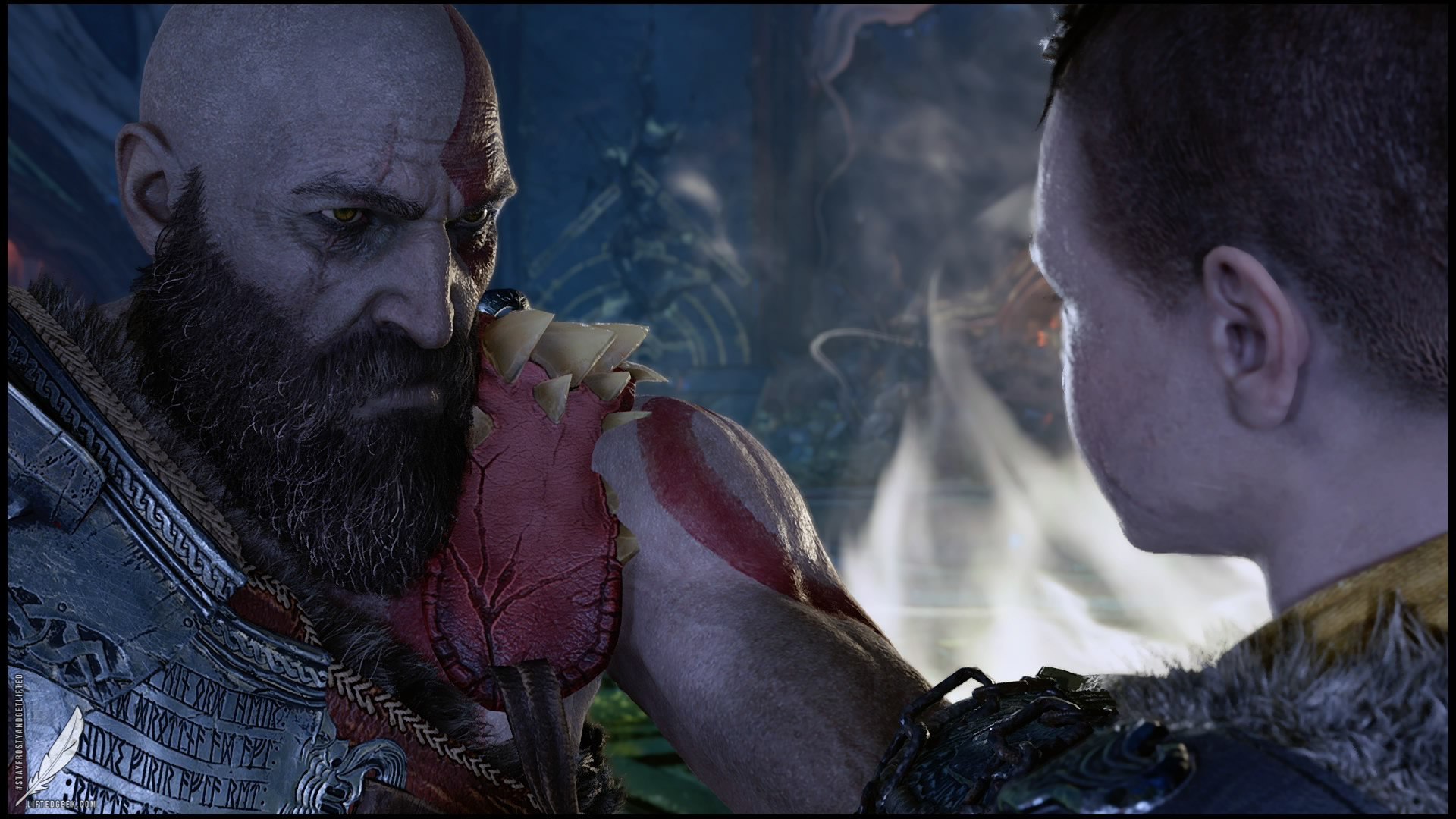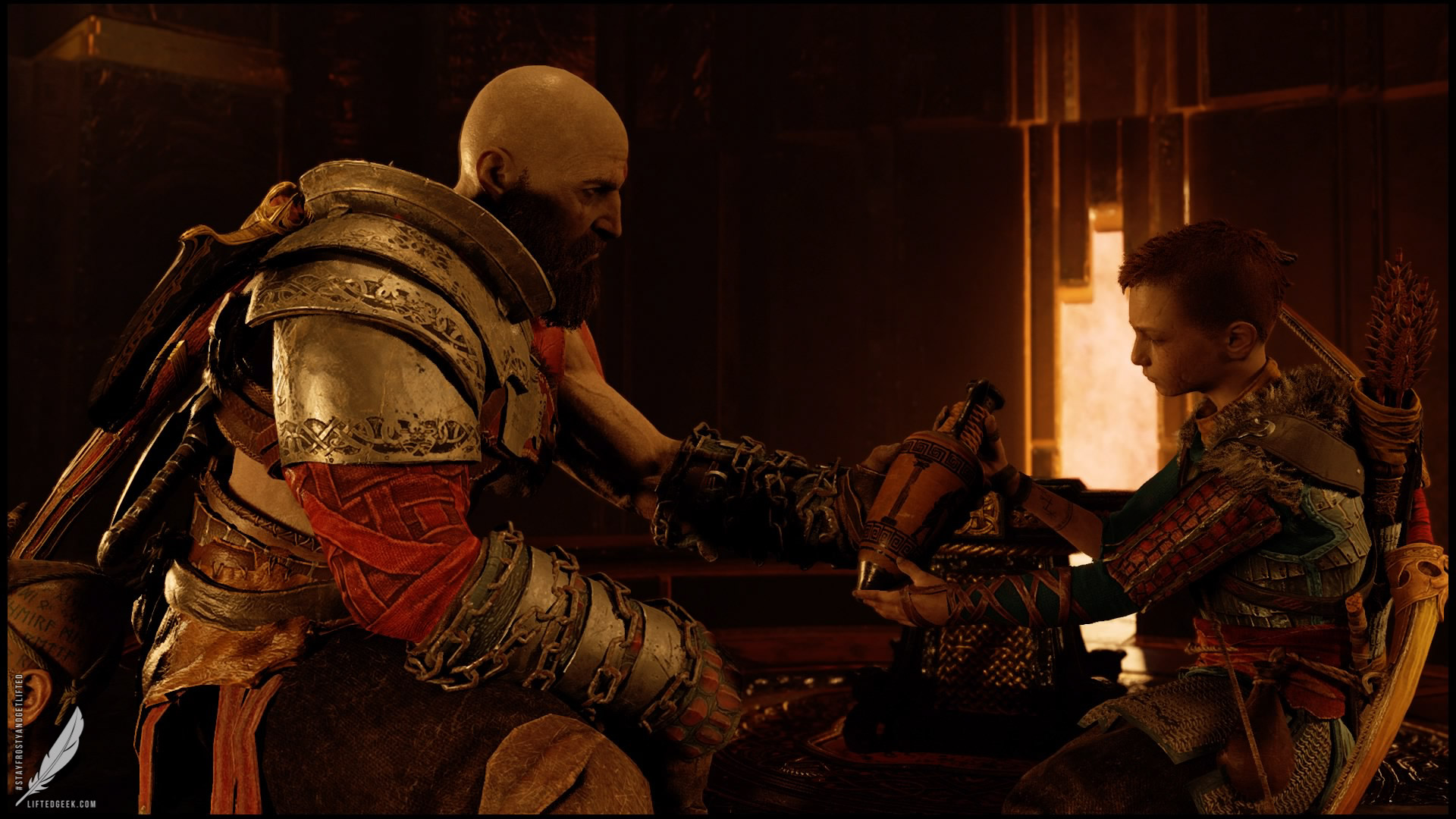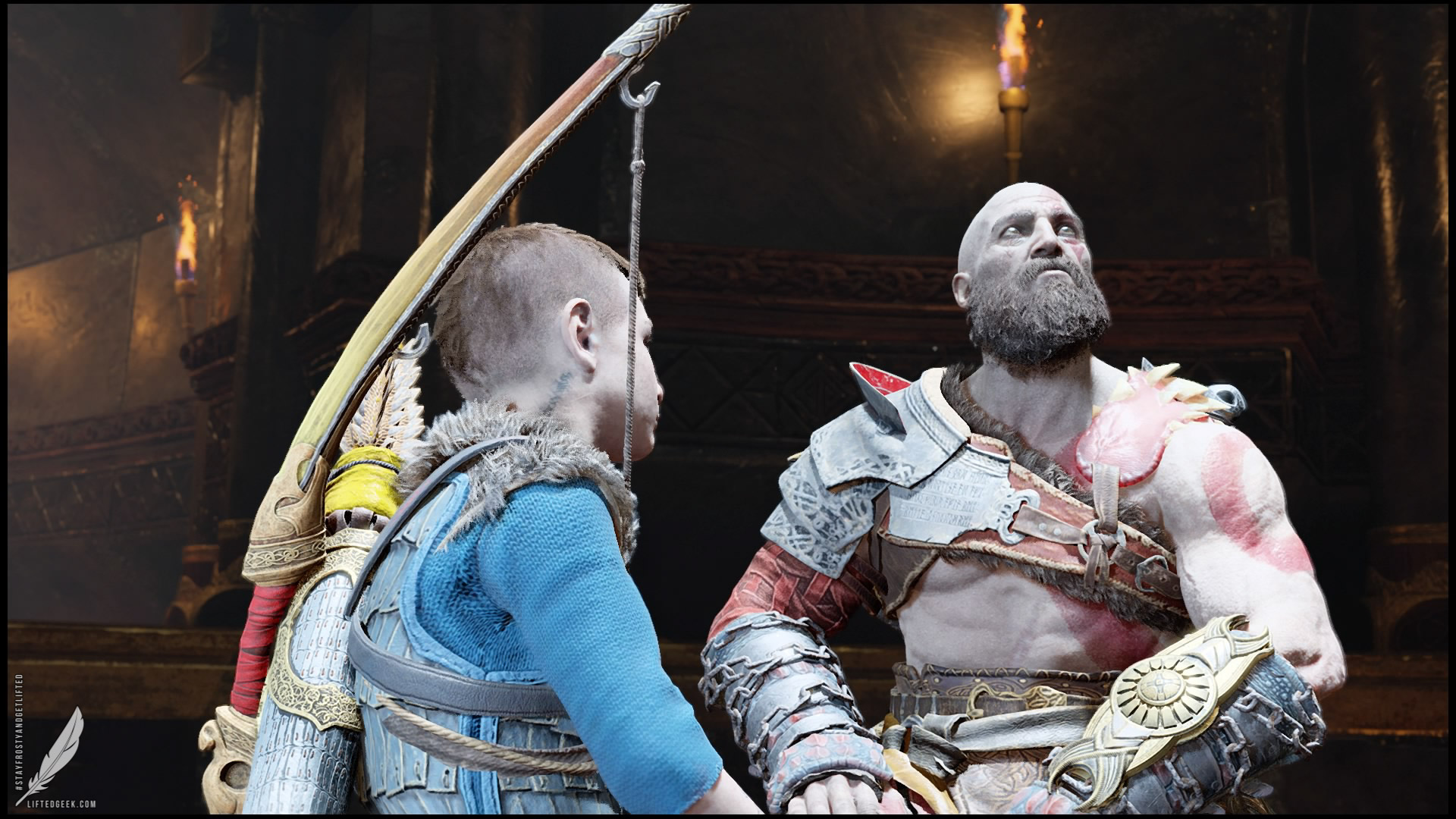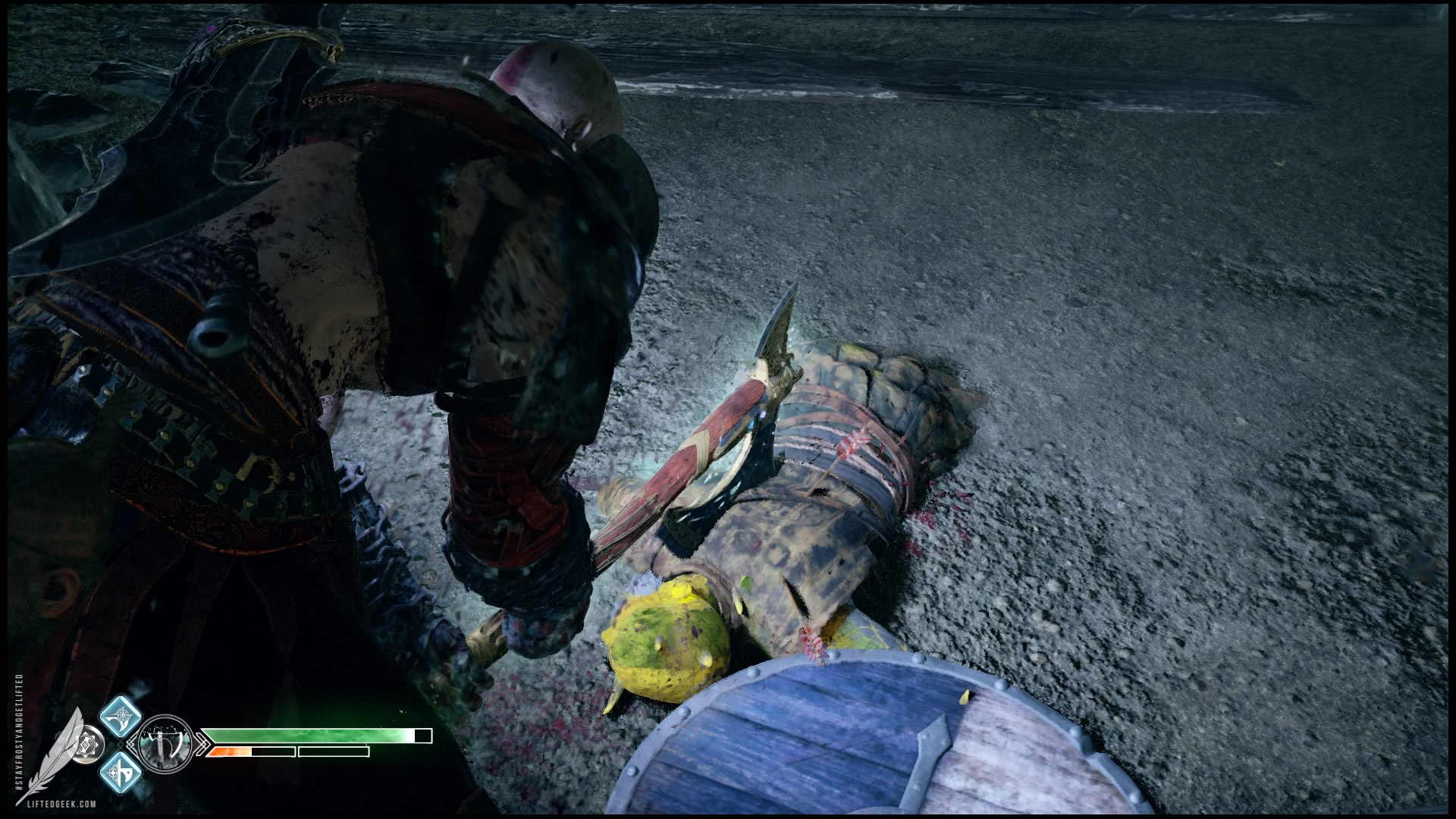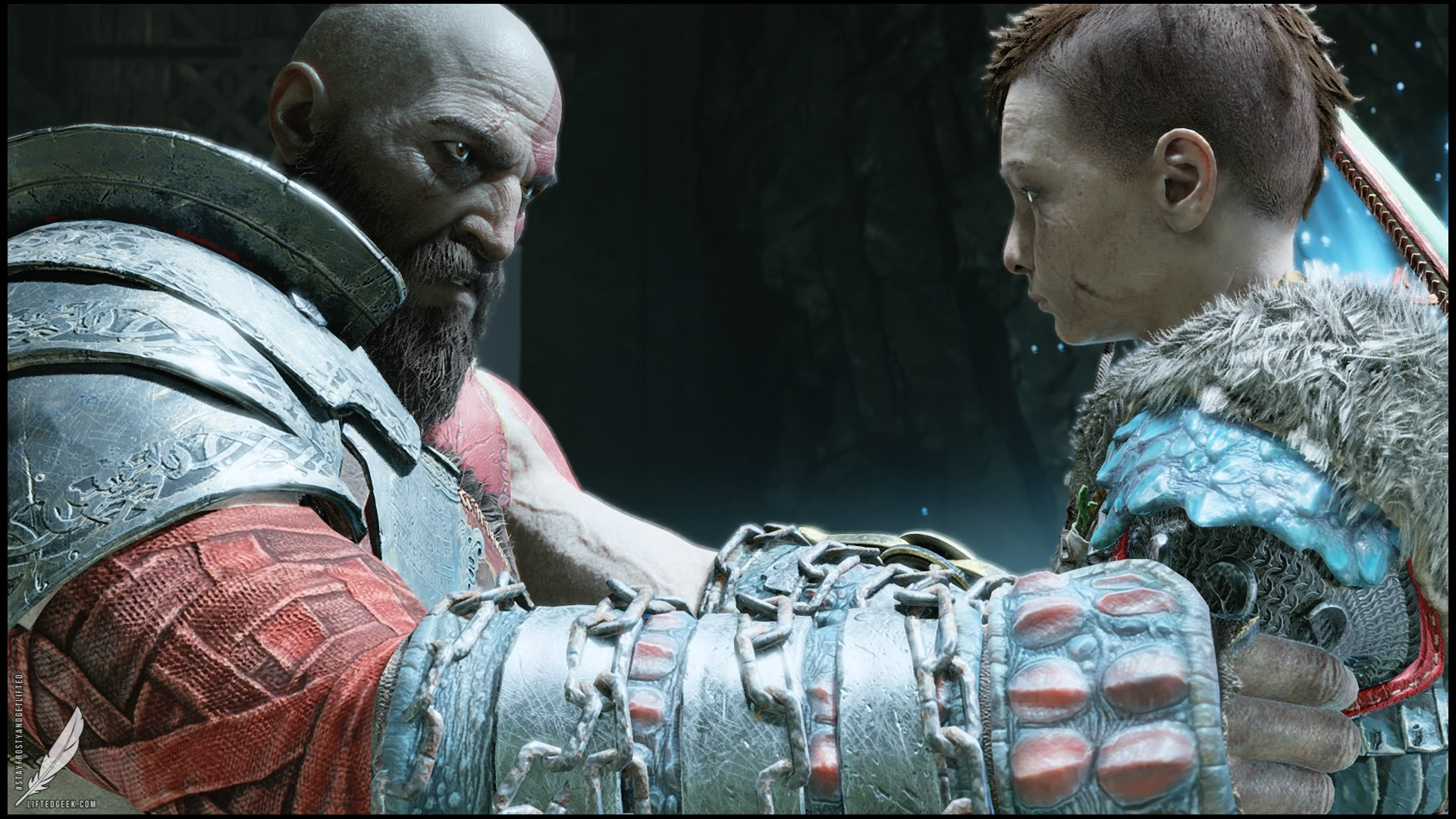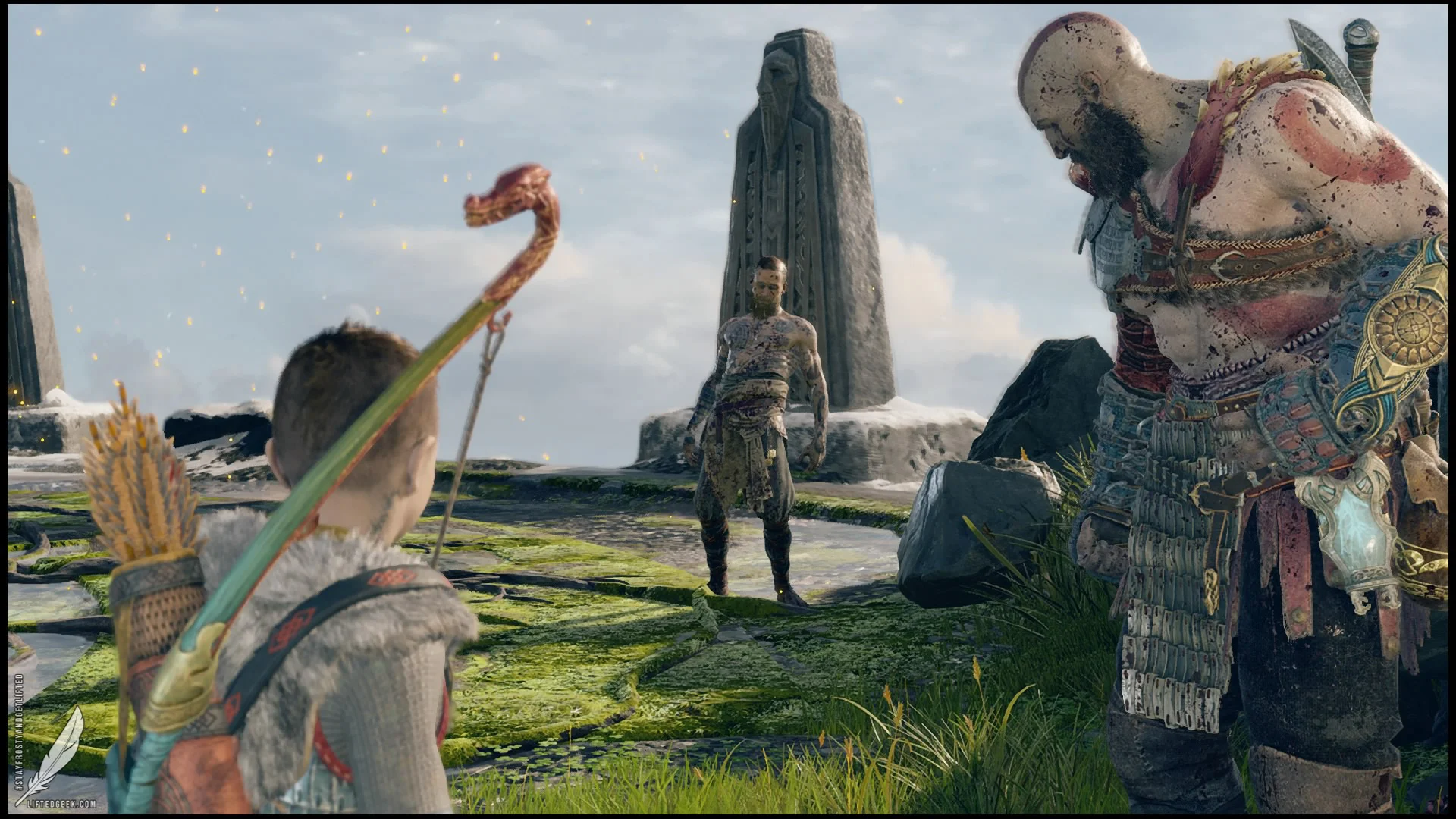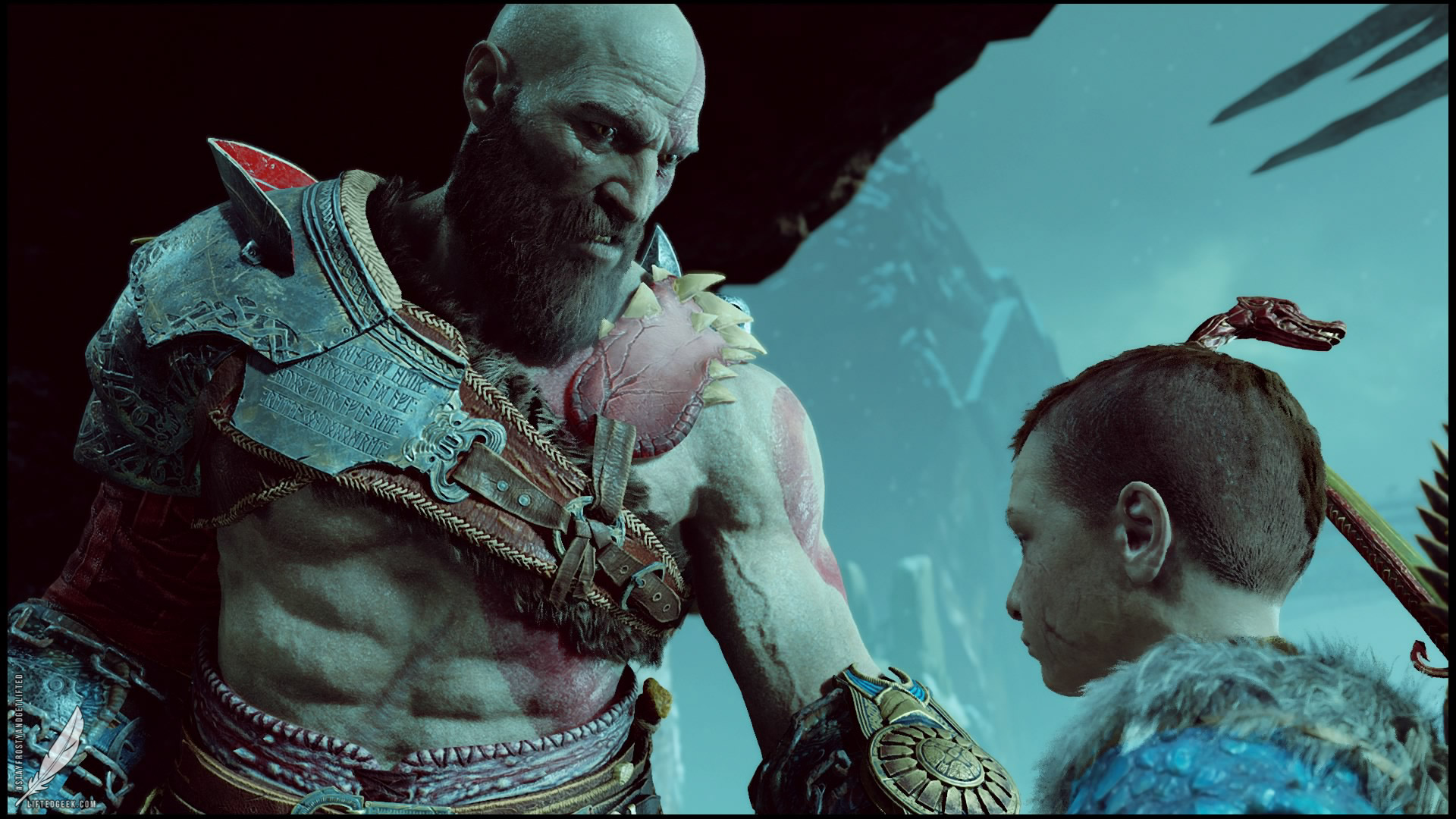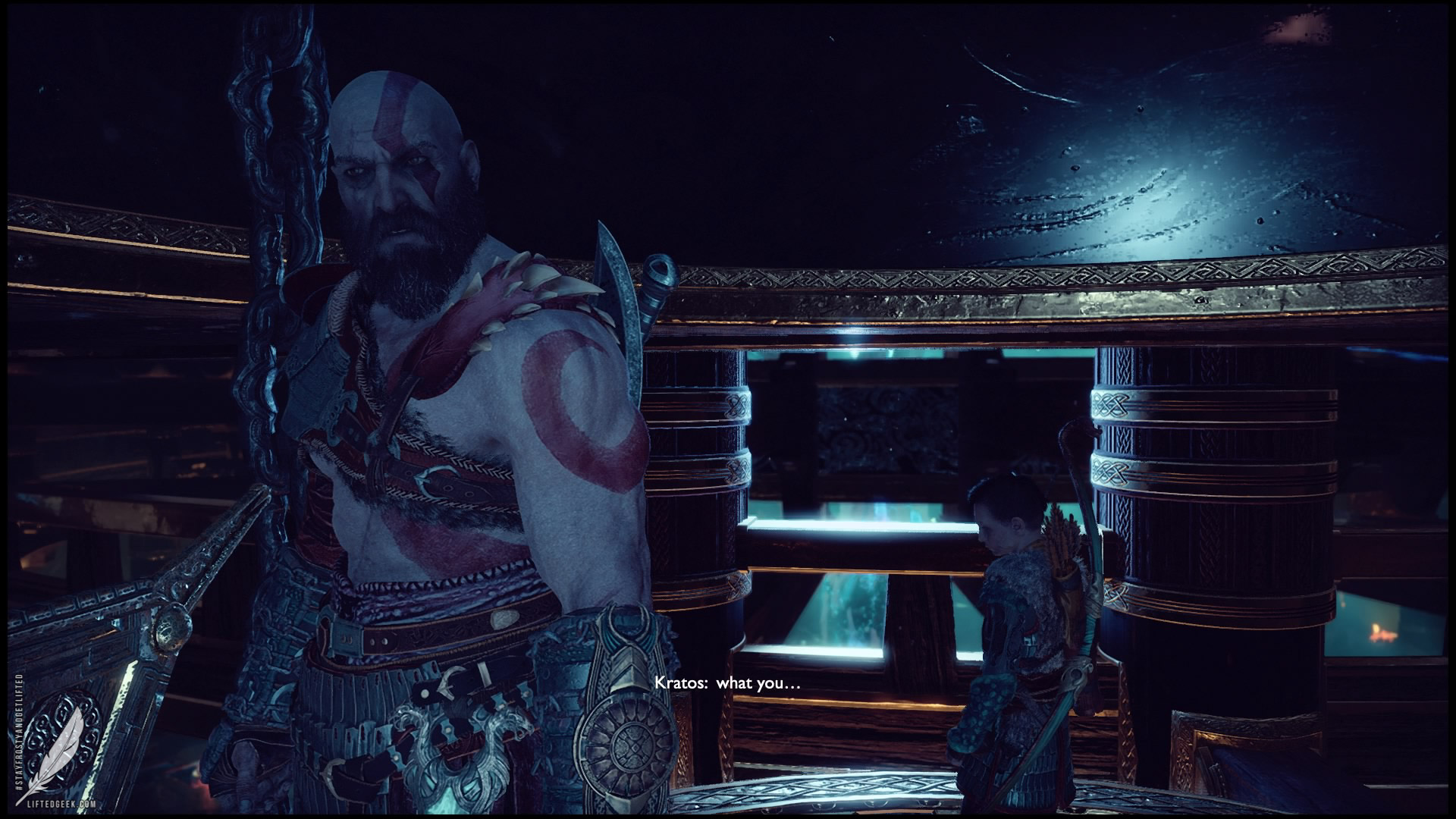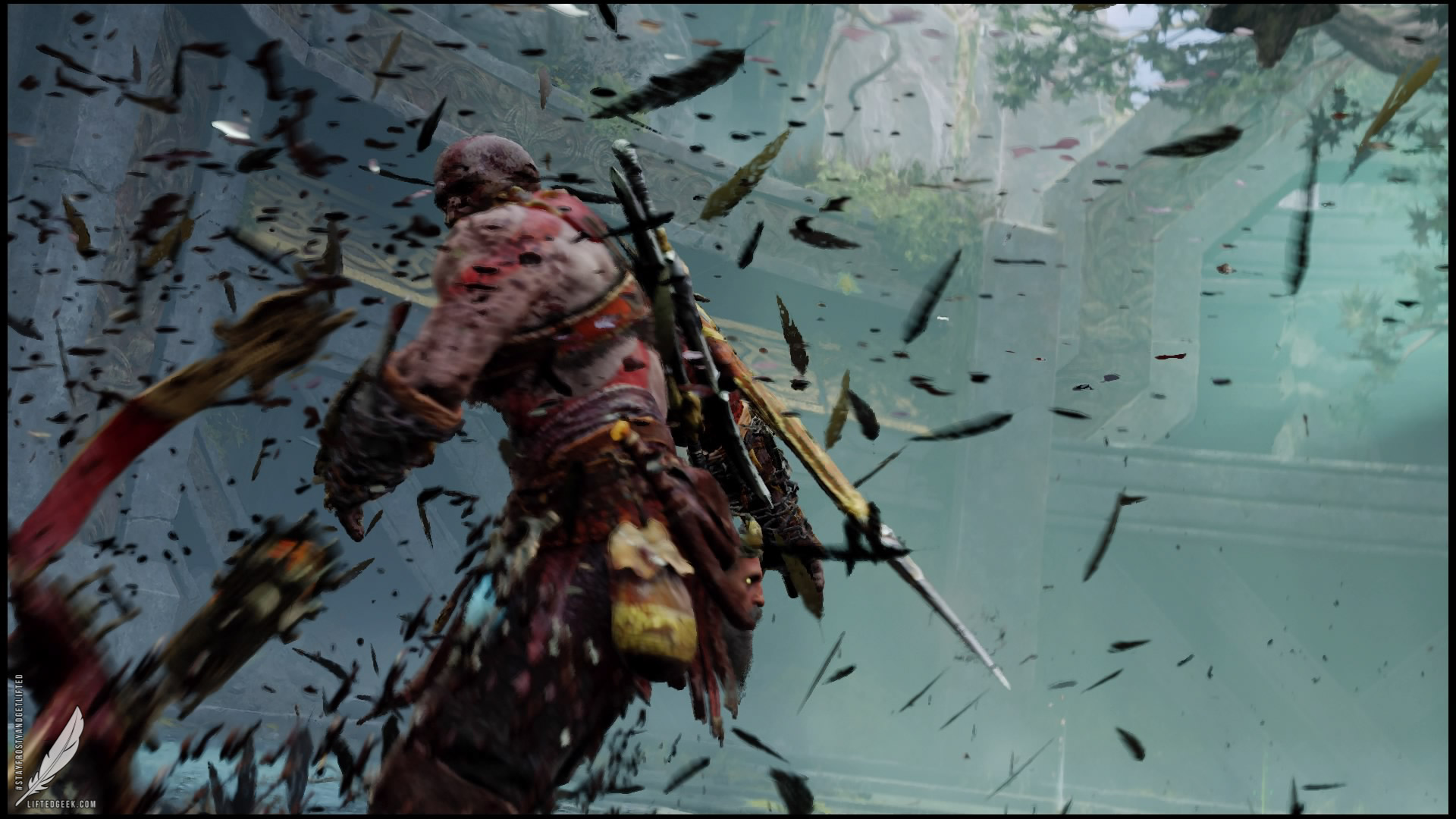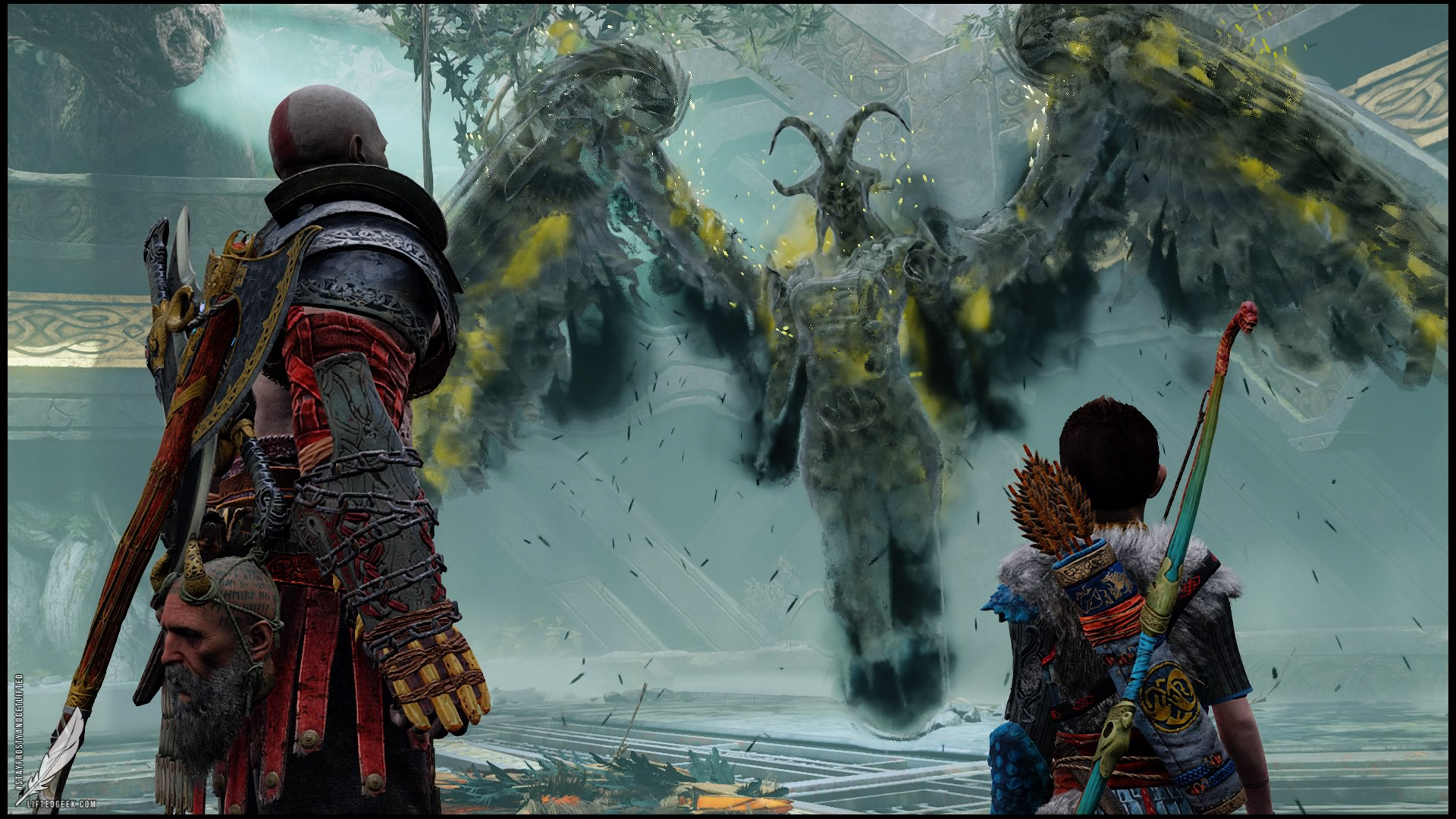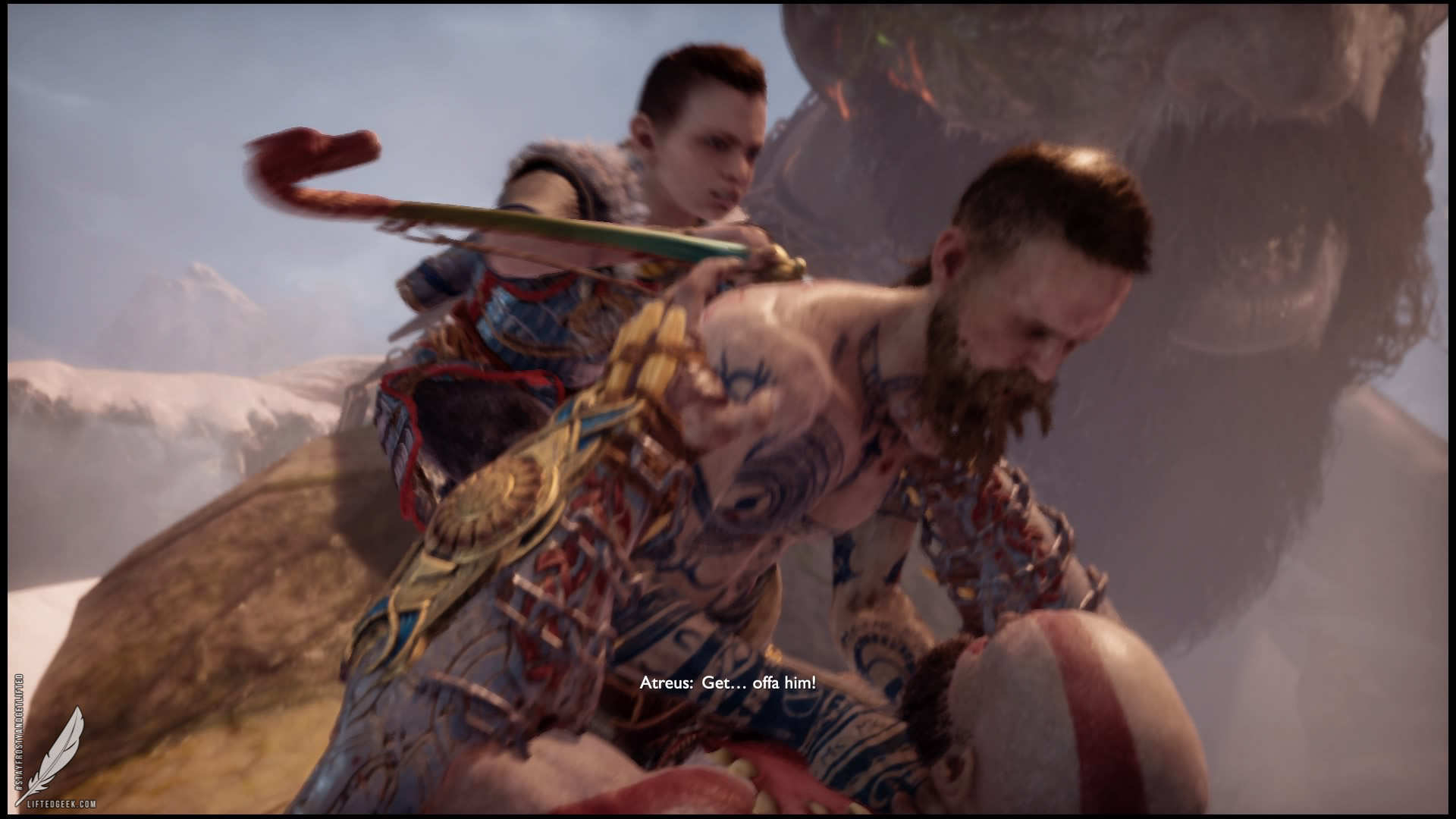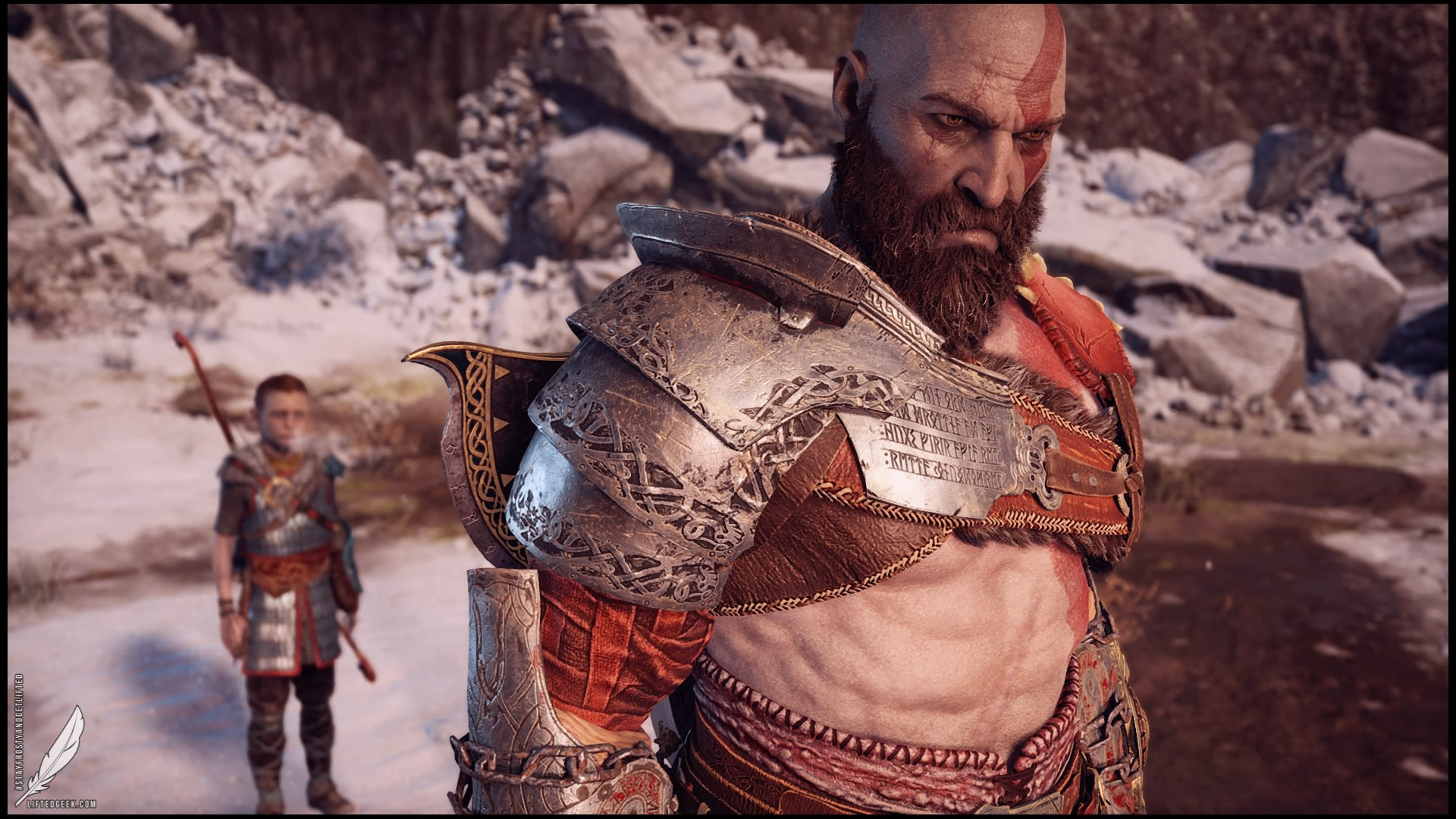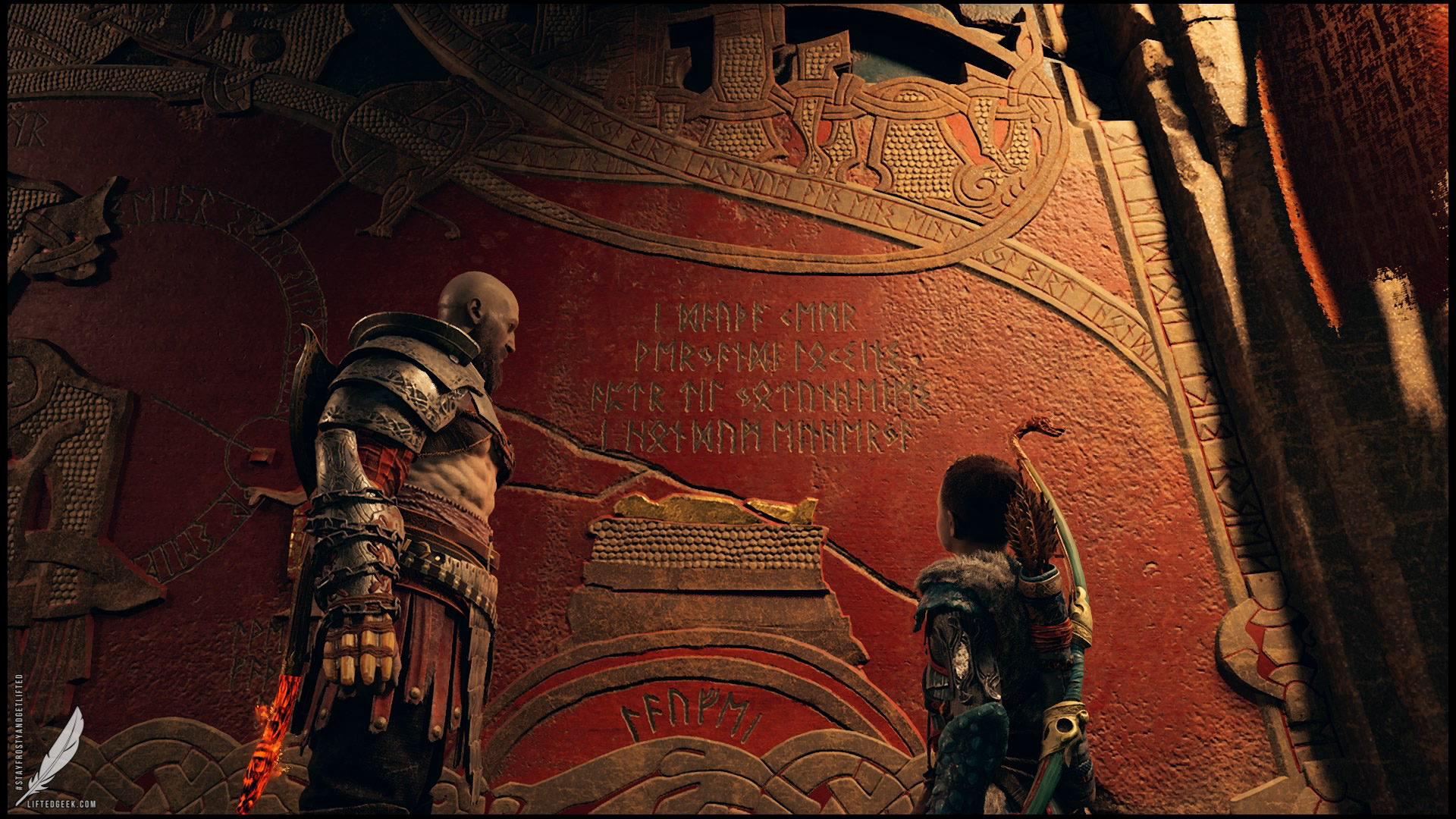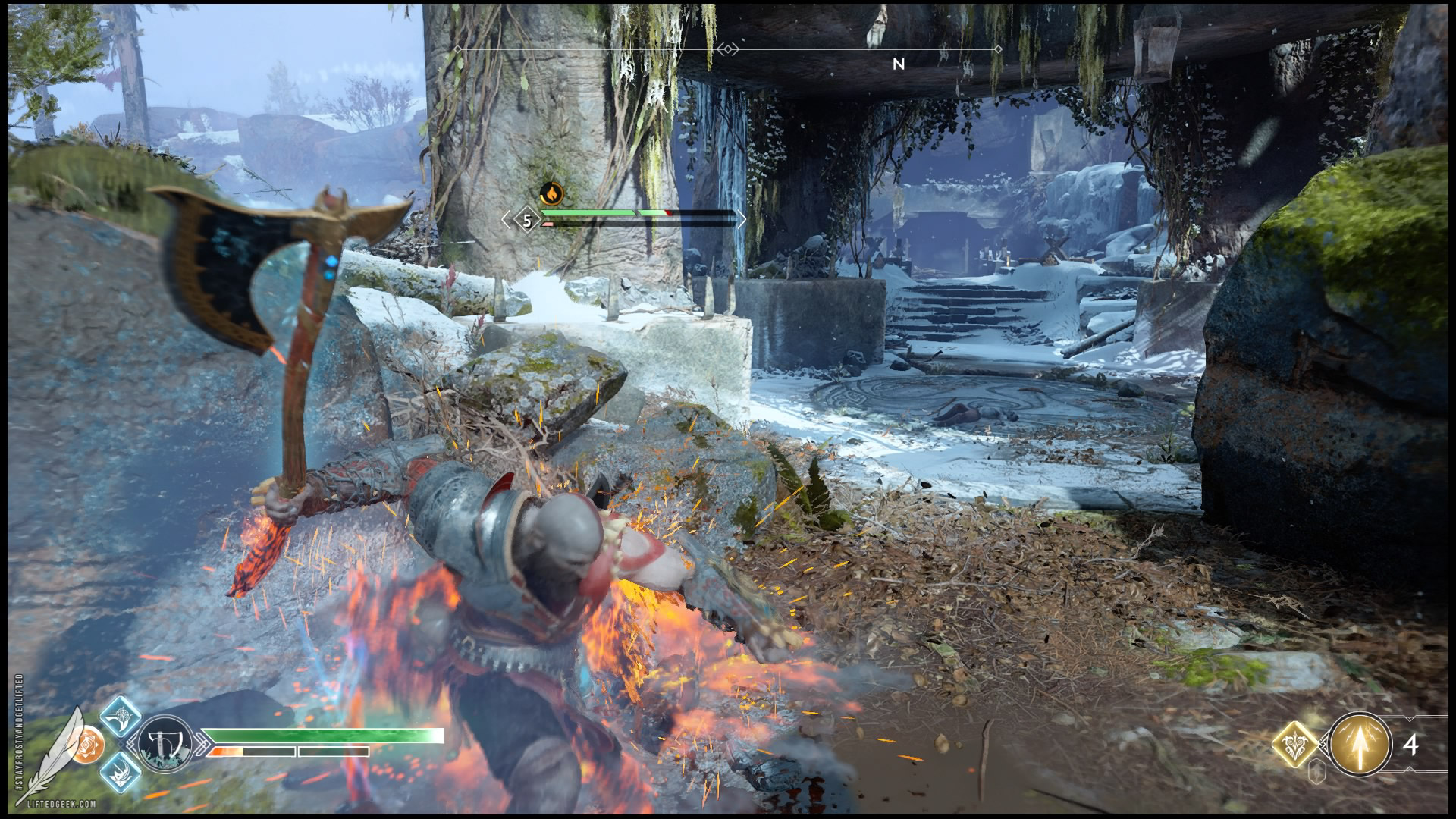Dad of War - God of War (REVIEW)
written by Justin Prince (@prince_justin)
Five years since the last entry in the series (God of War: Ascension) and a the first official release on current-gen hardware, to called 2018's God of War highly anticipated feels like an understatement. I remember when I saw the first reveal trailer, the moment series protagonist Kratos graced the screen the reaction from the crowd was as thunderous as a bolt of lightning from Zeus himself. I was a fan of the old PS2 games and despite finding them incredibly cheap at times, I did enjoy the story that was being told.
With the Greek pantheon dead and buried (spoilers), it's off to a new land complete with an all new pantheon of Gods. Kratos has been busy, traveling to Midgard, one of the nine realms that make up the core concept of Norse mythology. When the story opens, Kratos is preparing a pyre for his wife Faye as he struggles with being not just a widower (again) but this time being a father (yes... again). The gruff and hyper-violent former God of War must now tackle raising his young son Atreus by himself while also honoring Faye's last wish of having her ashes scattered across the highest point in the nine realms. This journey starts off simple enough with Kratos attempting to connect with his son in Faye's absence while training the young boy to survive. The pitfalls of being a parent do make up the bulk of the story, finding common ground with his son while also keeping the truth about himself a secret.
father and son looking over a picturesque landscape
It's all very cat's in the cradle when describing Kratos and his relationship with Atreus. The boy is still very young, but Kratos has been a mostly hands off parent while Faye took on the role as the key driving force in raising Atreus. It's sad and a little comical at times watching Kratos interacting with his son. He'd at times stop himself from comforting Atreus at key points, hovering over him and stopping short of giving his son a comforting pat on the shoulder. Other times Kratos goes full dad mode pulling out such gems of fatherly advice like “don't be sorry, be better”. There were times I was half hoping Kratos would drop a “I'm not mad, I'm disappointed” or at least an ill-timed dad joke.
The simple task of transporting Faye's ashes end up being not nearly as simple as the duo expected, especially when Odin sends out a literal all points bulletin planting Kratos and his son in the cross-hairs of Asgard's heavy hitters. To help out, both Kratos and Atreus are proficient in the fine art of killing things. Instead of sporting the signature Blades of Chaos, Kratos is instead armed with the Leviathan Axe, a magical weapon originally owned by Faye but passed on to him. Leviathan is imbued with the power of ice and can be used as a melee or ranged weapon. When Kratos throws the Leviathan Axe it can return to his hand at the click of a button; think of how when Thor uses Mjolnir from the Marvel movies and how his hammer can literally fly back into his hands. Like previous games, Kratos can pull off light and heavy attacks, creating devastating combos that can make fearsome trolls crumble. Armed in his left hand is a compact shield that can be deployed at will, guarding Kratos but also allowing him to use it offensively. If you throw Leviathan and choose not to have it return right away, your attacks switch to bare-handed strikes which have the added ability to stagger opponents. Staggering strong foes is the best way to speed up a fight, staggered enemies can be damaged heavily or if it's enough you can straight up kill them. On top of standard attacks, you can equip various skills that can be leveled up. These are linked to your axe and you can equip a light and a heavy special attack. These moves are activated by raising your shield and hitting either the light or heavy attack button. Incredibly powerful with a hefty cooldown, these moves shouldn't be wasted.
face to face with the World Serpent
Eventually you can build up a rage meter to allow Kratos to jump into Spartan Rage mode; in this state Kratos regenerates health, hits harder, strikes faster, and staggers enemies quicker. Unlike previous titles where rage mode still had Kratos armed with whatever weapon he had equipped, this time his fists are more than enough.
Combat is fast, fluid, and incredibly visceral while building into it a nuanced skill ceiling. Hacking and slashing your way through the nine realms is relatively easy to pick up, but give it enough practice and these combat scenarios are down right poetic, feeling like a dance of strikes and dodges. While controlling Kratos is incredibly sublime, it's how the game incorporates Atreus that really stand out. If you had told me that I would have adored a supporting character more than Elizabeth from Bioshock Infinite or Ellie in The Last of Us, I would not have believe it... but Atreus took the crown.
Atreus acts as more than just an AI controlled companion, Kratos can directly order Atreus to shoot enemies or unleash a special move with a cooldown. Armed with two different types of arrows, these also factor in to the puzzle solving but each type procs different status effects. Blue arrows are imbued with Elven Light and can stun enemies while Shock Arrows chain a short paralysis effect which jumps between targets. Switching between the two is a simple button press and depending on the situation you may want to stun enemies or shock them. Tapping square shoots the closest enemy in your sights and using the same button you use to aim your axe allow more precision. While his armor isn't as diverse as Kratos, Atreus can equip three different types of armor which have differing effects depending on your playstyle. Personally, I played the whole game using Atreus more like a support and had him wear armor that sometimes had him find me a healing stone when my life bar dwindled. It's surprising how well Atreus fit into the game's combat sequences, I never had to babysit him and if Atreus took too much damage he'd just slump over but it wouldn't cause a game over screen. Going forward, if game developers need an example of how to implement AI companions... Atreus will be the standard I plan to measure them up against.
one of the more emotional moments in the game
God of War features a deep yet simple to understand crafting and character progression system. Dispatching foes yields material drops and currency that Kratos can use to craft better armor and accessories. Experience points are earned after every engagement, allowing the player to further improve the abilities of both Kratos and Atreus. While both characters share the same XP pool, I was rarely left with a hard choice between who to level up. XP was plentiful, many times I was able to fully upgrade both after a couple fights. Weapon levels unlock more powerful skills for both with weapon levels achieved by crafting upgrades for the weapons of both Kratos and Atreus. While I noticed that I was able to upgrade the bow Atreus uses fairly easily, much of the required materials to upgrade Kratos' weapons were earned after completing certain story missions. This helped give me a linear progression system that never felt the need to saddle the player with a loot grind. The most powerful armor and accessories in the game will require some serious grind, but the main story and the enemies you face won't be too difficult if you choose to simply enjoy the narrative instead of jumping face first into a loot grind cycle.
combat is satisfyingly visceral
While the series has always been on the forefront of visuals in this industry, this title goes above and beyond my expectations. God of War is the most gorgeous title I have played since Horizon Zero Dawn. It's a testament to the developers, they crafted a title that looks fantastic on the PS4 Pro but also runs very well on the standard PS4 with very, very, VERY few graphical glitches and bugs. Character models are incredibly detailed and the facial animation is one of the best I've seen. Given the fact that this title has been in production for about 5 years, I'm glad all that time paid off in the end. Performances from both Christopher Judge (Stargate SG-1) as Kratos and Sunny Suljic (The House with A Clock in its Walls) as Atreus drove the story with the supporting cast carrying their own weight as well. Notably for the supporting cast were Jeremy Davies as Baldur, the first Norse god you fight, and Alastair Duncan as Mimir. Duncan especially since after first meeting Mimir the character eventually becomes just as part of the adventure as Kratos and Atreus.
VERDICT
God of War felt personal, this was a journey not just to follow through with the final wish of a beloved wife and mother... but a journey for a father and son to find something that was largely missing from there relationship until this adventure. An open story that leaves many questions but still satisfied, the surprise twist at the end especially threw me for a loop. God of War is a masterclass in game development. A title that deserves every accolade and one that definitely proves that single player games are not dead... despite what shitty game publishers *cough* EA *cough* will tell you. God of War moved me, excited me, surprised me, and left me in awe-struck in ways I haven't felt in a long time. I'm looking forward to what happens next, this is only the beginning.
5 OUT OF 5
Perfection at its best!


